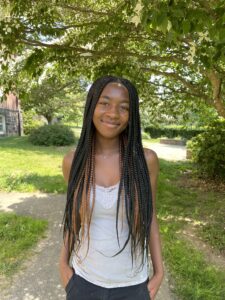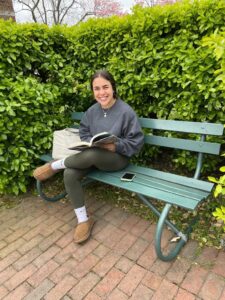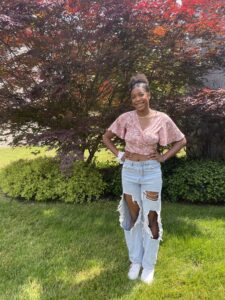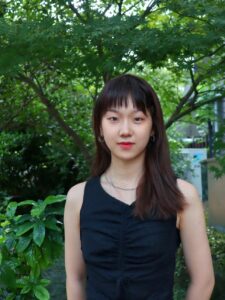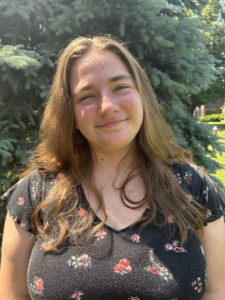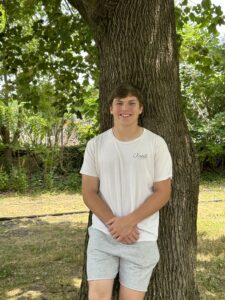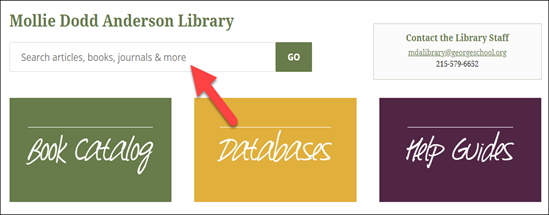A George school education is designed to open doors and keep them open as long as possible. Our academic program lets you chart your own path—one that is as challenging as it is customized to you. Graduation requirements are available here.
Chart Your Own Course
Course Selection
To find a course, please use the filter below.
Tap Dance
This class is intended to improve rhythm and musicality for students learning and/or developing tap technique. The course looks at the evolution of tap from its inception in the United States during the 1700s. It emphasizes precision and isolations. Classes begin with foot isolating warm-ups, move into step-based skill building, and end with across-the-floor work. Some choreography and improvisation is also included.
This class is open to all students and is recommended for theater students and anyone interested in the Musical Theater performance class. This class can be repeated.
This class is not part of the core Dance Studies program.
Min-Max Credit Hours: 1.0-1.0
Prerequisite: none
Open to: 9, 10, 11, 12
Dance Studies
The study of dance is expressive human movement that unites the physical with the intellectual and the emotional with the spiritual. It utilizes the body as a means of communication and has the power to unify people across boundaries of language, culture and other divisionary lines. Dance Studies aims to strengthen and develop the dancer’s instrument. Areas of focus include dance vocabulary, styles and techniques, safe and effective use of the body, and basic elements of choreography. Students in this course take a 3-mod core sequence, consisting of 2 mods in Contemporary Dance and 1 mod in Ballet. This course may be completed over multiple years. After completing this sequence, students may repeat individual mods for credit. See individual mod descriptions below.
The Ballet mod is the first class in the 3-mod sequence. It is designed to develop awareness of alignment and basic ballet vocabulary and technique through barre work, center, and across-the-floor exercises. It emphasizes movement quality, carriage of upper body, core and leg strength, and flexibility.
Contemporary dance is an important genre of dance performed in societies around the world. It trains and encourages dancers to be versatile in their expressions and to be able to portray a wide variety of movement styles and emotions. Primary areas of focus include spatial and body awareness, flexibility in the use of the body, efficiency of muscular usage, safe body alignment, and musicality. Two mods of Contemporary Dance follow the Ballet mod and must be completed before moving to the Advanced level in Dance.
Min-Max Credit Hours: 1.0-4.0
Prerequisite: none
Open to: 9, 10, 11, 12
Advanced Dance Studies & Performance
This course is a continuation of the first core sequence in dance studies. Students continue to expand their dance repertoire with the addition of a performance element. A typical 3-mod sequence of classes consists of 1 mod of Contemporary Dance, 1 mod of the Advanced Performance Ensemble, and 1 choice mod of Jazz, Ballet, or Advanced Ballet: Pointe (with instructor approval). Students may repeat individual mods or the entire course for credit. Additional mods of any dance class may be taken if desired to add to the core sequence.
The Advanced Performance Ensemble mod takes students through the process of preparing for and presenting a dance concert. Students will be challenged to choreograph and dance in their own work, which can be auditioned for inclusion in the dance concert. In addition, they will perform in the teacher-choreographed pieces. The concert is the culmination of a term of work and is presented to the public as two performances on the stage in Walton Auditorium. This mod is required for all students in Advanced Dance.
The Jazz mod includes a variety of jazz styles, both historical and contemporary. It emphasizes strength, isolations, syncopated rhythms, and precision. Classes begin with warm-up exercises and then move to across-the-floor work. Students utilize skills and techniques to learn choreography devised for a variety of music styles. This mod is also open to students who have completed at least two credits in Dance Studies (ARP110A).
Advanced Ballet: Pointe is a continuation of the Ballet mod (part of the Dance Studies course, ARP110A). Students must be prepared to dance on pointe. As in the Ballet class, this mod focuses on the skills of upper body carriage, core and leg strength, and flexibility. Students are required to provide their own pointe shoes and ballet slippers. Permission of the instructor is required for this mod.
See Dance Studies (ARP110A) for descriptions of Contemporary Dance and Ballet mods.
Min-Max Credit Hours: 2.0-4.0
Prerequisite: Dance Studies (3 credits) or permission of the department
Open to: 10, 11, 12
IB Dance
Students work both individually and in collaboration to experience the creative process as a way of learning to transform ideas into action through intellectual curiosity and creative thinking. The IB Dance curriculum is designed to help students come to appreciate the value and importance of researching, creating, preparing and presenting, and critically reflecting as modes of learning and communicating. In the process, students gain a richer understanding of themselves, their personal cultural perspectives, and cultural ideas and practices in the global community. The assessments that together comprise the IB exam score are the Composition and Analysis (dance works composed by the student [two for SL or three for HL], along with a written statement to accompany one of the dances), the Dance Investigation (a written report of 1500 words for SL or 2500 words for HL), and the Performance (a combination of solo/duet and group performances).
IB Dance embraces a variety of dance traditions and dance cultures, both current and past, while also encouraging students to look towards the future through the lens of dance. Performance, creative, and analytical skills are developed through the creation and performance of dance and through research and writing assignments. Students come to understand dance as a set of practices with their own histories and theories, and to understand that these practices integrate physical, intellectual, and emotional knowledge, while simultaneously experiencing dance as an individual and collective exploration of the expressive possibilities of bodily movement. The course aims to help students understand and appreciate mastery in various dance styles and to use dance to create a dialogue among cultures.
The SL dance curriculum requires that a student take the two required mods of Advanced Dance Studies & Performance (ARP110F) along with an IB-specific mod in both 11th and 12th grades. In addition, all IB Arts students attend the IB Arts Block, which meets for 45 minutes weekly throughout the academic year.
Min-Max Credit Hours: 6.0-10.0
Prerequisite: Dance at George School (3 credits, B) or dance experience and permission of department
Open to: 11, 12
Dance and the Choreographic Process
In this course, students apply the creative process to choreography to produce their own dance work, beginning with an exploration of the steps taken during the creative journey. These include choosing, investigating, and exploring a topic, solving problems, refining ideas, and creating a final product. Students work through these steps to create movement of their own artistic design. In the second half of the course, students build on their understanding of the creative process as they study the methods and techniques of professional choreographers, and then choose one choreographer's creative process as a model for developing and presenting an original dance.
Min-Max Credit Hours: 1.0-1.0
Prerequisite: 2 credits of either Dance or Acting at George School (can be taken concurrently)
Open to: 10, 11, 12
Film 1: Fundamentals
Film 1 is comprised of two foundation-building production classes, designed to develop an introductory overview of film as a unique creative medium. This production-based course will introduce skills such as camera operation and composition, story development, project planning, editing, and sound. In addition to filmmaking skills, students will also acquire a basic vocabulary for film analysis, enabling them to discern greater meaning and appreciation of film, leading them from passive movie “watchers” to active film “readers."
As students acquire fundamental film knowledge, they are encouraged to think like filmmakers learning skills that will help them translate raw ideas into successful films. Limited-scale exercises help students develop the skills necessary to complete longer, and more complex projects in higher-level classes. Since this is a performing art, students are expected to produce work that will be screened at the George School Film Festival. In addition, they may be expected to attend theatrical film screenings on campus and off.
Students must progress through both mods in sequential order before advancing to higher-level film classes.
Min-Max Credit Hours: 1.0-2.0
Prerequisite: none
Open to: 9, 10, 11, 12
Film 2: Genres & Styles
Film 2 is a highly collaborative track in which students expand their knowledge of film production and analysis by building on skills introduced in Film Production 1 through genre-based film work.
Each mod of this intermediate track will focus on skills relating to defined genres. The specific genres offered each year will rotate but may include film comedy, thriller/suspense, drama, music video, and documentary.
Each mod will culminate in a final film project and students will be expected to submit at least one project to a local film festival for external evaluation. Students are also expected to attend theatrical film screenings both on and off campus.
Students must take at least two mods of this course before moving to Advanced Film. Mods may be repeated with the instructor's approval.
Min-Max Credit Hours: 1.0-3.0
Prerequisite: Film 1: Fundamentals (2 credits) or permission of instructor
Open to: 10, 11, 12
Advanced Film Production
This production-heavy, advanced-level selection of classes leads the student into deeper, more refined areas of filmmaking. This course includes mods that focus on specialized core skills such as scriptwriting, project planning and advances to more sophisticated production practices including advanced cinematography, editing, and sound design. This work is taught through the lens of Quakerism. Through these higher-level classes, students learn to use film as a vehicle for artistic self-expression by working to identify and execute clear intentions with their work and then tracking those intentions throughout the entire production process, often finishing with written reflections.
Below is the list of mods offered, in the preferred order. Most classes are to be taken once but could be repeated with the instructor's permission.
Production Roles is the initial Advanced Film mod and sets the foundation for all the mods that follow. This class will focus on three primary production roles of writing, cinematography, and editing. This course weaves a thread among these three roles to show their unique influence on filmmaking and their inherent interconnection. Students in this course are assigned small-scale creative projects to develop proficiency in each role.
Signal to Noise is an exploratory mod in which students explore the profound potential of sound in filmmaking. Since sound is half of the cinematic experience, great attention is given to how sound functions and how sound can be utilized to enhance cinematic storytelling. Students learn essential sound skills such as recording audio on location as well as sound editing and mixing. They also learn how to develop critical listening skills, eventually putting it all together to create their own cinematic soundscapes. Through a series of enjoyable projects such as foley and sound effects creation, culminating in an ambitious final project, students will learn how to make deliberate choices that “signal” their message and intention, while simultaneously eliminating all unwanted “noise” in their storytelling.
Filmmaker's Voice is a director-focused class that highlights the unique influence that film directors have on the filmmaking process. Specific skills will be introduced and practiced to help students develop their voice and lead a film production process. To illuminate the course’s objectives, specific directors are studied to better understand how a filmmaker's production choices can create unique styles of storytelling. Students then embark on production assignments inspired by the directors studied that will deepen the learning. This mod may be taken more than once.
Collaboratory is a film and media production class where students are encouraged to develop their own creative products, akin to an independent research project. In this workshop-style media course, students are given support to develop a single-medium product ranging from a film (narrative, documentary, experimental, etc.), podcast series, website, digital magazine, or video game, as some examples. This is an incubator for creators that offers students the opportunity for independent creative work and clear learning objectives. Students are encouraged to develop a creative project in consultation with the teacher prior to the start of the course. This mod is ideal for IB students who need supported time to work on their Production Portfolio, but it is also open to any student with a seed of a media idea that they would like to cultivate.
Min-Max Credit Hours: 1.0-4.0
Prerequisite: Film 2: Genres & Styles (2 credits) or permission of instructor.
Open to: 11, 12
IB Film
In this two-year course of study, students work both individually and in collaboration to experience the creative process as a way of learning to transform ideas into action through intellectual curiosity and creative thinking. The IB Film curriculum is designed to help students appreciate the value and importance of researching, creating, preparing and presenting, and critically reflecting as modes of learning and communicating. In the process, students gain a richer understanding of themselves, their personal cultural perspectives, and cultural ideas and practices in the global community. The assessments that together comprise the IB exam score are the Portfolio, the Comparative Study, the Textual Analysis, and the Collaborative Project.
For SL Film, students take 5 mods over two years, while HL Film students take 6 mods over two years. In addition, all IB arts students attend the IB Arts Block, which meets for 45 minutes weekly throughout the academic year. In 11th grade, both SL and HL Film students take the first two mods (Production Roles and Signal to Noise) of Advanced Film (ARP210D) and the Textual Analysis mod described below. It is recommended that the third mod (The Filmmaker's Voice) of Advanced Film also be taken in 11th grade, but if it is impossible to fit into the 11th grade schedule, this mod can be postponed until 12th grade. In 12th grade, both SL and HL students repeat the Production Roles mod and HL students take the Collaborative Project mod described below. (IB students are welcome to take all three mods of Advanced Film in both 11th and 12th grades in addition to the IB-specific mod each year if their schedules allow.)
In the 11th grade IB mod, students complete the IB Textual Analysis essay, a 1750-word paper in which students explore how meaning is conveyed through the use of film elements in the chosen film text. Students develop film vocabulary and a broad knowledge of cultural contexts to use in their analysis. Students are supported in their research skills, analytical argumentation, and writing during this process.
In the 12th grade IB mod, students complete the culminating Collaborative Project, in which each student is assigned a singular production role and works as part of a team to develop and produce one 7-minute film. Students will also be supported in writing the 2000-word report that is an essential part of this assignment, reflecting on the group’s creative intentions, production process, and collaboration, as well as on the individual student’s contribution in a designated production role.
Min-Max Credit Hours: 5.0-6.0
Prerequisite: Film 2: Genres & Styles (2 credits) or permission of instructor and additional preparatory work.
Open to: 11, 12
Producing Peace: Media Literacy/Creation
This course is cross-listed as MUL770P (Extradisciplinary). See the course description for MUL770P (Extradisciplinary) in the Extradisciplinary section of the catalog.
Min-Max Credit Hours: 2.0-4.0
Prerequisite: none
Open to: 9, 10, 11, 12
Vocal Ensemble
Students in this course receive training in vocal production and sight-reading as they explore a variety of vocal styles. Singers expand their musical horizons while experiencing an eclectic repertoire of music from around the world, including, but not limited to, early to contemporary classical music, a cappella, and jazz. Each term of the course culminates in a performance.
Those who are new to the study of music as an art form are taught basic music literacy and develop aural and sight-reading skills while refining individual singing abilities and forming an understanding of choral singing. As students progress through the course they begin to experiment with connections between theory and practice and develop their own original compositions and arrangements. Advanced students of vocal music focus on expanding and deepening their skills as performers and are taught to reflect on the creative possibilities inherent in the interaction among their own musical intuition, the composer's indications in a score, and their own detailed analysis of a piece. They develop the habit of considering what each of these elements offers as they make interpretive decisions about performance and develop their own performance style.
Students may take this course multiple times. Those taking the course for the first time must take the three mods in sequence, though the mods may be split between years. After they have completed the sequence once, students may take any or all mods in subsequent years. In whatever mods they take, the focus of advanced students will be on analysis and performance.
Min-Max Credit Hours: 1.0-3.0
Prerequisite: none
Open to: 9, 10, 11, 12
Community Chorus
This chorus is open to all members of the George School campus community as well as neighbors and friends from the wider community. Singers receive training in vocal production, exposure to music-reading, and a varied repertoire. The course meets on Sunday evenings for approximately four months in preparation for a major concert. There are no meetings during the academic day. Those wishing to participate should be in touch with the music director for details. If a vocal music student wishes to receive academic credit for the course, they should contact the registrar sometime during the first month of rehearsals.
Min-Max Credit Hours: 1.0-1.0
Prerequisite: none
Open to: 9, 10, 11, 12
String Ensemble and Wind Ensemble
String and Wind Ensemble is are courses in musicianship for players of string, wind, and percussion instruments. (Percussionists should register for Wind Ensemble.) Through the preparation and performance of instrumental music, students learn elements of style, expression, ensemble technique, music theory, history of music, and music literature. The role of the performer and his or her responsibility to the composer, the audience, and fellow performers are ongoing themes in this class. A varied repertoire, ranging from Renaissance music to modern compositions, is performed not only by the full orchestra, but also by various smaller chamber ensembles. Each mod culminates in a performance, and in some mods there may be evening and/or weekend rehearsals and performances.
Students may take this course multiple times. Those taking the course for the first time must take the three mods in sequence, though the mods may be split between years. After they have completed the sequence once, students may take any or all mods in subsequent years. In whatever mods they take, advanced students focus on expanding and deepening their skills as performers and are taught to reflect on the creative possibilities inherent in the interaction among their own musical intuition, the composer's indications in a score, and their own detailed analysis of a piece. They develop the habit of considering what each of these elements offers as they make interpretive decisions about performance and develop their own performance style.
To participate in either String or Wind Ensemble a student must demonstrate familiarity with their instrument; read music fluently; and have a working understanding of key signatures, basic rhythm patterns, and meter.
Min-Max Credit Hours: 1.0-3.0
Prerequisite: Audition
Open to: 9, 10, 11, 12
Audio Recording & Music Production and Adv. Audio Recording & Music Production
Using industry-standard equipment and protocols, students in this course learn to creatively control their ideas in the recording and music production process. In the first mod, students explore the physics of sound and consider how sound is produced and amplified through the use of microphones in a variety of environments. Students are also introduced to the digital audio software ProTools and use it to complete an audio mixing project. In the second mod, students learn to creatively shape sound by using equalizers and dynamics processor. They are also introduced to the concept of the signal chain and learn to use automation to increase efficiency. In the third mod, students explore time delay effects and are introduced to the basics of audio mastering. In a culminating project, students work through the recording, mixing, and mastering stages to produce a full track.
This course may be split across two years. Students who have taken the full sequence once have the option to take any or all mods once more as Advanced Audio Recording.
Min-Max Credit Hours: 1.0-3.0
Prerequisite: 3 credits of Vocal Ensemble, String Ensemble, or Wind Ensemble or permission of department
Open to: 10, 11, 12
IB Music
In this course, students work both individually and in collaboration to experience the creative process as a way of learning to transform ideas into action through intellectual curiosity and creative thinking. The IB Music curriculum is designed to help students come to appreciate the value and importance of researching, creating, preparing and presenting, and critically reflecting as modes of learning and communicating. In the process, students gain a richer understanding of themselves, their personal cultural perspectives, and cultural ideas and practices in the global community. The assessments that together comprise the IB exam score are Exploring Music in Context (a portfolio combining written work, compositions, and musical performances), Experimenting with Music (a 1500-word report supplemented by related excerpts from the student's compositions and performances), Presenting Music (a collection of program notes, composition or improvisation, and performance), and, for HL students, The Contemporary Music-Maker (a multimedia presentation documenting a real-life project).
The SL and HL music curricula require 6 mods. In addition, all IB Arts students attend the IB Arts Block, which meets for 45 minutes weekly throughout the academic year. Over the course of 11th and 12th grades, IB Music students take at least 4 mods of one of the music ensemble courses (ARP310A, ARP320A, ARP320D). At least two of these mods must be in 11th grade and at least one must be in 12th grade. (Ideally, a student would take all three mods of one of the ensemble courses in 11th grade.) In addition to the 4 mods of Vocal, String, or Wind Ensemble, students take a mod specific to 11th grade IB Music students and a mod specific to 12th grade IB Music students.
Min-Max Credit Hours: 6.0-6.0
Prerequisite: 3 credits of Vocal Ensemble, String Ensemble, or Wind Ensemble or similar experience and permission of department
Open to: 11, 12
Theatrical Makeup
Design and techniques of applying makeup for stage and film are introduced and, for students with prior experience, extended. Principles covered include the ability to specifically articulate how makeup design contributes to character and theme of a production, and how to apply design concepts based on facial anatomy and skin tone. Exercises in corrective makeup and aging are included each year. Other techniques included on a rotating basis are historical makeup, injury effects, animal mimicry, and fantasy design. This allows students to repeat the course as desired to enhance skills and meet new challenges. In lieu of a book, this course requires a beginner’s make-up kit, which is ordered by the teacher based on individual student needs and charged to student accounts. This course is not part of the core curriculum for either Theater Arts: Acting or Theater Design & Production.
Min-Max Credit Hours: 1.0-1.0
Prerequisite: none
Open to: 9, 10, 11, 12
Stage Combat and Movement
This course introduces students to the basic mechanics of physical conflict when performing and instills important safety practices. Exercise work examines the elements that make a fight scene safe, truthful and interesting. The actor's individual approach to interpreting fight scenes and their use of body, movement and style is developed and evaluated. Utilizing proper warm-up techniques and disciplined repetition, students achieve confidence and ability to take on, direct or choreograph a role/scene that requires stage conflict or violence. The final exam consists of enacting an original 3- to 5-minute fight scene from a recognized performance piece (such as Romeo & Juliet or West Side Story) that is devised in partnered groups.
There is minimal homework associated with this class. This class is not repeatable.
Min-Max Credit Hours: 1.0-1.0
Prerequisite: 2 credits in Acting, Theater Design & Production, or Dance (may be taken concurrently)
Open to: 9, 10, 11, 12
Theater Arts: Acting
This course builds the foundation for the actor’s approach and process. It is designed to welcome students into a safe environment to test and develop a reliable process. Students participate in ensemble-forming exercises that develop concentration, explore the meaning of truth, and encourage spontaneity, simplicity, integrity, and generosity with the goal of helping the actor become more sensitive, imaginative, responsive, and alive on the stage. The process involved in this course allows students to discover themselves as artists and broaden their personal perspectives of social and human behaviors. Continued work aims to fully develop emotional and intellectual resources and bring more freedom to the work of the actor. In addition, students learn and establish a working vocabulary of terms used in the professional acting field. Participants are given the opportunity to stage Green Room showcases of their work.
The course is composed of 3 consecutive mods:
Acting Techniques
This is the first mod of the 3-mod core sequence. With primary focus on the Meisner Technique, it also draws from other 20th century teachers, including but not limited to: Uta Hagen, Lee Strasberg, Stella Adler, and Patsy Rodenburg. The focus is on integrating practical analysis with a systematic, intuitive approach to acting.
Movement, Voice and Imagination
The second mod adds the physical aspects of acting. Using the voice, body and imagination, the student actor is encouraged to work beyond their comfort zone and respond to impulses. The goal is to develop a facility for abandoning intellectual control of their performance and to respond to given stimuli, both external and internal. Concepts of making bold choices, devising truth in imaginary circumstances, and stimulus-response provide the student with tools for future script work and character development.
Working With and Without a Text
In the final mod of the core sequence, students will begin to analyze a text and the actor’s role in storytelling, including connecting the specifics of text analysis to the emotional and physical portrayal of a role. Students also use improvisation as a technique for exploring and developing unique interpretations from a variety of perspectives. Critical thinking and close reading skills are developed with this type of learning.
After completing the mods in sequential order, students may repeat any or all mods in any order or they may move into Theater Arts: Advanced Acting & Directing.
Min-Max Credit Hours: 1.0-3.0
Prerequisite: none
Open to: 9, 10
Theater Arts: Advanced Acting & Directing
In the Advanced Acting & Directing class, students expand the skills they developed in Theater Arts: Acting. With a specific focus on world theater traditions and practices, students gain a deeper understanding and appreciation of themselves and their role as theater makers. They continue to deepen their critical thinking skills and broaden their personal perspectives of social and human behaviors. Learning to ask probing questions and engaging in meaningful reflection, students develop their artistic perception and creative expression. Collaboration, trust and risk-taking are key elements of success at this level of study. Participants in the Advanced program are also given the opportunity to stage Green Room showcases of their work and are encouraged to audition for the performance classes from which the Main Stage shows are produced throughout the year.
The emphasis of the first mod, Styles and Techniques, is on the development of characterization techniques through participation in physical and vocal acting exercises. By exploring a variety of approaches and training methods specific to world theater practices, time period and genre, the actor continues to hone their mind, voice and physicality in ways that will allow them to portray a greater variety of characters.
In the second mod, Script Analysis and Monologues, the student learns, or deepens their facility with a focused process and method of analyzing a script in order to devise a truthful and believable characterization. Students combine skills from mod 1 with the tools gained from script analysis to present two opposing monologues as their culminating project. These chosen monologues can also serve the student who is looking for audition material to be used in the future, especially if they need performance pieces for college applications.
The final mod, Scene Study for the Actor, continues the creative process for the actor by adding the element of collaboration. Working with partners, students utilize all of their collected skills to create believable characters in published scene work. This mod is different each time a student takes it because the experience and learning vary based on the relationship the actor develops with scene partners and the way in which the collaborative process affects artistic decisions.
A student who takes all or part of this course more than once is challenged to enhance their ability to act from a deeply personal and freely imaginative place. By tackling new and increasingly challenging material, the student continues to gain confidence in their personal process while keeping their skills sharp. It encourages the actor to extend their risk-taking and to make more interesting acting choices in their work.
The first time they take this course, students must take all three mods. In subsequent years, students are encouraged to repeat any/all of these mods and may do so in any order.
Min-Max Credit Hours: 3.0-3.0
Prerequisite: none, though 3 credits of an acting course are recommended
Open to: 11, 12
Scene Study for the Director
In this course, advanced acting students shift their analytical/creative lens to that of the director. This course demands a highly interactive, collaborative commitment to the art of theater-making. Students further their script analysis work with the aim of making conceptual choices and guiding actors through the rehearsal process. Shifting from the subjective focus of the actor to the objective view of the director, students address the major elements of a director’s work: analysis, stage composition, visualization, and blocking to form an intentional message and meaning in staging a play.
Completion of this course allows the student to take Advanced Directing.
Min-Max Credit Hours: 1.0-1.0
Prerequisite: Advanced Theater Arts: Acting & Directing (3 credits)
Open to: 12
Advanced Directing
This course furthers development in craft and approach as a director. Students explore every part of the directing process, from the selection of a script to table-work, researching, casting, staging, polishing, and critiquing. As a director, how do you have an idea that matters? How do you ensure that your vision comes from both the text and your unique artistic perspective? In addition, students develop close reading and analytical skills more deeply. This course is highly recommended for the IB Theater Arts student.
Min-Max Credit Hours: 1.0-1.0
Prerequisite: Scene Study for the Director
Open to: 11, 12
IB Theater: Focus on Acting & Directing
In this two-year course of study, students work both individually and in collaboration to experience the creative process as a way of learning to transform ideas into action through intellectual curiosity and creative thinking. The curriculum is designed to engage students in the value and importance of researching, creating, preparing and presenting, and critically reflecting as means of learning and communicating. As participants in the IB Theater curriculum, students gain a richer understanding of themselves, their personal cultural perspectives, and cultural ideas and practices in the global community.
Both the SL and HL Theater curricula require 6 mods over two years. In addition, all IB Arts students attend the IB Arts Block, which meets for 45 minutes weekly throughout the academic year. In 11th grade, students take all three mods of Theater Arts: Advanced Acting & Directing (ARP410D), as well as a mod specific to 11th grade IB Theater students. (If necessary, the Scene Study mod of ARP410D may be postponed until 12th grade.) In 12th grade, students take Scene Study for the Director (ARP410D)--unless they prefer to take the Scene Study mod of ARP410D at an advanced level--and a mod specific to 12th grade IB Theater students.
Students who have not taken an acting course at George School should consult with the instructor about additional preparatory work.
Min-Max Credit Hours: 6.0-6.0
Prerequisite: none, though 3 credits of an acting course are recommended
Open to: 11
Introduction to Theater Design & Production
This mod serves as an introduction to the world of technical theater, giving students the terminology, basic skills, and a beginning understanding of concepts that will become the “toolbox” for students moving on to the Stagecraft or Production and Design mods. The mod will cover theater terminology, safe usage of the most commonly used tools, shop safety, basic lighting, carpentry, sound techniques and equipment, and introductory design concepts to further aid in student understanding of technical theater.
This class also serves as the first mod of Theater Design & Production (ARP420E). Students must complete the full Theater Design & Production course (ARP420E) before moving on to the Advanced Theater Design & Production (ARP420K).
This course is required for students who wish to participate in the Theater Performance or Musical Theater courses as members of the tech team.
Min-Max Credit Hours: 1.0-1.0
Prerequisite: none
Open to: 9, 10, 11, 12
Theater Design & Production
For students who did not take Introduction to Theater Design & Production (ARP420A) in a previous year, this course is composed of the Introduction to Theater Design mod and two Stagecraft mods. This course can be split across two years.
Introduction to Theater Design
This mod serves as an introduction to the world of technical theater, giving students the terminology, basic skills, and understanding of concepts that will become the “toolbox” for students moving on to the Stagecraft or Production and Design mods. This introductory mod will cover theater terminology, safe usage of the most commonly used tools, shop safety, basic lighting, carpentry, and introductory design concepts to further aid in the student’s understanding of this art. Students will apply their knowledge by assisting in the construction of the show currently being produced.
Stagecraft
In the Stagecraft mods students are introduced to principles and techniques of various design elements in theatrical production and work to turn a stage design from idea to reality for at least one production. The Introduction to Theater Design and Production mod must be taken before any Stagecraft mods.
Min-Max Credit Hours: 1.0-3.0
Prerequisite: none
Open to: 9, 10, 11, 12
Advanced Theater Design & Production
This course gives students practical experience in backstage, shop safety, and important production techniques employed in technical theater. The collaborative nature of production and design is learned and experienced through active participation in scenic construction and by serving on running crews for the various dance and theater performances in Walton Auditorium.
Students taking Advanced Theater Design & Production for the first time in 2024-25 must complete two mods of Stagecraft and one or more mods of Design or Production. Beginning in 2025-26, students taking Advanced Theater Design & Production for the first time must complete one mod of Design, one mod of Production, and a third mod of either Stagecraft or Production. Students may take additional mods of Stagecraft, Design, or Production for credit. This course may be repeated and/or split across multiple years.
Stagecraft (see description in Theater Arts: Design & Production)
Design
In this course, students learn how to create a stage concept and turn it into a production design. Disciplines include set design, lighting, costumes, sound, and more, exploring how they work independently and collaboratively to tell a story.
Production
Students complete the sets and lighting designs begun in the Stagecraft mod and see the show’s design through to completion. This mod will take students through the final weeks of performance preparation, up to and sometimes including tech week and the running of the show with a live audience.
Min-Max Credit Hours: 1.0-4.0
Prerequisite: Theater Design & Production (3 credits)
Open to: 10, 11, 12
IB Theater: Design & Production
In this two-year course of study, students work both individually and in collaboration to experience the creative process as a way of learning to transform ideas into action through intellectual curiosity and creative thinking. The curriculum is designed to engage students in the value and importance of researching, creating, preparing and presenting, and critically reflecting as means of learning and communicating. As participants in the IB Theater curriculum, students gain a richer understanding of themselves, their personal cultural perspectives, and cultural ideas and practices in the global community.
Both the SL and HL Theater curricula require 6 mods over two years. In addition, all IB Arts students attend the IB Arts Block, which meets for 45 minutes weekly throughout the academic year. In 11th grade, students take both a production mod and a design mod of either Theater Design & Production (ARP420E) or Advanced Theater Design & Production (ARP420K), as well as a mod specific to 11th grade IB Theater students. The remainder of the IB curriculum is comprised of an additional production mod in either 11th or 12th grade, an additional design mod in 12th grade, and a mod specific to 12th grade IB Theater students.
Min-Max Credit Hours: 6.0-6.0
Prerequisite: Theater Design and Production (3 credits) or departmental approval
Open to: 11, 12
Theater Performance
Performance is the focus of this 2-term, 1-credit course as members of the class participate in producing a Main Stage show. The productions are supported by the Theater Arts: Design and Production classes and a professional costumer. The goal is for students to demonstrate a range of physical, vocal, and emotional abilities in specific character portrayal. The course meets daily from 3:30 to 5:30, so participants cannot take a sport concurrently and will not be required to take PE in the terms of their performance class. Members of the Theater Arts: Design & Production classes may request enrollment in this class if they wish to participate in a leadership role as a member of the tech team. Students from the Acting & Directing program or the Design & Production program may also seek permission to serve as members of the production team with the director, such as stage manager, student director, props coordinator, or rehearsal secretary to name a few.
In 2024-25, the Theater Performance class will be held in the fall (T1 & T2) and spring (T5 & T6) terms. These classes are not held during the traditional academic day and the course fulfills a Team Activity expectation.
Min-Max Credit Hours: 1.0-1.0
Prerequisite: Audition (those who have not taken an acting course at George School should discuss their previous experience with the instructor prior to signing up for an audition). Students interested in the backstage tech component of the course are expected to have taken at least the Introduction to Design & Production mod (may be taken concurrently with permission of the instructor).
Open to: 9, 10, 11, 12
Musical Theater
Students explore the various backstage elements of musical theater production in this 2-term, 1-credit course. They experience the interdependence of acting, singing, dancing, costuming, lighting, and set design. While the final public performance is a tangible result of the course work, the class emphasizes the process leading up to the performance. The ideals of ensemble and group support and development are modeled in all that is studied, from the audition process through the final curtain call. Auditions for actors and orchestra members are held in the Fall. The course meets daily from 3:30 to 5:30, so participants cannot take a sport concurrently and will not be required to take PE in the terms of their performance class. Members of the Theater Arts: Design & Production classes may request enrollment in this class if they wish to participate in a leadership role as a member of the tech team. Students from the Acting & Directing program, the Design & Production program, or Music program may also seek permission to serve as members of the production team with the director or music director, such as stage manager, student director, music assistant, props coordinator, or rehearsal secretary to name a few.
In 2024-25, the Musical Theater class will be held in the winter (T3 & T4). These classes are not held during the traditional academic day and the course fulfills a Team Activity expectation.
Min-Max Credit Hours: 1.0-1.0
Prerequisite: Audition. Students interested in the backstage tech component of the course are expected to have taken at least the Introduction to Design & Production mod (may be taken concurrently with permission of the instructor). Students wishing to play in the orchestra are usually members of the String or Wind ensembles.
Open to: 9, 10, 11, 12
Advanced Performance Ensemble Preparation
This performance-preparatory class works toward the final production of the Term 5 Advanced Performance Ensemble mod. Dance Eclectic, a Term 5 performance course. Working in smaller groups within the company choreography, students devise and practice individualized dances and choreography. Students also assist with costuming, rehearsal directing, lighting concepts, and stage design as they work collaboratively with the Artistic Director/teacher to plan for the final production. The course meets daily from 3:45 – 5:30, so participants cannot take a team sport concurrently. To participate in the dance concert, students must take the Term 5 performance mod but are not required to take this course. This class also gives students the opportunity to take on leadership roles within the dance program.
Min-Max Credit Hours: 1.0-1.0
Prerequisite: Dance Studies (3 credits) and enrollment in the dance performance mod (part of ARP110F)
Open to: 10, 11, 12
Storytelling for Social Justice (in Greece)
This course is cross-listed as MUL990G (Extradisciplinary). See the Extradisciplinary section of the catalog for description.
Min-Max Credit Hours: 1.0-1.0
Open to: 11, 12
Art History and AP Art History
The class exposes students to visual art history and provides an opportunity to delve into meaningful research. The course is organized into historical units from prehistoric times to the present. Skills taught include visual analysis, contextual analysis, comparison of artwork, artistic traditions, attribution of unknown work, “visual” art historical interpretations and challenges, and argumentation. As part of the course, students take field trips to art museums in Philadelphia, New York City, and Washington, DC. Students who intend to study an IB visual art or to pursue visual arts at the post-secondary level will benefit particularly from this course, though anyone with an interest in art, history, and research is welcome!
Students taking Art History (ARV160A) and AP Art History (ARV168A) meet at the same time, in the same classroom. Assignments and expectations are differentiated depending on a student's registration.
A summer assignment is required of those who opt for the AP version of the course, and any student who, as of November, is registered for the AP version of the course is required to sit for the AP exam.
Min-Max Credit Hours: 3.0-3.0
Prerequisite: B+ in an English class
Open to: 10, 11, 12
Creative Transformation
In this class, students unearth the world of artistic innovation while exploring the principles of "Reduce, Reuse, and Recycle." Through the mediums of photography and painting and drawing, and with the laser cutter, assemblage, and encaustic photography, students delve into the art of transforming both used and new materials. This course encourages students to interact with familiar elements in fresh and imaginative ways, deepening their grasp of artistic concepts and nurturing their creativity.
Min-Max Credit Hours: 1.0-1.0
Prerequisite: 3 credits in a single visual arts discipline
Open to: 11, 12
Digital Portfolio
In this course, students learn to harness the power of Adobe Express to create a professional and captivating digital portfolio to showcase their artistic achievements and potential in an engaging and innovative manner. In the process of building a personalized website, students will craft a compelling biography, curate and organize their work into visually appealing and coherent gallery pages, and develop an understanding of the significance of web design in conveying their identity to others.
(This course will not be offered in 2024-25.)
Min-Max Credit Hours: 1.0-1.0
Prerequisite: 3 credits in a single visual arts discipline
Open to: 11, 12
Ceramics
Developing a practical understanding of clay objects while taking an aesthetic approach to ceramics is the primary goal of this course. Students develop skills in centering clay, throwing on the potter’s wheel, trimming, and glazing. Other skills introduced are hand-building with slabs and coils, pinching clay pots, creating small-scale sculpture, and decorating with brushes and glaze pens. Each student’s work is exhibited with a critique at the end of each term. Students are expected to complete between four and ten pieces each term. In addition, they are expected to support classmates, to honor the work of all students in the class, and to contribute to classroom cleanup and maintenance.
IB diploma candidates who would like to take ceramics as their primary IB visual art, but do not have previous experience in ceramics, should enroll in Intermediate Ceramics (ARV210D) rather than this class. During the first term, they will follow a different curriculum than those who have previous experience on the wheel.
Students must progress though the mods in sequential order if they take more than one mod, though the progression may span multiple years.
Min-Max Credit Hours: 1.0-3.0
Prerequisite: none
Open to: 9, 10, 11, 12
Intermediate Ceramics
Students work to expand their knowledge of clay as an art medium and to improve the skills learned in Ceramics (ARV210A). Projects are more complex and require more time. Assignments might include covered pots, teapots, cups and saucers, plates, dinnerware sets and slab-built boxes. There is a great deal of flexibility within the assignments, and some might include a written or presentation component. Craftsmanship, creativity, and an appreciation for the elements that are inherent in well-made functional pottery are emphasized in this class.
IB diploma candidates who would like to take ceramics as their primary IB visual art, but do not have previous experience in ceramics, should enroll in this class rather than ARV210A. During the first term, they will be following a different curriculum than those who have previous experience on the wheel.
Min-Max Credit Hours: 1.0-3.0
Prerequisite: Ceramics (3 credits, taken at George School)
Open to: 10, 11, 12
Advanced Ceramics
This course is designed to help students build on and perfect skills learned in previous courses, with an increased focus on artisanship, creativity, and design. Students employ a variety of slips, underglazes, and glazes, and increasingly sophisticated application techniques in creating both functional and sculptural works. In addition, students explore some ceramic art history and experiment with different firing techniques.
Students may take this course over multiple years.
Min-Max Credit Hours: 1.0-3.0
Prerequisite: Intermediate Ceramics (3 credits)
Open to: 11, 12
Senior Projects in Ceramics
In this course, students with extensive experience in the George School ceramics program work to develop a coherent body of independent work with periodic critiques to discuss progress, content, and process. In addition, they experiment with advanced techniques such as making small editions utilizing slip-casting in plaster molds and utilizing a 3D printer to print with clay slip. This course may be taken as an IB Visual Art. Please see the IB Visual Arts description.
Because students in this course create their own curriculum and projects, they may take multiple mods in any sequence.
Min-Max Credit Hours: 1.0-3.0
Prerequisite: Advanced Ceramics (3 credits)
Open to: 12
Materials and Methods of Sculpture
Sculpture students are introduced to materials and methods of working with three-dimensional forms, exploring the elements, principles, and aesthetic concepts integral to three-dimensional design, and to consider relationships between concept, process, materials, tools, and technical skills. This course gives a historical overview of sculpture and covers various aspects of 3-dimensional works, such as the production of simple and complex forms, subtractive work, contextual considerations, and found objects. Students are introduced to hand and power tools along with safe shop practices. Mediums and methods include plaster, clay, stone, metal, wood, casting techniques, wire forms, and welding. Regular assessment promotes a solid theoretical and practical/technical understanding of the process of making sculptural forms.
(This course will not be offered in 2024-25.)
Min-Max Credit Hours: 1.0-1.0
Prerequisite: Ceramics (3 credits), Woodworking (3 credits), or enrollment in an IB Visual Arts course
Open to: 10, 11, 12
Advanced Sculpture
Advanced sculpture further develops skills in spatial relationships, utilizing different materials, and safe shop practices that were introduced in Materials and Methods of Sculpture (ARV230A). The application of these ideas is emphasized through collaborative work, site-specific installations, the understanding of the language of sculpture and documentation of process. A further exploration of three-dimensional form-making enables the student to develop artistic expression and a greater understanding of contemporary sculpture. Emphasis may include permanent/nonpermanent materials: clay, plaster, metal, wax, fabric, wood, stone, or found objects. Both additive and subtractive methods are employed. The first two mods specifically address the technical aspects of the discipline and the development of a conceptual language. This understanding provides the groundwork for independent projects in the third mod.
Students may take these mods in any order and the progression may span multiple years.
(This course will not be offered in 2024-25.)
Min-Max Credit Hours: 1.0-1.0
Prerequisite: Materials and Methods of Sculpture (2 credits)
Open to: 11, 12
Painting and Drawing
In this course, students build a foundation in basic painting and drawing. Various concepts, materials, and techniques involving painting and drawing are assigned and explored. Drawing is used as both a means of preparation and as an independent mode of expression. Students are also introduced to the fundamentals of painting. Through assignments, students form an understanding of the relationships between color, form, shape, texture, value, and composition. Effort and conscientious completion of all requirements are considered for the assessment of assignments.
Students taking more than 1 credit must progress though the mods in sequential order, though the progression may span multiple years. The third mod is optional.
Min-Max Credit Hours: 1.0-3.0
Prerequisite: none
Open to: 9, 10, 11, 12
Advanced Painting and Drawing
The focus of this course is directed towards creating a unique body of work in painting and drawing. In class, students work on strengthening their painting and drawing skills while developing a unique and personal vision. Students are encouraged to explore and develop their personal interests and ideas. Throughout the course, students are introduced to a variety of sources and materials to facilitate their exploration of different media, methods, processes, and possibilities to create art. The instructor provides brief lectures and conduct demonstrations as needed. In addition, the instructor offers individual guidance through one-on-one discussion with each student as projects are developed. Students are required to maintain a sketchbook and work outside of class.
The third mod of this course is optional.
Min-Max Credit Hours: 2.0-3.0
Prerequisite: Painting and Drawing (2 credits)
Open to: 10, 11, 12
Advanced Studio: Painting & Drawing
The focus of this course is developing and completing a comprehensive body of work consisting of paintings and drawings that address a centralized theme with a written artist statement. Throughout the course, students advance and evolve their aesthetic, concept, personal ideas, and technical skills. Students are responsible for developing their portfolios by creating works that reflect their own individual voices. The instructor gives brief lectures and conducts demonstrations as needed. In addition, the instructor offers individual guidance through one-on-one discussion with each student as projects are developed. The development of the student’s body of work culminates in an independent exhibition at George School. An ability to work independently on art projects is essential in this class. Students are required to maintain a sketchbook and to work outside of class. Prior experience with a wide range of art materials is expected to showcase a quality portfolio.
This course may be taken more than once. In any year in which they take this course, students must register for at least 2 credits. Those who want more terms to develop a comprehensive body of work are welcome to register for more.
Min-Max Credit Hours: 2.0-6.0
Prerequisite: Advanced Painting and Drawing (2 credits)
Open to: 11, 12
AP Art & Design: Drawing
The AP Studio Art Exam consists of a comprehensive portfolio that addresses two components: Sustained Investigation, and Selected Works. In the Sustained Investigation section, students develop an inquiry to guide their creative process. In this section, students submit fifteen digital images that demonstrate their investigation and works of art guided by their inquiry. In Selected Works, five actual works of art that demonstrate the highest quality are submitted by mail to the College Board. An ability to work independently on art projects is essential in this class. Students are required to maintain documentation of their work outside of class. Prior experience with a wide range of art materials is expected to showcase a quality portfolio. AP students are required to take an AP mod in the fourth or fifth term.
Min-Max Credit Hours: 3.0-3.0
Prerequisite: Departmental approval
Open to: 12
Photography
Basic analog photography concepts, processes, and techniques lead students toward mastery of 35mm camera operation, exposure, and darkroom procedures. In addition to technical skills, students explore the aesthetics of photography through critiques, presentations, and written assignments. Student work is entered in regional and international photography contests and exhibited throughout the year in the George School galleries. Assessment is based on the quality of work, effort, and timeliness. Students are provided with a 35mm manual camera for this course, and projects are shot outside of class time. Film and chemicals are provided; all other materials are provided for a $50 fee per mod. If additional materials are needed, they may be purchased in the school store.
Students must progress though the mods in sequential order, and the first two mods must be taken in the same academic year.
Min-Max Credit Hours: 2.0-3.0
Prerequisite: none
Open to: 9, 10, 11, 12
Advanced Photography
Technical skills acquired in Photography (ARV410A) and Digital Imaging (ARV420A) are further refined in this course. Experimental techniques, ranging from historic and antique processes to digital imaging, are introduced and, for those taking Advanced Photography 2 or 3, explored in more depth. Students experiment with studio lighting, digital imaging, non-silver processes, hand-coloring, toning, and mixed-media. Participation in class critiques--during which images created by students are analyzed for aesthetic, conceptual, and theoretical concerns--is required. The third mod, which is optional, is focused on portfolio development as students work to develop their individual voices through the photographic medium. Student work is entered in regional and international photography contests and exhibited throughout the year in the George School galleries. Since the curriculum changes every year, students are encouraged to take this course more than once. Students are charged a $50 fee per mod for materials.
Min-Max Credit Hours: 2.0-3.0
Prerequisite (for Advanced Photo 1): Photography (2 credits, B)
Open to: 10, 11, 12
AP Art & Design: Photography
In this course, students prepare for the AP Art & Design exam while participating in the Advanced Photography 2 (ARP410E) or Advanced Photography 3 (ARP410F) class. A mod of Creative Transformation can replace one mod of Advanced Photography 2 or 3 as part of the AP Art & Design: Photography course.
Min-Max Credit Hours: 3.0-3.0
Prerequisite: Advanced Photography 1 (3 credits, A)
Open to: 12
Digital Imaging & Design
This course explores the art of digital imaging through Adobe Photoshop. Students create images with 35mm Digital SLR cameras that they may borrow from the school. In the first mod, students learn to edit and manipulate their images in Adobe Photoshop by participating in hands-on demonstrations and completing technical exercises. In the second mod, each student designs and publishes a hardcover book based on their summer project. In the third mod, which is optional, students develop a cohesive portfolio. Participation in class critiques--during which images created by students are analyzed for aesthetic, conceptual, and theoretical concerns--is required. Paper and ink are provided for a fee of $50 per mod. Student work is entered in regional and international photography contests and exhibited throughout the year in the George School galleries.
Min-Max Credit Hours: 2.0-3.0
Prerequisite: Photography (2 credits, B)
Open to: 10, 11, 12
AP Art & Design: Digital Imaging
In this course, students prepare for the AP Art & Design exam while participating in the Advanced Digital Imaging & Design 1 (ARP420D) or Advanced Digital Imaging & Design 2 (ARP420E) class.
Min-Max Credit Hours: 3.0-3.0
Prerequisite: Digital Imaging & Design (3 credits, A)
Open to: 12
Graphic Design
In this course, students explore graphic design as a form of visual communication connecting type, image, form, and color. Projects encourage students to consider the interplay among these elements and help students to develop the fundamental skills needed to work within the powerhouse of Adobe Suite. Student work is entered in regional contests and exhibited throughout the year in the George School galleries. Past projects have included designing a magazine layout, T-shirt design, album cover, cubist-style self-portrait, film poster, and social-awareness poster.
Students must progress through the mods in sequential order if they take more than one mod, though the progression may span multiple years.
Min-Max Credit Hours: 1.0-3.0
Prerequisite: none
Open to: 9, 10, 11, 12
Advanced Graphic Design
In the Advanced Graphic Design courses, students continue to expand and refine the skill set they began to develop in Graphic Design (ARV510A) and work more independently on project planning, problem-solving, and evaluating and revising their work. In addition, students explore the visual aesthetics of graphic design through critiques, presentations, and written assignments. There is a focus on portfolio development as students work to develop their individual voices through the medium of graphic design. Student work is entered in regional contests and exhibited throughout the year in the George School galleries. The goals and tasks of this course may vary for individual students.
The mods may be taken in any order and the course may span multiple years. Students may take this course multiple times.
Min-Max Credit Hours: 1.0-3.0
Prerequisite (for Advanced Graphic Design 1): Graphic Design (3 credits, B-)
Open to: 10, 11, 12
AP Art & Design: Graphic Design
In this course, students prepare for the AP Art & Design exam while participating in the Advanced Graphic Design 2 (ARV510E) or Advanced Graphic Design 3 (ARV510F) class.
Min-Max Credit Hours: 3.0-3.0
Prerequisite: Advanced Graphic Design 1 (3 credits, A)
Open to: 12
Woodworking & Design
In the introductory mod of this course, students learn how to work with and maintain a variety of traditional hand woodworking tools. Each student designs and builds a small box using traditional joinery techniques. In subsequent mods, students also learn to use power tools safely and to design and build an original piece of furniture. The class includes trips to museums, local studios, and the Philadelphia Furniture Show. Students have opportunities to exhibit their work in area shows. We also work with a local sawmill operator with a portable sawmill to continue the long tradition of milling, stacking, and drying wood from fallen campus trees for use in the program.
Min-Max Credit Hours: 1.0-3.0
Prerequisite: none
Open to: 9, 10, 11, 12
Advanced Woodworking & Design
Students in this course will apply the skills they learned in the previous year and continue to pursue the craft of designing and building original furniture. Drawings, scale model making, and in some cases the use of SketchUp and other online drawing programs are used to help pull the design into a working form. Students then source the appropriate materials for the piece and the building process begins. By the end of the course, students have finished their piece of furniture. Students who complete their projects early are encouraged to continue to explore the rich options of working with wood by taking on smaller projects that use techniques such as bowl and spindle turning, texture and color use, carving, and upcycling. to name a few. Students may take this course multiple times.
Min-Max Credit Hours: 3.0-3.0
Prerequisite (for Advanced Woodworking & Design 1): Woodworking & Design (3 credits)
Open to: 11, 12
Functional Art & Design
“Occupying that tenuous space between fine art and the everyday, functional art refers to aesthetic objects that serve utilitarian purposes. The genre is remarkably inclusive: it encompasses everything from furniture and lighting to dishes and even books.” - Alex Allenchey
This course is about creative problem-solving in three dimensions as students consider the design and construction challenges and opportunities that arise when combining fine art and function. Students design, sculpt, cast, carve, and fabricate one-of-a-kind objects in wood, metal, and mixed media, and, while working in the wood and sculpture studios, use emerging technologies to express original ideas. Students are introduced to techniques such as welding, subtractive carving, molding, casting, steam bending, and laser cutting. In designing and building their own projects, students focus on the use of recycled and/or sustainable materials.
Min-Max Credit Hours: 1.0-1.0
Prerequisite: Ceramics (1 credit), Materials and Methods of Sculpture (1 credit), or Woodworking & Design (1 credit)
Open to: 9, 10, 11, 12
IB Visual Arts
IB Visual Arts is a two-year course of study during which students work in multiple media while selecting one of the following as their primary visual art: Ceramics, Graphic Design, Painting and Drawing, Photography, or Sculpture. Students develop analytical skills in problem-solving and divergent thinking while working towards technical proficiency and confidence as artists, and while learning to challenge their own creative and cultural expectations and boundaries. In addition to exploring and comparing visual arts from different perspectives and in different contexts, students are expected to engage in, experiment with, and critically reflect upon a wide range of contemporary practices and media.
The instructor of the student’s primary art supervises the student’s IB work, the major components of which are the Comparative Study, the Process Portfolio, and the Exhibition. In the Comparative Study, students discover, explore, and compare artwork to enrich their knowledge of art. In the Process Portfolio, students explore and research an artistic theme of their choice while documenting their creative processes. The Exhibition component, completed by March of senior year, is a display of the student’s work.
The HL sequence requires 6 mods over two years, while the SL sequence requires 5 mods over two years. In either sequence, students take two IB-specific mods (one in 11th grade and one in 12th grade) in which they work at the intersection of their primary art and other visual arts disciplines. All IB Visual Arts students, HL or SL, also take at least two mods of their primary art in 11th grade and at least one mod of their primary art in 12th grade. For 12th grade HL students, the second discipline-specific mod can be in their primary art or in any of the IB visual arts disciplines: Ceramics, Graphic Design, Painting and Drawing, Photography, or Sculpture. Creative Transformation (ARV170C), while not an IB visual art, may also count as the second discipline-specific mod.
In addition, all IB visual arts students attend the IB Arts Block, which meets for 45 minutes weekly throughout the academic year, and attend five IB field trips scheduled on Sundays throughout the year.
Min-Max Credit Hours: 5.0-5.0
Prerequisite: 2 credits in the same visual art taken at George School or permission of department
Open to: 11, 12
Arts & Social Justice (South Africa)
This course is cross-listed as MUL990S (Extradisciplinary). See the course description for MUL990S (Extradisciplinary) in the Extradisciplinary section of the catalog.
Min-Max Credit Hours: 1.0-1.0
Open to: 11, 12
Biology
This course investigates ecology, evolution, biochemistry, cell biology, Mendelian genetics, and diversity of life. Concepts presented in lectures are illustrated using demonstrations, activities, and experiments. Students will hone their abilities to articulate their knowledge clearly and concisely, both orally and in writing. Lab reports will include data collection and analysis of experimental outcomes; students should be able to apply basic algebraic skills to these analyses. Students may be assigned supplemental readings in addition to readings from the textbook.
The first mod of this course focuses on evolution and ecology; the second focuses on cellular biology and biochemistry.
This course fulfills the biology graduation requirement.
Min-Max Credit Hours: 2.0-2.0
Prerequisite: Chemistry or Intensive Chemistry
Open to: 10, 11, 12
Intensive Biology
This intensive course investigates ecology, evolution, biochemistry, molecular biology, bioenergetics, cell biology, Mendelian and non-Mendelian genetics, and diversity of life. Concepts with increasing complexity and abstraction will be tackled. Students should expect to handle large amounts of material and must be able to articulate their knowledge clearly and concisely, both orally and in writing. Lab activities will regularly be conducted in class, followed by assigned lab reports. Students should be able to apply algebraic skills and statistical analyses to their data. Students may be assigned technical and complex supplemental readings, in addition to readings from the textbook. This course is the required prerequisite course for IB Biology SL, IB Biology HL, and AP Biology; exceptions to this must be approved by the department.
The first mod of this course focuses on evolution and ecology; the second focuses on cellular biology and biochemistry, and the third mod focuses on genetics and molecular biology.
This course fulfills the biology graduation requirement.
Min-Max Credit Hours: 3.0-3.0
Prerequisite: Chemistry (A) or Intensive Chemistry (B+)
Open to: 10, 11, 12
Biotechnology
To understand topics in molecular biology this course focuses primarily on implementing various lab techniques, including bacterial transformation, DNA extraction, restriction enzyme digest, gel electrophoresis, and PCR. Students investigate topics including DNA, DNA replication, Mendelian genetics, GMOs, gene regulation, and protein synthesis. Students learn how these techniques may be applied in the fields of forensics, immunology, the food industry, agriculture, and pharmaceuticals. This elective class is a prerequisite for AP and IB Biology courses.
Min-Max Credit Hours: 1.0-1.0
Prerequisite: 2 credits of Biology
Open to: 10, 11, 12
Advanced Topics in Biology: French
Description coming soon. This course and BIO210S are offered in alternate years. This course will be offered in 2026-2027.
Min-Max Credit Hours: 1.0-1.0
Prerequisite: 3 credits of Intensive Biology and French 3
Open to: 10, 11, 12
Advanced Topics in Biology: Spanish
Description coming soon. This course and BIO210F are offered in alternate years. This course will be offered in 2025-2026.
Min-Max Credit Hours: 1.0-1.0
Prerequisite: 3 credits of Intensive Biology and Spanish 3
Open to: 10, 11, 12
Marine Biology
This course investigates marine habitats including oceans, bays, estuaries, and intertidal zones, focusing primarily on the eastern United States. Students will learn about marine ecosystems and the organisms that inhabit them, with noted emphasis on the strategies and adaptations that enhance survival. Attention will be paid to factors threatening marine environments including pollution, climate change, urban development, and tourism. Students will learn through direct instruction, group work, scientific investigations, and field studies of marine environments. Overnight trips are likely to Barnegat Bay and Island Beach State Park. Trip fees could be applied to cover costs.
Students who enroll in this course are expected to work collaboratively and cooperatively with classmates. They should anticipate making presentations to the class and conducting a marine biology research project. Outdoor work along the shoreline is expected and students need to be able to walk, dig, carry, and lift materials.
(This course will not be offered in 2024-25.)
Min-Max Credit Hours: 1.0-1.0
Prerequisite: 1 credit of biology
Open to: 11, 12
IB HL Biology
This two-year sequence prepares students for the IB Higher Level (HL) Biology exam. Lecture-format classes are combined with frequent experiments to investigate all major topics in the IB HL Biology curriculum. Information is covered in detail and at a fast pace. Nightly homework typically includes readings in the textbook, writing a lab report, studying for quizzes & tests, or completing analysis of scientific studies with data-based questions. The course includes an IB-style group research project. Students also design and conduct a fully independent biology research project which is required as part of the IB’s internal assessment. Students are required to complete a summer assignment in preparation for this class. This 5-mod course should be split over junior and senior years. Beginning in 2025-2026, students must take 2 mods of the course in their junior year and 3 mods in their senior year.
Taking the external IB HL Biology exam is a requirement of this course.
Min-Max Credit Hours: 5.0-5.0
Prerequisite: 3 credits of Chemistry (A) or Intensive Chemistry (B+), 3 credits of Intensive Biology (B+) and Biotechnology
Satisfactory performance on a placement test is required for those students whose prerequisite biology class was taken somewhere other than George School.
Open to: 11
AP Biology
This course prepares students for the AP Biology exam. Students investigate evolution, biochemistry, metabolism, and molecular biology. Topics are covered in detail and at a fast pace. Nightly homework typically includes reading a chapter in a college-level textbook, writing a lab report, or writing an essay. Occasional evening and/or weekend labs are required in order to fulfill AP lab expectations. Most labs are inquiry-based, requiring students to develop their scientific skills and work more independently. Students are required to complete a summer assignment in preparation for the class.
Taking the external AP Biology exam is a requirement of this course.
Min-Max Credit Hours: 3.0-3.0
Prerequisite: 3 credits of Chemistry (A) or Intensive Chemistry (B+), 3 credits of Intensive Biology (B+) and Biotechnology
Open to: 11, 12
Chemistry
The major concepts of inorganic chemistry are covered in this course. These include properties of matter, atomic structure, molecular bonding, typical chemical reactions, the mole, stoichiometry, acids and bases, gases, and solutions. The study of these topics requires an understanding of basic algebraic concepts and mathematical calculations to demonstrate quantitative principles.
Learning is supported by lab activities and demonstrations. Students are expected to read and practice problems daily. Frequent written lab assignments are required. Students develop skills in data collection and analysis and are taught to use software tools to support this work.
Min-Max Credit Hours: 3.0-3.0
Prerequisite: none
Open to: 9, 10
Intensive Chemistry
The major concepts of inorganic chemistry are covered in this course. These include properties of matter, atomic structure, molecular bonding, typical chemical reactions, the mole, stoichiometry, acids and bases, gases, and solutions. The study of these topics requires a facility with single-variable algebra and mathematical calculations to demonstrate quantitative principles. Placement into the faster-paced, more mathematically focused Intensive Chemistry mods is based on the student’s performance on an optional placement test administered before the start of the academic year.
Learning is supported by lab activities and demonstrations. Students are expected to read and practice problems daily. Frequent written lab assignments are required. Students develop skills in data collection and analysis and are taught to use software tools to support this work.
Min-Max Credit Hours: 3.0-3.0
Prerequisite: none
Open to: 9, 10
Advanced Topics in Chemistry
In this course, students learn about oxidation-reduction reactions, equilibrium in the context of stoichiometry, mathematical aspects of reaction kinetics, and the thermochemical concepts of enthalpy, entropy, and Gibbs free energy. Students apply knowledge from their previous chemistry course to these more complex contexts.
Students learn through experiments, engaging activities, and out-of-class assignments. Students also design their own laboratory investigation. After successfully completing this 1-mod course, students may choose to enroll in AP Chemistry.
Min-Max Credit Hours: 1.0-1.0
Prerequisite: Chemistry (A-) or Intensive Chemistry (B)
Open to: 9, 10, 11, 12
AP Chemistry
This course prepares students for the AP Chemistry exam. Students are assumed to have a strong understanding of topics taught in a first-year chemistry course. In addition to studying foundational concepts in more detail, students learn acid-base chemistry, spectroscopy techniques, relationships between macroscopic and microscopic properties, kinetics, equilibrium, oxidation-reduction, electrochemistry, and standard lab procedures. This is a fast-paced course with a significant laboratory component, and students are expected to design some of their own lab procedures and learn actively during all class sessions. Students are required to complete a substantial summer assignment in preparation for this course.
Taking the external AP Chemistry exam is a requirement of this course.
Min-Max Credit Hours: 3.0-3.0
Prerequisite: Intensive Chemistry (B) or Chemistry (A-) AND Advanced Topics in Chemistry (B)
Satisfactory performance on a placement test is required for those students whose prerequisite chemistry class was taken somewhere other than George School.
Open to: 10, 11, 12
Chinese 1
This first-year course in Mandarin Chinese introduces Chinese systems of Pinyin Romanization, basic Chinese characters, and basic sentence structures. Oral/aural communication and Chinese cultural context are emphasized. Reading and writing are introduced from the beginning of the course with a goal of mastering two hundred characters by the end of the year. This course develops conversational, reading, and writing skills at a sentence level, while cultivating cultural awareness through a highly communicative and dynamic approach.
Min-Max Credit Hours: 1.0-3.0
Prerequisite: none
Open to: 9, 10, 11, 12
Chinese 2
This course begins with a review of key concepts and structures from Beginning Chinese. Oral/aural communication continues to be emphasized. Short reading selections and basic sentence structures will be expanded from the previous year with a goal of mastering four hundred characters. Students begin to develop short paragraph writing skills on familiar topics. This course promotes the skills of listening, speaking, reading, and writing through a student-centered approach.
Min-Max Credit Hours: 1.0-3.0
Prerequisite: Chinese 1 (C)
Open to: 9, 10, 11, 12
Chinese 3
This course begins with a review of key vocabulary and sentence structures from Novice Chinese and continues to develop students’ listening, speaking, reading and writing skills by introducing more complex sentence structures. Students start to apply the vocabulary and sentence structures they have accumulated to compose short essays. More supplementary media and reading materials will also be added to encourage students to explore and understand Chinese culture.
Min-Max Credit Hours: 1.0-3.0
Prerequisite: Chinese 2 (B-)
Open to: 9, 10, 11, 12
Chinese 4
Building on the fundamentals established in earlier courses, students in this course are introduced to a variety of topics including personal relationships, education, community, food health, holidays, and travel through a content-based and immersive curriculum. The focus is on reading more extensive articles, writing different types of texts, refining interpersonal communication skills, and broadening the student’s cultural understanding. Videos, Chinese websites, and other media are employed to reinforce students' language skills.
Min-Max Credit Hours: 1.0-6.0
Prerequisite: Chinese 3 (B-)
Open to: 10, 11, 12
IB SL Chinese ab initio
In this course, students learn topics from the five themes of Chinese ab initio: identities, experiences, human ingenuity, social organization, and sharing the planet. Students read and write authentic texts from a variety of formats including email, letter, diary, social media, blog, speech, postcard, advertisement, booklet, article, and interview. Students express information through both writing and speaking by using a range of basic vocabulary and sentence structures and engage in conversations about topics related to the five themes by using appropriate communication strategies.
This course is for 12th grade students who have completed Intermediate Chinese in 11th grade. Students are required to take IB Chinese Ab Initio SL exam in May.
Min-Max Credit Hours: 3.0-3.0
Prerequisite: Chinese 3 (B-)
Open to: 12
Chinese 5
In this course, students work toward an intermediate high or advanced low level of proficiency. Students gain a better understanding of the Chinese-speaking world through the study of different culture topics. Students interact with authentic videos and written texts through listening, viewing, and reading. In terms of producing Chinese, students explore more formal and professional text types and develop their skills of narration, description, and cultural comparison through speaking and writing.
Min-Max Credit Hours: 1.0-3.0
Prerequisite: Chinese 4 (B-)
Open to: 10, 11, 12
IB SL Chinese B
In this course, students learn topics from the five themes of IB Chinese B: identities, experiences, human ingenuity, social organization, and sharing the planet. Students continue to explore the Chinese contemporary culture through a range of written and spoken authentic personal, professional, and mass media texts. Students write texts for a variety of purposes, make oral presentations, narrate stories, provide culture comparisons, and express their thoughts and opinions to develop their advanced level of proficiency.
Students are required to take IB Chinese B SL exam in May.
Min-Max Credit Hours: 3.0-3.0
Prerequisite: Chinese 4 (B) or Advanced Chinese 5 (B-)
Open to: 11, 12
English 9
This course centers on the theme of characters on journeys. Of particular interest are those who are undergoing the transition from youth to maturity. Readings in this course encompasses narrative, drama, and non-fiction texts. Works often include J.D. Salinger’s The Catcher in the Rye, Shakespeare’s The Taming of the Shrew, selected short stories, articles on current events, and excerpts from Forty Model Essays. Students examine the various ways in which young people in literature negotiate this transition, weighing dependence and independence, family and friends, duty and passion, self-possession and love. They also explore these tensions in their own writing through descriptive, narrative, analytical, and personal essays and presentations. Additionally, the course covers a core group of topics in vocabulary, grammar, and mechanics. As a culminating project, students compile a portfolio showcasing their best writing.
Min-Max Credit Hours: 3.0-3.0
Prerequisite: none
Open to: 9
English 10
This course centers on the theme of individuals in societies, celebrating, exploring, and analyzing the power of language and literature to communicate meaning and experience. Of particular interest are group dynamics, government systems, and an individual’s role within them. Readings in this course will encompass narrative, drama, and non-fiction texts. Authors often include Shakespeare, Hughes, Miller, Shelley, and Hurston. Students work to find their voice by exploring ideas and opinions in their own writing through descriptive, narrative, and analytical writing, editorials, personal essays, discussion, and presentations. Additionally, the course covers a core group of topics in vocabulary, grammar, and mechanics. Learning to connect the experiences and ideas raised in the literature to the real world is a central part of the course. Through discussion and debate, students develop their ability to inquire, question, synthesize, and argue. Students' independent thinking grows through creative and critical writing and passage analysis.
Min-Max Credit Hours: 3.0-3.0
Prerequisite: none
Open to: 10
AP English Language & Composition
This course is organized around the theme of conversations in non-fiction. It celebrates, explores, and analyzes the power of language and literature to communicate meaning and experience. Texts are examined from the premise that there is not one ultimate version of reality or truth but rather that language provides an imaginative, artistic, and technical entrée into the lives and minds of people from all walks of life. The texts we study are both broad and intensive. Students examine the ideas, experiences, and points of view presented in various texts in relation to each other. Learning to connect the experiences and ideas raised in the literature to the real world is a central part of the course.
Students who enroll in this course must sit for the AP English Language and Composition exam.
Min-Max Credit Hours: 3.0-3.0
Prerequisite: A- or better in English 9
Open to: 10
English 11
This course furthers students’ understanding that while literature is considered a product of the time and culture within which it was written, it can also reveal universal understandings and transcendent beliefs that unify human existence and culture. Students learn that writers are often in communication with writing and writers of previous times, creating a discourse across time. Students examine the various roles literature plays in society and the nature of the knowledge acquired through literature. Through reflection and inquiry, students examine how their own experiences influence the way that they understand and respond to what they read. Students are expected to participate in class discussions every day, weighing various points of view, synthesizing ideas in relation to each other, and ultimately forming an opinion of their own.
Written and oral assignments are both creative and critical in their implementation and process, demanding an ever-increasing appreciation of the choices writers make in their work. These assignments take students through the process of gaining feedback, editing, and revising. Each mod is a self-defined unit covering an aspect of World Literature, focusing on the skills of close reading, inquiry, writing, and speaking.
In addition to this 2-mod class, students must also choose one of the following electives:
Creative Writing: Focus on Style (ENG510C)
Creative Writing: Focus on the Novel (ENG510F)
Creative Writing: Focus on the Screenplay (ENG510K)
Exploration of Memoir (ENG520A)
Creative Non-Fiction (ENG520K)
Encountering the Holocaust through Literature (ENG540C)
Science and Literature (ENG550C)
Communication and Public Speaking (ENG560C)
Food for Thought: Literature and Food (ENG570C)
Being Human: Intro to Philosophy (ENG650A)
In addition, the English course work that is part of the following immersive courses can be used as the third mod of this course:
Vergil's Aeneid (ENG930R)
Transformative Justice (ENG980X)
Reef Ecology and Sustainability (ENG990B)
The Amazon: Stories and Ecology of the Rainforest (ENG990R)
Min-Max Credit Hours: 2.0-2.0
Prerequisite: none
Open to: 11
English 12
In this course, students examine classic and contemporary world texts through literature, essays, and film. Students learn to evaluate secondary sources and engage in deeper readings of the texts in preparation for the complexity and rigors of college analysis. Students explore thematic connections that run through classic and modern works from differing cultural traditions. Among the authors recently studied are Achebe, Atwood, Camus, Carver, Conrad, Ishiguro, Kafka, O’Connor, Olen Butler, Orwell, Shakespeare, and Sophocles. Students are expected to think independently, do close readings, and articulate their interpretations maturely and thoughtfully. Major assignments include oral presentations, critical commentaries, and essays that further develop the analytical skills acquired in the junior year.
In addition to this 2-mod class, students must also choose one of the following electives:
Creative Writing: Focus on Style (ENG510C)
Creative Writing: Focus on the Novel (ENG510F)
Creative Writing: Focus on the Screenplay (ENG510K)
Exploration of Memoir (ENG520A)
Creative Non-Fiction (ENG520K)
Encountering the Holocaust through Literature (ENG540C)
Science and Literature (ENG550C)
Communication and Public Speaking (ENG560C)
Food for Thought: Literature and Food (ENG570C)
Being Human: Intro to Philosophy (ENG650A)
In addition, the English course work that is part of the following immersive courses can be used as the third mod of this course:
Vergil's Aeneid (ENG930R)
Transformative Justice (ENG980X)
Reef Ecology and Sustainability (ENG990B)
The Amazon: Stories and Ecology of the Rainforest (ENG990R)
Min-Max Credit Hours: 2.0-2.0
Prerequisite: an 11th grade English course (3 credits)
Open to: 12
IB HL English A: Literature
The first year of this course emphasizes a student’s ability to respond independently to works they have not seen before. Students work toward written and oral commentaries which pay particular attention to the writer’s craft. This course furthers students’ understanding that while literature is considered a product of the time and culture within which it was written, we strive also to look for universal understandings or transcendent beliefs that unify human existence or human culture. Students learn that writers are often in communication with writing and writers of previous times, creating a discourse across time. The course examines the various roles that literature then plays in society and the nature of the knowledge acquired through literature. Through reflection and inquiry, students examine how their own experiences influence the way that they understand and respond to what they read. Students are expected to participate in class discussions every day, weighing various points of view, synthesizing ideas in relation to each other, and ultimately forming an opinion of their own. Written and oral assignments are both creative and critical in their implementation and process, demanding an ever-increasing appreciation of the choices writers make in their work. These assignments take students through the process of gaining feedback, editing, and revising. Each term is a self-defined unit covering an aspect of world literature, focusing on the skills of close reading, inquiry, writing, and speaking. Skills practiced include close reading and analysis, introductory work with secondary sources, discussion, oral presentation, and formal analytical writing. Assessments include reading checks/quizzes/journals, a formal IB HL essay, and practice with IB-guided literary analysis and IB comparative essays.
In the second year of this course, students are expected to formulate complex and nuanced interpretations of literature independently and to challenge the interpretations of others. Excellent reading comprehension and attention to detail are assumed, as is the ability to move quickly to abstractions. Skills practiced will include close reading and analysis, introductory work with secondary sources, discussion, oral presentation, and formal analytical writing and assessments will include reading checks/quizzes/journals, a formal IB individual oral, and practice with IB guided literary analysis and IB comparative essays. Among the authors recently studied are Achebe, Conrad, Greene, Kafka, Heaney, Ishiguro, Shakespeare, and Szymborska.
This two-year course fulfills the requirements of the IB English A: Literature HL curriculum and is made up of three IB-specific mods in 11th grade and three IB-specific mods in 12th grade.
Students enrolled in this course must sit for the IB English A: Literature HL exam in 12th grade.
Min-Max Credit Hours: 6.0-6.0
Prerequisite: Participation in the IB Diploma Program OR AP English Language & Composition OR departmental permission and a final grade of B+ in English 10 OR departmental permission and a final grade of A- in English 11
Open to: 11, 12
Creative Writing: Focus on Style
In 1947, French writer Raymond Queneau, a member of OULIPO, a literary group, published Exercises de Style, a collection of 99 versions of the same story. In this course, we find inspiration in adventurous literary works like Queneau’s, study literary movements of the twentieth and twenty-first centuries, write rigorously across genres, and experiment with form. Students spend class time workshopping their writing, reading and analyzing literature, and responding to creative prompts. Students write independently every day. This is a writing-intensive course. The final project is a creative work that demonstrates an engagement with experimentation and an understanding of hybridity as a postcolonial form of expression.
Min-Max Credit Hours: 1.0-1.0
Prerequisite: none
Open to: 11, 12
Creative Writing: Focus on the Novel
National Novel Writing Month, or NaNoWriMo, originated in 1999 and is a month-long program that encourages people to write a novel in the month of November, hitting a particular word count. Students will enroll in the NaNoWriMo student program, which allows them to set their own unique word count goals and start their month of writing at any point in the year. There are also activities and writing communities to engage in all year long through the program.
The NaNoWriMo elective at George School aims to cultivate a community of creative writers with a passion for the written word. This is the perfect class for the student who has many ideas to express but never finds the place to do it in formal educational settings. The class completes a week of brainstorming and prewriting, followed by a 30-day novel writing contest using the NaNoWriMo program and also engaging with their online community. Writers set goals and work as a group to celebrate and provide feedback on each other’s work. The goal is to write every day, take risks, try new techniques, and celebrate language (not necessarily to have the best final product).
Min-Max Credit Hours: 1.0-1.0
Prerequisite: none
Open to: 10, 11, 12
Creative Writing: Focus on the Screenplay
This course is an introduction to the elements of theme, plot, character, and dialogue in dramatic writing for film. Emphasis is placed on telling a story through action and character development. The difference between the literary and visual medium is explored through individual writing projects and group analysis. The course helps students develop a synopsis, film treatment, and drafts for a short theatrical screenplay including: theme, plot, character, mise-en-scene and utilization of cinematic elements. Each student should, by the end of the term, have at short screenplay that they can turn into a film. Films and their corresponding screenplays are required reading for every class, and students also become acquainted with how the business of selling and producing one's screenplay actually happens in Hollywood and independently.
Min-Max Credit Hours: 1.0-1.0
Prerequisite: none
Open to: 10, 11, 12
Exploration of Memoir – English
This course is cross-listed as MUL520M (Extradisciplinary. See MUL520M (Extrandisciplinary) in the Extradisciplinary section of the catalog for the description.
Min-Max Credit Hours: 1.0-1.0
Prerequisite: none
Open to: 10, 11, 12
Autobiographical Writing
Writers are oft tasked to “write what you know.” Presumably, we know ourselves well. Yet, the act of personal essay writing through memoir, autobiography, and that most beloved of assignments, the college essay frequently tests that assumption. What do we truly know of ourselves? How much is yet to be discovered, whether one is a senior contemplating their college years or a senior contemplating their twilight years? And how do we explain it to others when we can be such mysteries to those who know us best, even, at times, to ourselves?
This course interrogates the first person narrative voice as both technical exercise and creative discovery. Through analysis of non-fiction text selections ranging from Sei Shonagon’s 10th c. Pillow Book to more contemporary essay selections by writers such as David Sedaris and from consideration of Montaigne’s 16th c. popularization of the essay to more contemporary works, the course examines the form of the personal narrative.
A secondary goal of this module is to offer clear instruction and guidance for the development of a student’s college essay as well as structured space in which to write it. Students work on topic generation, learn about the “dos” and “don’ts” of this assignment, and consider a range of prompts, including those for supplemental essays. Additionally, they evaluate sample essays and learn the stylistic strategies and gambits that best suit their own work and narrative voice. Most importantly, they concentrate on drafting and the revision process to produce a polished essay, one ready for submission in the application process.
(This course will not be offered in 2024-25.)
Min-Max Credit Hours: 1.0-1.0
Prerequisite: none
Open to: 11, 12
Holocaust Literature
This one-mod course offers students engagement with the Holocaust through multi-genre literary readings (diary, memoir, poetry, short fiction, and drama). In it, students gain a broader awareness of the complex multiplicities of perspective and experiences gathered under the catch-all term “the Holocaust.” Additionally, they gain an understanding of the power and necessity of literary expression, as well as literary expression’s potential practical and ethical limitations. We will engage with texts composed by women and men, Jewish and non-Jewish writers, witnesses and non-witnesses, victims, bystanders, and perpetrators. Taken chronologically, our course texts offer glimpses into various phases of the Nazi terror: political beginnings, deportation, ghettoization, the concentration camp, and, finally, a reckoning with Nazism’s aftermath. Additionally, we examine the aesthetic maneuvers employed in these texts and consider how they vary based on the author’s relation to the catastrophe. Major assessments will include a reading journal (sustained for the duration of the module), weekly discussion board posts, and an analytical/literary synthesis essay and corresponding class presentation delivered during the last week of class.
Min-Max Credit Hours: 1.0-1.0
Prerequisite: none
Open to: 11, 12
Science & Literature
This course is cross-listed as MUL430L (Extradisciplinary) and SCI310L (Science). See MUL430L (Extradisciplinary) in the Extradisciplinary section of the catalog for description.
Min-Max Credit Hours: 1.0-1.0
Prerequisite: 1 credit of either Biology or Intensive Biology
Open to: 11, 12
Communication and Public Speaking
This course centers on the fundamentals of communication and public speaking. The classroom environment is an empowering space for continued practice, mindfulness, and confidence-building in the delivery and methods used to listen, write, speak, and present before an audience. Students will learn how to identify the main points of speeches and incorporate them in outline format. During the final week of the course, students will present their speeches and engage in a question and answer (Q&A) session as their culminating project. While this is not an IB course, it highlights the importance of being a communicator, one of the IB Learner Profile characteristics.
Min-Max Credit Hours: 1.0-1.0
Prerequisites: none
Open to: 10, 11, 12
Food for Thought: Literature and Food
We have a complex relationship with food: it nourishes us physically, emotionally, and spiritually; it can also be a source of conflict or a tool to manage a range of emotions. Through various narrative forms, this course explores the relationship we have with what we eat. Topics will include a study of current farming practices, consumption, food justice, the aesthetics and pleasure of food, and how food reflects and informs our sense of identity. This class will be based on close reading of the texts, class discussions, presentations, and writing assignments.
Min-Max Credit Hours: 1.0-1.0
Prerequisites: none
Open to: 11, 12
Being Human: Intro to Philosophy
Studying English through a philosophical lens provides an opportunity for students to engage with some of the world’s most interesting and influential thinkers. This introductory mod explores the fundamental question of what it is to be human. This exploration takes place through a discussion of key concepts such as identity, freedom, and human nature, and through a consideration of questions such as what sets humans apart from other species, where are the boundaries of being human lie, and whether animals or machines can be considered persons.
In “Being Human,” the primary assessment will be Paper 1A for the IB Philosophy SL exam.
Students who complete this mod can opt to continue their study of Philosophy by taking the two additional mods of IB SL Philosophy (ENG657Y).
Min-Max Credit Hours: 1.0-1.0
Prerequisite: none
Open to: 11, 12
IB SL Philosophy
“Socrates did not teach philosophy, he taught to philosophize” (Daniel and Auriac, 2011: 416). Studying philosophy develops highly transferable skills such as the ability to formulate arguments clearly, to make reasoned judgments, and to evaluate highly complex and multifaceted issues. The emphasis of IB Philosophy is on actively engaging students in philosophical activity in their own lives. The course is focused on stimulating students’ intellectual curiosity and encouraging them to examine both their own perspectives and those of others. Students master close reading techniques and philosophical analysis and argumentation and write papers synthesizing these skills.
Students may opt to take the first mod, Being Human (ENG650A), in 11th grade and the remaining mods in 12th grade, or they may take all three mods in the same year.
In the second mod, Philosophy in Depth, students choose to focus on one of the following dimensions of philosophy: aesthetics; epistemology; ethics; philosophy and contemporary society; philosophy of religion; philosophy of science; or political philosophy. The central text of the third mod is Peter Singer's The Life You Can Save which considers the moral responsibility of citizens of affluent nations vis-a-vis poverty in developing nations.
In each mod, students complete mocks of the respective SL exam questions as well as the Internal Assessment (IA) task, which is a philosophical analysis of a fictional or creative text. The course employs equitable standards-based grading with the standards and rubrics coming directly from the IB assessment criteria. Assessment weights match the IB Philosophy syllabus, and final grades will be determined by IA marks and summative performance on mock exams.
Students enrolled in this course must sit for the IB exam.
Min-Max Credit Hours: 3.0-3.0
Prerequisite: a 10th grade English course
Open to: 11, 12
Vergil’s Aeneid (in Rome)
This immersion term course in Rome is cross-listed as MUL930R (Extradisciplinary). A travel-abroad course, it requires parental consent. See MUL930R (Extradisciplinary) in the Extradisciplinary section of the catalog for description.
Open to: 10, 11, 12
Transformative Justice
This immersion-term course is cross-listed as MUL980X (Extradisciplinary). See MUL980X (Extradisciplinary) in the Extradisciplinary section of the catalog for description.
Prerequisite: none
Open to: 11, 12
Reading the Sea (Bonaire) – English
This course is cross-listed as MUL990B (Extradisciplinary). See the Extradisciplinary section of the catalog for description.
Open to: 11, 12
Importance of Home (New Orleans) – Eng
This course is cross-listed as MUL990L (Extradisciplinary). See MUL990L (Extradisciplinary) in the Extradisciplinary section of the catalog for a description.
Open to: 11, 12
Amazon Stories (in Brazil)
This course is cross-listed as MUL990R (extradisciplinary). See the Extradisciplinary section of the catalog for description.
Open to: 11, 12
French: Novice
Designed for students with either some or no previous experience, this course introduces students to communication in French. Using an immersion method, students develop skills in speaking, listening, writing, and reading. Components include audio, video, and grammar study along with short writing assignments. The class is conducted almost entirely in French.
Novice French consists of 4 possible mods which can be taken across multiple years, starting from the very beginning of learning French. Students will be placed into the appropriate mod based on performance on a placement test and will continue taking mods at the Novice level until they reach the necessary proficiency for French: Intermediate I.
Min-Max Credit Hours: 1.0-4.0
Prerequisite: French 1 (B- or below) into mod 1-d; or placement test
Open to: 9, 10, 11, 12
French: Intermediate I
Students in this course continue with the immersion method. The course begins with a review of key contexts and structures from Novice French and continues to deepen students’ command of French language communication through the study of video, audio, and grammar components. This class is conducted almost entirely in French.
Min-Max Credit Hours: 3.0-4.0
Prerequisite: French 1 (B+ or higher; otherwise place into Novice d mod), Novice French
Open to: 9, 10, 11, 12
French: Intermediate II
This course focuses on transitioning from acquisition to application of language through the study of culture and literature. The course begins with a rapid review of key contexts and structures from Novice French. Students extend their ability to use language skills in analytical and creative ways and also develop writing skills through short essays and weekly journal entries. Students study a selection of poems by Jacques Prévert and short stories by other French authors.
Intermediate-mid French consists of 6 possible mods. Students will be placed into the appropriate mod based on performance on a placement test or performance in a previous George School French course. Students will continue taking mods at the Intermediate-high level until they reach the necessary proficiency for Intermediate-high French, SL French, HL French, or Current Events.
Min-Max Credit Hours: 1.0-4.0
Prerequisite: French: Intermediate I (B) or Intensive French 2 (B+; otherwise place into French: Intensive I d mod)
Open to: 9, 10, 11, 12
French: Current Events
This course is designed for students seeking to further their French-language proficiency. Through news sites, podcasts, videos, documentaries, advertisements, entertainment and other current media, students learn about the French-speaking world today. Class is conducted entirely in French with a focus on active communication. Because the topics covered change with the news cycle, students can sign up for multiple mods of this course, and mods do not need to be taken in order. One mod of this course can serve as one of the mods for Advanced French.
Min-Max Credit Hours: 1.0-3.0
Prerequisite: French: Intermediate II (C+), French 3 (C+), or Intensive French 3 (C+)
Open to: 10, 11, 12
IB SL French ab-initio
This course focuses on further enhancing the students' communicative skills in all four language areas--listening, speaking, reading, and writing--as well as further developing cultural awareness. A variety of media, including films, web-based resources, songs, articles, and short literary works will be used to build vocabulary, enhance listening skills, stimulate discussion, improve grammar, achieve greater linguistic proficiency, and make connections with a variety of Francophone cultures. Students will explore each of the five IB core themes: Social Organization, Identities, Experiences, Human Ingenuity, and Sharing the Planet.
This course is for 12th grade students who have completed Novice French in 11th grade. Students taking this course must take the IB SL French ab-initio exam in May.
Min-Max Credit Hours: 3.0-3.0
Prerequisites: Novice French (B) or permission of department head
Open to: 12
French: High Intermediate
This course is designed for intermediate-level students and will aim at further honing their reading, writing and speaking skills. The class is conducted entirely in French and active oral participation is expected. Speaking and writing activities are based on cultural themes and contemporary issues are explored through movies; periodicals; songs of social, historical and artistic content; visual art; poems; and short stories. Review and continued refinement of grammatical structures are aimed at helping students develop their self-expression.
Min-Max Credit Hours: 1.0-3.0
Prerequisite: French: Intermediate II (B+) or Intensive French 3 (B+; otherwise place into French: Intensive II d mod)
Open to: 10, 11, 12
IB SL French B
IB SL French B is designed for students whose interest is primarily in the contemporary French-speaking world. The class is conducted entirely in French and active oral participation is expected. Speaking and writing activities are related to the contemporary world and prepare the students for a variety of tasks (oral description of a visual stimulus, writing letters, blogs, diaries, emails, etc.). Cultural themes and contemporary issues are explored through varied sources and correspond to the IB Themes. Review and continued refinement of grammatical structures are aimed at helping students develop their self-expression. Assignments are both written and oral. Students are not required to sit for the IB Language B standard-level exam at the end of this course.
Students must have at least two mods of French (including the IB-specific mod) in the year they sit for the exam.
Min-Max Credit Hours: 3.0-4.0
Prerequisite: French: Intermediate II (B+), Intensive French 3 (B+), or approval of department head
Open to: 11, 12
French: Advanced
Students enter this class experienced in reading, writing, speaking, and understanding French. This class is conducted entirely in French and active oral participation is key. Each year, the literary, grammatical, and cultural foci of this class vary. Students read, interpret, and discuss formal and informal prose and literature; listen to authentic audio and video recordings; develop speaking skills in a variety of settings; and write both formal essays and informal communications.
Min-Max Credit Hours: 1.0-3.0
Prerequisite: French: High Intermediate (B+), IB French 4 (B+), or Intensive French 4 (B+)
Open to: 11, 12
IB HL French B
followed by at least 2 mods of Advanced French (FRE550A) or French Seminar (FRE650A) and the IB HL mod in 12th grade.
Students in this course must sit for the IB exam in May of 12th grade.
Min-Max Credit Hours: 5.0-8.0
Prerequisite: French: Intermediate II (B+) or Intensive French 3 (B+)
Open to: 11, 12
French: Literature
This course is for students who have native or near-native command of the French language. Content is tailored to the needs and interests of the students taking the course in a particular year. While this class will be an asset for those students who wish to take the AP exam, it is not an official preparatory course for the AP exam.
Min-Max Credit Hours: 1.0-3.0
Prerequisite: Advanced French (B+)
Open to: 11, 12
Topics in French History and Culture (in France)
This course is cross-listed as MUL990F (Extradisciplinary). See the Extradisciplinary section of the catalog for description.
Human Geography/AP Human Geography
This is a 3- to 4-credit course depending on the number of mods taken. Students who take the optional fourth mod of the course are enrolled in AP Human Geography (HIS-118A) and are required to take the exam in May of the year when they take the AP Human Geography mod. Students may take this fourth mod in 9th or 10th grade after successfully completing the first three mods of Human Geography (HIS-110A) in 9th grade.
This course introduces students to human geography. The content is presented thematically and is organized around the discipline's main subfields: population change, agriculture, economics, political processes, culture, urban land use, and development. The UN's Sustainable Development Goals serve as the main thread that links these themes together. Students will develop skills in approaching problems geographically, using maps and geospatial technologies, and thinking critically about texts and graphic presentations of data through case studies drawn from all world regions. Students in this course see geography as a discipline relevant to the world in which they live; a source of ideas for identifying, clarifying, and solving problems at various scales and building global citizenship and environmental stewardship.
Min - Max Credit Hours: 3.0-4.0
Prerequisite: none
Open to: 9
US History
In this chronological survey of the history of the United States, topics covered include the political, economic, geographic, and social realities of the nation's past. The class moves at a swift pace, deepening the students' capacity to interpret and analyze reading material of both primary and secondary sources. All students take the first two mods: Foundations of Modern America and The American Century. To complete the course students choose one of the 4 focus mods described below, or they take a mod of either African American History, Women’s History, or Asian American Experience.
Civics
This mod will focus on the role of citizens in American government, examining the duties and entitlements of citizens, such as paying taxes or receiving Social Security. Students consider the ways in which history, social norms, economic policy, and other factors influence the health of the United States.
Culture
After a brief introduction to the ideals and values that have influenced life within the United States, students embark on a thematic exploration of modern American culture. Specific topics include the evolution of film, television, and music; the significance of visual and performance art; the impact of sports and leisure activities; and the role of language and behavior norms. In particular, the class utilizes film viewings, television clips, music recordings, and cultural visuals to explore the evolution of life in the United States.
Identity
This mod focuses on the way identities has shaped American life throughout its history. Students study how their identities intersect with life in the modern United States and learn how different senses of identity in groups and individuals have influenced the development of the country.
International Relations
This mod focuses on international relations: the study of the interaction of the United States with other nations and non-governmental organizations in fields such as politics, economics, and security. The class covers some of the most important of these from a historical perspective and studies how the United States shapes the world through modern international relations.
Students who have completed at least one year at George School may take George School's online version of this course during the summer.
Min-Max Credit Hours: 2.0-3.0
Prerequisite: none
Open to: 10, 11, 12
Further Topics in US History
Students who would like to explore more than one of the focus areas (Civics, Culture, Identity, and International Relations) from US History [HIS220A] may do so by registering for this course and choosing the mods in which they are interested. The number of credits is determined by the number of mods chosen.
Min-Max Credit Hours: 1.0-1.0
Prerequisite: US History (at least 2 credits) or AP US History
Open to: 10, 11, 12
AP US History
This course prepares students for the AP examination in U.S. History. It is a college-level introduction to the development of the United States institutions and society from approximately 1491 to the present. Students develop and use the same skills and methods employed by historians: analyzing primary and secondary sources; developing historical arguments; making historical connections; and utilizing reasoning about comparison, causation, and continuity and change. The reading load is heavy and there are frequent writing assignments.
Students who enroll in this course must sit for the AP exam.
Min-Max Credit Hours: 3.0-3.0
Prerequisite: none
Open to: 10, 11, 12
AP US Government & Politics
This course is designed to empower students to be active, informed, and engaged citizens with an in-depth knowledge of the American government and political system. Through rigorous project-based and experiential learning, students in this course are exposed to a multitude of concepts relating to political science, governmental institutions, and the essential role that citizens play in the country. Topics include the foundations of American democracy, civil rights and liberties, the interactions between the branches of government, the role of mass media and public opinion, political participation, and the influence of various stakeholders on the policymaking process. In this course, students develop their critical thinking, analytical and evaluative abilities, as well as other key 21st century skills such as public speaking, advocacy, research, and media literacy. An applied civics project is a substantial requirement of this course.
Students who enroll in this course must sit for the AP exam.
Min-Max Credit Hours: 3.0-3.0
Prerequisite: a US History course (may be taken concurrently)
Open to: 10, 11, 12
AP World History: Modern
Students in this fast-paced course learn to view history thematically. The course is organized around five overarching themes that serve as unifying threads throughout the course, helping students to relate what is particular about each time period or society to a “big picture” of history. The themes also provide a way to organize comparisons and analyze change and continuity over time. Independent use of a college-level textbook is necessary, along with reading primary source materials and analyzing them in writing.
A summer assignment is required in preparation for this course. Students who enroll in this course must sit for the AP exam.
Min-Max Credit Hours: 3.0-3.0
Prerequisite: none
Open to: 10, 11, 12
Topics in Global Politics
Students can choose to take one or both of the first two mods of IB HL Global Politics: Power, Peace, and Well-being OR Sovereignty, International Organizations, and Human Rights. Please refer to IB HL Global Politics [HIS437Z] for detailed descriptions. Students wishing to take an IB exam in Global Politics should register for either IB SL or IB HL Global Politics rather than this course.
Prerequisite: a US History course (may be taken concurrently)
Open to: 11, 12
Min-Max Credit Hours: 1.0-2.0
Prerequisite: a US History course (may be taken concurrently)
Open to: 11, 12
IB SL Global Politics
This course explores global politics through four core units: power and sovereignty, human rights, peace and conflict, and development and sustainability. It allows students to develop an understanding of political activity and processes, as well as explore political issues affecting their own lives. The course focuses on political theory, while helping students to understand abstract political concepts by grounding them in real-world examples of events and case studies from the past decade, such as the Palestinian bid for statehood, North Korea’s authoritarian state, the civil war in the Democratic Republic of the Congo, and Arab Spring. It also invites comparisons among such examples and case studies to ensure a wider and trans-national perspective. Students also explore politics through a unique “engagement activity,” which requires them to combine academic research with political action to explore a political topic of their own interest. In this way, students are encouraged to explore the relationship between people and power and how this manifests on local, national, and international levels.
This course consists of 3 mods: Power, Peace, and Well-being; Sovereignty, International Organizations, and Human Rights; and Case Studies in Global Politics. Descriptions of these mods can be found under the IB HL Global Politics (HIS437Z) description.
Students are required to take the IB SL Global Politics examination in May. Students interested in the topics but not interested in taking the IB exam may take either or both of the first two mods of this course by registering for 1 or 2 credits of Topics in Global Politics (HIS436H).
A summer assignment is required for this course and students must sit for the IB exam.
Min-Max Credit Hours: 3.0-3.0
Prerequisite: a US History course (may be taken concurrently)
Open to: 11, 12
IB HL Global Politics
For students who initially enroll in IB HL Global Politics, this is a 5-credit course. In junior year, students take two mods: Power, Peace, and Well-Being; and Sovereignty, International Organizations, and Human Rights. In senior year, students take Political Engagement Activity; Oral Presentations on Case Studies; and Case Studies in Global Politics. Students who take the SL Global Politics sequence and want to change their registration after junior year to HL Global Politics must repeat Case Studies in Global Politics in senior year as a sixth total mod of Global Politics to refresh main ideas, review case studies, and prepare for the examination. (Parts of this course are also open to students taking Topics in Global Politics and IB SL Global Politics.)
Power, Peace, and Well-Being
Students use realism, liberalism, and critical theory to examine different types of power, resources needed to acquire power, and examples of how individuals, organizations, and states effect change. Students also learn the difference between positive and negative peace, as well as the concept of structural violence, and use an understanding of these frameworks to identify a spectrum of conflicts in society that hinder well-being. Finally, students begin exploring development initiatives used to address conflict, improve living conditions, and strive towards peace. (This mod is also open to students taking Topics in Global Politics and IB SL Global Politics.)
Sovereignty, International Organizations, and Human Rights
Students in this mod examine the notion of statehood and compare the power of states in the global system to the influence of multinational corporations, NGOs, and non-state actors. Students also develop an understanding of the history of human rights, as well as our mechanisms to monitor and enforce human rights, and the obstacles in doing so. (This mod is also open to students taking Topics in Global Politics and IB SL Global Politics.)
Political Engagement Activity
This mod asks students to build on summer work they have completed related to their political engagement inquiry. Students spend this mod completing their research on their self-designed question and writing an 8-page activity report that is due at the completion of this mod for internal assessment.
Oral Presentations on Case Studies
This mod gives students the opportunity to explore and investigate global political challenges through case studies. Students select a case study of interest to them personally and research and analyze it through two chosen lenses, and then prepare a ten-minute oral presentation to be delivered and recorded for submission.
Case Studies in Global Politics
This mod is open only to IB diploma and certificate students. It focuses on preparing students for the IB exam, with attention to three in-depth case studies and regular exam practice, including both document analysis and regular analytical writing to demonstrate the application of political theory to current events. Students also engage in one independent research project and presentation of a case study of their choice, culminating in a multimedia presentation.
Min-Max Credit Hours: 5.0-6.0
Prerequisite: a US History course (may be taken concurrently)
Open to: 11, 12
Topics in Modern History
This course consists of three mods that can be taken independently or together. Students wishing to take more than one mod may take them in any order and they may span multiple years.
Independence Movements
This course explores struggles for independence in India, Africa, and Latin America. Students will examine the complexity of issues and debates surrounding decolonization and the ways different people have sought to transcend legacies of colonialism. To demonstrate their understanding and share their knowledge with others, this course culminates in the creation of a museum exhibit on one country’s movement toward independence.
Rights and Protest: A Comparative Study of South African Apartheid and the US Civil Rights Movement
This course examines and compares the South African Apartheid from 1948-1964 and the United States' Civil Rights Movement from 1954-1965. Students read primary source documents and analyze the causes, events, and people who fought for and against these movements. To explore the situations further, students also undertake a historical investigation on a topic of their choosing
Making the Modern World: Industrialization from 1750-2005
This course delves into the history of technology as examine the history of industrialization focusing primarily on the US, UK, China, and India. We look at the ways the development of mechanization and standardization changed people’s lives and global power dynamics. From the growth of cities to the development of mass communication, from weapons to fast food, this course allows student to examine how technology has created the modern world.
Students may register for any or all mods of this course. These mods are a subset of the IB SL History course [HIS447Y], so students wishing to take an IB SL exam in History should register for that course rather than this one.
(This course will not be offered in 2024-25.)
Min-Max Credit Hours: 1.0-3.0
Prerequisite: a US History course (may be taken concurrently)
Open to: 11, 12
IB SL History
This course, which consists of all three mods of Topics in Modern History (HIS446H) prepares students for the standard-level IB History exam. A major historical investigation project involving intensive research and mature writing is an IB requirement undertaken in the Rights and Protest mod.
Students who enroll in this course must sit for the IB exam.
(This course will not be offered in 2024-25.)
Min-Max Credit Hours: 3.0-3.0
Prerequisite: a US History course (may be taken concurrently)
Open to: 11, 12
IB HL History
This course, in combination with a U. S. History course taken in eleventh grade, prepares students for the higher-level IB History exam with the History of the Americas regional option. Students study selected topics that embrace key events, personalities, and issues of the world in the twentieth-century, with an emphasis on key elements of Canadian and Cuban history. Topics typically included are the emergence of the Americas in global affairs, the First World War with a focus on the role of Canada and the United States, the Great Depression and the Americas, Hitler’s Germany, the move to global war, the Second World War and the Americas, the Chinese Civil War, Castro’s Cuba, and the Contra War. A major historical investigation project involving intensive research and mature writing is an IB requirement undertaken in the first two terms. The course proceeds at a fast pace and regular student participation is expected in the seminar-style classroom format. Substantial reading is regularly assigned from college-level texts.
A summer assignment is required for this course and students must sit for the IB exam.
Min-Max Credit Hours: 3.0-3.0
Prerequisite: a US History course (AP US History is preferred)
Open to: 11, 12
Introduction to Economics
This course introduces students to the frameworks through which economists study the world. Using a series of simulations, students will explore concepts including scarcity, opportunity cost, supply and demand, elasticity, the theory of consumer choice, and contemporary economic issues.
This course can either be taken alone or it can serve as the first mod in the AP Microeconomics, AP Macroeconomics, or IB HL Economics sequences.
Min-Max Credit Hours: 1.0-1.0
Prerequisite: none
Open to: 10, 11, 12
Economic Development: Focus on India
This course explores the intricacies of economic development on both micro and macro scale. Using Sustainable Development Goals (SDGs), students learn about the barriers to economic development and strategies for promoting economic development. This course is required for students who are participating in the Term 4 immersive service trip to India and is open to others on a space-available basis.
(This course will not be offered in 2024-25.)
Min-Max Credit Hours: 1.0-1.0
Prerequisites: none
Open to: 11, 12
IB HL Economics
Economics is an exciting, dynamic subject that allows students to develop an understanding of the complexities and interdependence of economic activities in a rapidly changing world. This course uses economic theories to examine the ways in which these choices are made at the local, national. and global levels. While economics has its foundations in theory, the course also emphasizes the application of economic theory to real-world issues. Students develop the analytical tools necessary to acquire a deeper understanding of major global challenges dealing with issues of equity, sustainability, the concentration of economic power and increasing interdependence. Assessments include written IB style tests, research projects, newscasts, simulations, and commentaries on news articles. Beginning in 2025-2026, students must take 2 mods of the course in their junior year and 3 mods in their senior year.
The mods must be taken in order but can span multiple years. Students who enroll in this course must sit for the IB exam.
Min-Max Credit Hours: 5.0-5.0
Prerequisite: Introduction to Economics (HIS450A)
Open to: 11, 12
AP Microeconomics
Students in this course prepare for the AP Microeconomics exam and build on the knowledge developed in Introduction to Economics by looking at the formulas that underlie the concepts. Specific economic concepts covered include the nature and functions of product markets, supply and demand, theory of consumer choice, production and costs, firm behavior and market structure, factor markets, market failure, and the role of government.
Students who enroll in this course must sit for the AP exam.
Min-Max Credit Hours: 2.0-2.0
Prerequisite: Introduction to Economics (HIS450A)
Open to: 11, 12
AP Macroeconomics
Students in this course prepare for the AP Macroeconomics exam while at the same time discussing contemporary economic issues. This course will build on the knowledge students develop in Introduction to Economics by looking at how those concepts play out in the world economy. Specific economic concepts covered include international trade, the role of government, measurements of economic performance, national income and price determination, the financial sector, stabilization policies, and economic growth.
Students who enroll in this course must sit for the AP exam.
Min-Max Credit Hours: 2.0-2.0
Prerequisite: Introduction to Economics (HIS450A)
Open to: 11, 12
Introduction to Psychology
This course provides an overview of the nature of psychological questions and various approaches to research. The course focuses on understanding psychology through the study of social dynamics and personality. Students engage in simulations and demonstrations to see how psychology applies to daily life.
This course can stand alone or be used as the prerequisite course for Psychology or AP Psychology.
Min-Max Credit Hours: 1.0-1.0
Prerequisite: none
Open to: 10, 11, 12
Psychology
This is a 1- to 3-credit course depending on the number of mods taken. The mods may be split across multiple years. The prerequisite mod, Introduction to Psychology (HIS466A), may be taken in 10th grade. The remaining mods, taken in 11th and/or 12th grade are described below. Students planning to take all 3 mods and sit for the AP exam should register for HIS468A (not HIS466H). Students who want only one or two of these mods and/or do not plan on sitting for the AP exam should register for HIS466H and may take the mods in any order.
Biological Bases of Behavior
During this mod, students focus on the role of biological functioning in behavior. Students are introduced to basic concepts in neuroscience including the functions of neurons, neurotransmitters, hormones, and areas of the brain, and genetic determinants of behavior. Additionally, students delve into the role of consciousness, effects of psychoactive drugs, and the impact of stress on our physical and mental health. In the perception and sensation portion, students examine the structures of the body that interpret sensory information as well as the roles of experience and expectations in our perception. Lastly, students learn about motivational forces, theories on emotion, and the impact of stress. Students are assessed through a variety of means including traditional tests, writing assignments, and projects.
Cognition, Learning and Intelligence
During this mod, students examine the processes of thinking, memory, language, learning and intelligence as determinants of our behavior. Students explore influential theories of learning and their applications in their own lives. This leads into a discussion of how our memory systems work in coordination with learning principles and the understanding of human thought. Students evaluate the biases present in our thinking as well as assess standard measures of intelligence. Students are assessed through a variety of means including traditional tests, writing assignments, and projects.
Developmental and Abnormal Psychology
This mod focuses on how we change throughout our lifespan as well as the etiology, diagnosis and treatment of mental illness. Students begin by examining foundational theories explaining physical, social, and cognitive development at different ages. This discussion includes the development of moral reasoning and gender identity. Students then delve into the world of clinical psychology where they learn to differentiate various disorders, understand the diagnostic process and the implementation of appropriate treatments. Students are assessed through a variety of means including traditional tests, writing assignments, and projects.
Min-Max Credit Hours: 1.0-3.0
Prerequisite: Introduction to Psychology (HIS466A)
Open to: 11, 12
IB SL Psychology
This course focuses on understanding the scientific process and methodology behind psychological concepts. Students explore biological, cognitive and sociocultural approaches to psychology. Students conduct their own psychological research through the Internal Assessment, which includes development of a testable hypothesis, procedure, statistical analysis, and evaluation. The final unit applies the previous approaches to the study of abnormal behavior. This course is writing intensive and focuses on critically analyzing scientific studies in the field of psychology.
Min-Max Credit Hours: 3.0-3.0
Prerequisite: a US History course (may be taken concurrently)
Open to: 11, 12
AP Psychology
Students who register for this course are expected to take all three mods of Psychology (see HIS466H for detailed descriptions) in the same year and take the AP Psychology examination. The prerequisite mod, Introduction to Psychology (HIS466A), may be taken in 10th grade. The remaining mods are taken in either 11th or 12th grade; the Developmental and Abnormal Psychology mod must be taken last.
Students who want only one or two of these mods and/or do not plan on sitting for the AP exam should register for HIS466H and may take the mods in any order.
Min-Max Credit Hours: 3.0-3.0
Prerequisite: Introduction to Psychology
Open to: 11, 12
African American History
This course explores the history of Africans in the Americas by engaging with the work of archivists, anthropologists, and historians. Black artists and musicians are an integral part of daily lessons.
Mod a – Black Resistance before 1900 begins with an exploration of fifteenth-century diplomacy between African Empires and European traders and continues to explore forms of resistance in the Americas, including rebellion, marronage, and free Black communities.
Mod b – Black Resistance in the 20th Century focuses on events leading up to and defining the civil rights movement. This mod centers theories of self-sufficiency and landmark speeches.
Mod c – Research Topics in Black Resistance gives students the opportunity to conduct in-depth research on a topic of their choice. Final projects may have a creative component if a student is artistically inclined.
Mods a and b can be taken independently and can be taken in any order. Mod c is the culmination of the full course. (Mod c may be taken independently in fulfilment of a service-learning project with permission from the Service Learning Coordinator.)
Min-Max Credit Hours: 1.0-3.0
Prerequisite: a US History course (may be taken concurrently)
Open to: 10, 11, 12
Asian American Experience
Asian Americans have been an integral part of the United States since they first arrived in the 1850s up to the present day. This course introduces students to important themes in Asian American history including the variety of immigration stories, the struggle to acculturate or assimilate, and protest for recognition and representation. While Asian Americans are a group including many different nationalities and cultures, this one-mod course will focus on Chinese Americans, Japanese Americans, Korean Americans, Filipino Americans, and Vietnamese Americans. We will explore how these groups of Asians have shaped America as well as how America has shaped them.
Min-Max Credit Hours: 1.0-1.0
Prerequisite: a US History course (may be taken concurrently)
Open to: 10, 11, 12
History of Architecture & Urban Design
This course uncovers the ways that built environment has both responded to and been shaped by U.S. society. Students explore the history of architecture and urban planning from the late-nineteenth century to the present, examining the impact of the architecture on society, politics, economics, and the environment. Students develop a working knowledge of the major design movements of the last 150 years and the current issues and trends in architecture and urban planning. The goal of this course is for students to develop the skills to understand and analyze the built environment--from houses and everyday streetscapes to skyscrapers and experimental designs--and to understand how these spaces are products of the society in which they were created. We also analyze how the built environment has perpetuated inequalities and explore the contemporary movements to address these issues. Taking advantage of our location, the class regularly ventures off campus to survey buildings and communities in the area.
Min-Max Credit Hours: 1.0-1.0
Prerequisite: none
Open to: 10, 11, 12
History of Communism
In this one-mod course, students examine the origins of communism, beginning with the earliest phases of the “Utopian Socialist” movement. The course then moves through the expansion of communism during the years of the Cold War, particularly in Asia and Cuba. The course concludes with the challenges for communist states during the years 1976-1989. Topics include the struggle for power following the death of Mao Zedong, China under Deng Xiaoping, domestic and foreign problems of the Brezhnev era, Gorbachev and his aims/policies, and the consequences of Gorbachev’s policies for Eastern Europe.
(This course will not be offered in 2024-25.)
Min-Max Credit Hours: 1.0-1.0
Prerequisite: none
Open to: 10, 11, 12
Blood, Paint, and Listerine
This interdisciplinary course examines how History, English, Art, and Science intersect through the Thomas Eakins paintings The Gross Clinic and The Agnew Clinic. As both paintings center on advancements in modern surgery, students learn about the history of surgery and the Anatomy and Physiology basics that underpin it. Students read the poetry of Walt Whitman, who served as a nurse during the Civil War, and learn about the painting techniques Eakins employed to create his work. Highlights of the course include trips to the Philadelphia Museum of Art and the Mütter Museum and a Gold Standard Project-Based Learning presentation that includes artwork created with Eakins’s techniques.
(This course will not be offered in 2024-25.)
Min-Max Credit Hours: 1.0-1.0
Prerequisite: None
Open to: 10, 11, 12
Women’s History
This course serves as an introduction to the concepts of intersectionality, core cultural identifiers, the patriarchy, and the ways in which personhood and bodies have been legislated both in the United States and abroad.
Mod 1 (can be taken separately):
Students use primary and secondary sources, film, and articles from current publications to inform our studies, with lively wide-ranging discussions serving as a hallmark of this course. Topics include indigenous views of gender roles, the impact of anti-colonial revolutions on notions of femininity, violence, maternal mortality, and the interconnectedness of racism and the patriarchy.
Mod 2:
This mod is an expansion and continuation of the concepts established in Mod 1. Topics include feminism and its waves, educational and economic empowerment, specific Constitutional Amendments such as the 13th, 14th, 15th, and 19th, the Supreme Court, reproductive rights, and LGBTQ+ identity and rights.
Min-Max Credit Hours: 1.0-2.0
Prerequisite: a US History course (may be taken concurrently)
Open to: 10, 11, 12
Japanese History and Culture
This project-based course provides an in-depth exploration of the history and culture of Japan. We begin by analyzing the spiritual, cultural, and artistic foundations of early Japan, with specific focus on Shinto, Buddhism, Confucianism, the Samurai, and the Shogunate. The second part of the course examines modernization, imperialism, and militarization from the Meiji Restoration through World War II. We then conclude by exploring the evolution of modern Japan. Specific topics include economic development and globalization, natural disasters and crisis response, environmental concerns and sustainable energy, regional security and nuclear non-proliferation, gender inequality and human rights, and modern Japanese art and culture. The main assessments are three student-led research projects, encompassing the time periods of each module. In addition, a core component of the course utilizes class discussions to analyze primary sources, film productions, and cultural media.
(This course will not be offered in 2024-25.)
Min-Max Credit Hours: 2.0-2.0
Prerequisite: none
Open to: 10, 11, 12
Latin American History
This course explores the historical, social, cultural, economic, and political factors that have helped shape Latin America. We begin by examining the development and interaction of Indigenous and Spanish civilizations. From this contact a process of transculturation began which led to the formation of a new Latin American culture. After establishing empires throughout Latin America, the European powers set up the latifundia system to extract resources for the benefit of the colonizers and the global economy. We then explore how this economic and social system continues to have substantial impact on Latin America and interactions with Western powers.
The second part of the course examines the independence, evolution, and modernization of different nations in Latin America. At the heart of such analysis is the utilization of case studies regarding Brazil, Cuba, Guatemala, and Puerto Rico. In addition, students each research the history of a particular nation from the 19th-21st century. Current events and geography quizzes are an ongoing focus throughout this part of the course. After completing major research projects on their nation, students conduct a regional summit focused on addressing the goals as stated by the United Nations. Student learn and follow parliamentary procedures and compose position papers leading up to the conference.
(This course will not be offered in 2024-25.)
Min-Max Credit Hours: 2.0-2.0
Prerequisite: a US History course (may be taken concurrently)
Open to: 10, 11, 12
The Origins of Democracy
This course examines the origins of democracy, specifically in Ancient Greece, with a focus on the period of Solon’s reforms to the end of the Peloponnesian War. The course uses the case study of Athenian democracy to explore themes relevant to contemporary life including: (1) debate and civic discourse as the foundation of democratic political structures, (2) issues of equity in representation and political decision-making, (3) peace, prosperity, and expansion enabled by democratic structures, and (4) the consolidation of power and the relinquishing of representation for the sake of security and stability. Blending history, philosophy, and political science, this course connects ancient history to contemporary political issues, relationships, and conflicts.
(This course will not be offered in 2024-25.)
Min-Max Credit Hours: 1.0-1.0
Prerequisite: none
Open to: 10, 11, 12
The United Nations & Leadership
This course introduces students to International Relations through the lens of the United Nations (UN). Students learn about the founding, functions, and programs of the UN. Students also gain an understanding of current global issues through an exploration of the UN Sustainable Development Goals (SDGs). Once students have gained foundational knowledge of the UN, diplomacy, and global issues, they then work to transmit this knowledge as they organize a middle school Model UN (MUN) Conference. They choose the issues, research the issues, and write the issue bulletins. Students also visit nearby schools and teach lessons to middle school students to prepare them for a Junior MUN conference held at George School. This course requires students to gain academic knowledge, organize all the logistics of a conference, create lesson plans to share their knowledge, teach those lesson plans to younger students, and ideally empower younger students to work together to find solutions to world problems.
(This course will not be offered in 2024-25.)
Min-Max Credit Hours: 2.0-2.0
Prerequisite: none
Open to: 10, 11, 12
Entrepreneurship
This course is a business plan competition. Students work on creating and executing a business plan while concurrently learning relevant business theories that they are applying in real time. The course allows for in-depth practice of organizational structure, human resources, production, finance, and marketing. The goal of this course is to give students the opportunity to both be introduced to business theory and to learn by doing and reflecting. Students engage in building a business plan, creating and designing a product of mostly recycled materials, hiring labor, and marketing their product, as well as keeping track of all their finances. This interdisciplinary, experience-based course allows students to understand more about the world in which they live. Assessments in this course include written assessments on theory, critiques of case studies, research, a written business plan, execution of the business plan, and reflection.
Min-Max Credit Hours: 2.0-2.0
Prerequisite: none
Open to: 10, 11, 12
Social Science of Climate Change
This course explores the problems facing communities around the globe as a result of climate change. Students examine a wide range of solutions from the individual to the global scale, consider the potential impact of solutions, and put their knowledge to work bringing about meaningful change. Throughout the course, students continually examine their own experiences, communities, and practices to see the role they play in both causing and solving this crisis. Successful completion of this course fulfills George School's service requirement if taken during the junior or senior year.
Min-Max Credit Hours: 1.0-1.0
Prerequisite: none
Open to: 10, 11, 12
Art of Negotiation
The objective of this course is to help students become more effective and ethical negotiators. Negotiation is done not just by diplomats, CEOs, and FBI agents in hostage situations. Students negotiate with friends, parents, dorm parents, and teachers every day, and throughout their lives they will use negotiation to reach agreements with others. This course teaches students proven techniques that they can use in any negotiation. Students take each skill they learn and practice it in simulations and role plays. Simulations range from an interpersonal argument between two siblings to an international disagreement over a ban on testing nuclear weapons. After each role play, students reflect upon how they performed in it. Throughout the course, we also discuss current events in the news, focusing on controversial issues, to see how the negotiation techniques we study in class can be applied to real-world situations.
Min - Max Credit Hours: 1.0-1.0
Prerequisite: None
Open to: 10, 11, 12
Producing Peace: Media Literacy/Creation
This course is cross-listed as MUL770P (Extradisciplinary) and ARP220P (Arts). See the course description for MUL770P (Extradisciplinary) in the Extradisciplinary section of the catalog.
Min-Max Credit Hours: 2.0-4.0
Prerequisite: none
Open to: 9, 10, 11, 12
A Brief History of Vietnam
This course is cross-listed as MUL880V (Extradisciplinary). See MUL880V (Extradisciplinary) in the Extradisciplinary section of the catalog for description.
Min-Max Credit Hours: 1.0-1.0
Prerequisite: none
Open to: 11, 12
Economics & Sustainability (in the Netherlands)
This course is cross-listed as MUL930N (Extradisciplinary). See MUL930N (Extradisciplinary) in the Extradisciplinary section of the catalog for description.
Min-Max Credit Hours: 1.0-1.0
Prerequisite: none
Open to: 11, 12
Transformative Justice
This course is cross-listed as MUL980X (Extradisciplinary). See MUL980X (Extradisciplinary) in the Extradisciplinary section of the catalog for description.
Min-Max Credit Hours: 1.0-1.0
Prerequisite: none
Open to: 11, 12
The Refugee Crisis (in Greece)
This course is cross-listed as MUL990G (Extradisciplinary). See the Extradisciplinary section of the catalog for description.
Min-Max Credit Hours: 1.0-1.0
Open to: 11, 12
Economic Development (India)
This course is cross-listed as MUL990I (Extradisciplinary). See the MUL990I (Extradisciplinary) in the Extradisciplinary section of the catalog for course description.
East African Society (Tanzania)
This course is cross-listed as SCI990U (science) and MUL990U (Extradisciplinary). See the Extradisciplinary section of the catalog for description.
Latin 1
This course introduces students to Latin, the language not only of ancient Rome, but also the European Middle Ages and the fields of early modern math, science, and philosophy. We will use Suburani, a story-based introductory Latin textbook that shows the diversity of the Roman empire and addresses issues important to students. Students will learn the essentials of grammar and vocabulary through reading and writing Latin. They will also increase their English vocabulary and learn about the history and culture of Rome. Course objectives include learning to communicate in Latin through reading and writing; gaining a basic knowledge of the daily life of the ancient Romans, of some famous Roman individuals, and of historical and geographical facts; recognizing Latin words and derivatives in modern English; and understanding basic patterns of English as they relate to the structure of Latin. The course grade will be determined by regular progress checks and proficiency assessments, including open-book assessments.
Min-Max Credit Hours: 3.0-3.0
Prerequisite: none
Open to: 9, 10, 11, 12
Latin 2
This course continues the introduction to Latin grammar and Roman culture from Beginning Latin. We continue reading about our friends from Suburani while reviewing the basics from Beginning Latin and learning the remaining grammatical structures needed to start reading authentic texts in Intermediate Latin. The course grade will be determined by regular progress checks and proficiency assessments, including open-book assessments.
Min-Max Credit Hours: 3.0-3.0
Prerequisite: Latin 1 (C-)
Open to: 9, 10, 11, 12
Latin 3
Intermediate Latin introduces students to the excitement that is reading authentic Latin texts written by real Romans over two millennia ago. Course objectives include developing a proficiency for reading authentic Latin, identifying the use of literary devices in context, learning to scan Latin poetry, learning to efficiently use a Latin lexicon, recognizing Latin words and derivatives in modern English, and improving communication, both in Latin and in English. The course grade is determined by regular progress checks and proficiency assessments, including open-book assessments.
Min-Max Credit Hours: 3.0-3.0
Prerequisite: Latin 2 (C-)
Open to: 9, 10, 11, 12
Latin 4
Intermediate-mid Latin helps students advance from merely translating Latin to reading it and appreciating it as literature. The readings change from year to year, but often include selections from Ovid's Metamorphoses, Vergil's Aeneid, and poems of Catullus and Horace. Students increase their Latin reading comprehension, translation ability, and literary analysis skills. The course grade will be determined by regular progress checks and proficiency assessments, including open-book assessments.
Min-Max Credit Hours: 1.0-3.0
Prerequisite: Latin 3 (B)
Open to: 10, 11, 12
IB SL Latin
The IB standard-level Latin readings change from year to year, but often include selections from Ovid's Metamorphoses, Vergil's Aeneid, and poems of Catullus and Horace. Students increase their Latin reading comprehension, translation ability, and literary analysis skills. Each student chooses a research topic and completes a research dossier using primary sources from the classical world. Assessments in this course are based on the questions found on the IB exam.
There is a summer assignment for this course.
Min-Max Credit Hours: 3.0-4.0
Prerequisite: Latin 3 (B)
Open to: 11, 12
Advanced Latin
This course is for advanced students who have completed Intermediate-mid Latin and wish to continue their engagement with the rich and entertaining literature of ancient Rome or perhaps even those of Medieval Europe. Students have some freedom in the choice of author and texts to be studied. Assessments will include regular progress checks, translations, and literary analyses.
Min-Max Credit Hours: 1.0-3.0
Prerequisite: IB SL Latin (B)
Open to: 10, 11, 12
IB HL Latin
Students begin their study of IB HL Latin by taking 3 mods of SL Latin in junior year followed by 3 mods of HL Latin senior year. The IB higher-level readings change from year to year, but often include selections from Ovid's Metamorphoses, Vergil's Aeneid, and poems of Catullus and Horace. The HL level curriculum also expects students to do outside reading on the ancient texts in English. Students increase their Latin reading comprehension, translation ability, and literary analysis skills. Each student chooses a research topic and completes a research dossier using primary sources from the classical world. Assessments in this course are based on the questions found on the IB exam.
Students are required to take the IB HL exam in May of 12th grade.
This course requires summer work.
Min-Max Credit Hours: 6.0-6.0
Prerequisite: Latin 3 (B)
Open to: 11, 12
Vergil’s Aeneid (in Rome)
This immersion-term course in Rome is cross-listed as MUL930R (Extradisciplinary). A travel-abroad course, it requires parental consent. See MUL930R (Extradisciplinary) in the Extradisciplinary section of the catalog for description.
Min-Max Credit Hours: 1.0-1.0
Open to: 10, 11, 12
Math 1
This 4-mod course is designed to allow entry at various points depending on a student's background in algebra. In the first mod, students review and strengthen prealgebra skills. The three core mods cover the content of a college-preparatory Algebra 1 course.
Taken over the course of 9th and 10th grades, Math 1 and Math 2 prepare interested students to begin IB SL Mathematics: Applications in 11th grade.
Min-Max Credit Hours: 1.0-4.0
Prerequisite: none
Open to: 9
Math 2
This 4-mod course takes an integrated approach to the content of traditional college-preparatory Algebra 2 and Geometry courses, and covers most IGCSE Core/IBMYP 5 Core topics not covered in Math 1. Students do extensive work with linear and quadratic functions and their graphs, including consideration of quadratic inequalities and quadratic equations with complex roots, and are introduced to polynomial and exponential functions, arithmetic and geometric sequences and series, and descriptive statistics.
Students need not take all four mods in the same year. Taken over the course of 9th and 10th grades, Math 1 and Math 2 prepare interested students to begin IB SL Mathematics: Applications in 11th grade.
Min-Max Credit Hours: 1.0-4.0
Prerequisite: Math 1 or an Algebra 1 course.
Open to: 9, 10
Math 3
This 3-mod course, which places a strong emphasis on developing the student's ability to construct, communicate, and justify mathematical arguments, consists of one mod of algebraic content and two mods of geometric content, covering the first third of a typical yearlong "honors" Algebra 2 course and the first two thirds of a typical yearlong "honors" geometry course (or about half of the topics in the IGCSE Extended curriculum not already covered in Math 1 and 2). In the algebra mod, the focus is on understanding the concept of a function in general, with particular attention to linear, quadratic, and exponential functions. The connections to sequences and series are explored. In the geometry mods, the focus is on formalizing a student's existing geometric knowledge through the lens of mathematical proof.
Taken over the course of 9th and 10th grades, Math 3 and Math 4 prepare interested students to begin IB SL Mathematics: Analysis 11th grade. With the addition of the first two mods of precalculus in 10th or 11th grade, students are prepared to begin IB HL Mathematics: Applications in 11th grade.
Sophomores who have taken Math 2 in 9th grade typically take only the algebra mod of this course.
Min-Max Credit Hours: 1.0-3.0
Prerequisite: Math 1 (A) or Math 2 (A)
Open to: 9, 10, 11
Math 4
This course, which builds on the skills of constructing, communicating, and justifying mathematical arguments developed in Math 3, consists of two mods of algebraic content and one mod of geometric and trigonometric content, covering the final two-thirds of a typical yearlong "honors" Algebra 2 course and the final third of a typical yearlong "honors" geometry course (or most topics from the IGCSE Extended curriculum not covered in Math 1-3, along with some content of IGCSE Additional Mathematics). The algebraic content is focused around the concept of functions and their inverses, with a focus on polynomial, rational, exponential, and logarithmic functions. The geometry/trigonometry mod includes circle theorems, right triangle trigonometry, three-figure bearings, and the laws of sines and cosines.
Taken over the course of 9th and 10th grades, Math 3 and Math 4 prepare interested students to begin IB SL Mathematics: Analysis in 11th grade. With the addition of the first two mods of precalculus in 10th or 11th grade, students are prepared to begin IB HL Mathematics: Applications in 11th grade. Students who take Advanced Analysis after Math 4 will be prepared to take IB HL Mathematics: Analysis.
Min-Max Credit Hours: 1.0-3.0
Prerequisite: Math 3 (C+)
Open to: 9, 10, 11
Algebraic and Geometric Analysis
This course is designed to challenge 9th and new 10th-grade students who have unusually strong backgrounds in algebra, geometry, or both. Students build on prior experience in algebra and geometry as a basis for investigating advanced topics, including those typically seen in math contests. Emphasis is placed on individual and group exploration of mathematical ideas in order to solve unfamiliar problems, discover patterns, and prove results. Creative problem solving, clear thinking, and careful articulation provide an important foundation for advanced mathematics courses at George School and beyond. The concept of proof is central to the course; a wide variety of proof strategies are explored. Topics from earlier algebra courses that are studied in greater depth include functions (polynomial, absolute value, rational, radical, exponential, and logarithmic), inverse functions, complex numbers, and nonlinear inequalities. Topics from earlier geometry courses that are studied in greater depth include congruency axioms, similarity, parallel properties, area, perimeter, and volume. Topics which may be completely new to students include set theory, vectors in two and three dimensions, parametric equations, the binomial theorem, number theory, algebraic proof, matrices, descriptive statistics, conic sections, sequences and series, Fermat primes, and theorems from Ceva, Heron, and Apollonius.
The class uses a problem book rather than a textbook. Daily homework requires students to creatively apply concepts discussed in class to thought-provoking problems with methods of solution that may not have been demonstrated by the teacher. Because many students who take this course have not previously had to study to do well in math, attention is given to techniques for efficient and effective learning of advanced mathematics. This course is taught at a rapid pace. Students are encouraged to develop the confidence to risk failure by tackling questions that deepen their understanding in class, on homework, and on tests. Strong graphing and algebraic skills are assumed, as is the ability to generalize a pattern from specific cases. Students in this class are strongly encouraged to sit for the Mathematical Association of America's AMC exam.
Min-Max Credit Hours: 1.0-3.0
Prerequisite: Exceptionally strong background in algebra and strong background in geometry as demonstrated by skills assessment
Open to: 9, 10
Functions and Trigonometry
This exploration-based class includes real-world applications of the skills developed. During the first mod, students review and extend the study of functions and relations begun in Math 2, with particular attention to translations and transformations of polynomial, exponential, and logarithmic functions. The second mod is devoted to trigonometry, including radian measure, the unit circle, and the graphs of sine, cosine, and tangent function. The pace is relaxed, yet purposeful. If a specific exploration is proving fruitful for a particular class, it might be extended even if that means not covering every topic on the original syllabus.
The optional third mod of this course, Applied Functions (MAT310D), is common to IB SL Math: Applications and provides additional preparation for Precalculus (MAT340A). Some students may instead opt to go directly to Precalculus, while still others may decide to take Statistics with Data Science (MAT510A) or Accelerated Statistics (MAT511A) in lieu of the Applied Functions mod.
Min-Max Credit Hours: 2.0-3.0
Prerequisite: Math 2 (C), Algebra 2 (C-), Math 3, or Intensive Algebra 2
Open to: 10, 11, 12
Trigonometry
This one-mod course is focused on unit circle trigonometry. Students are introduced to radian measure and work extensively with expressions, equations, and graphs involving the sine, cosine, and tangent functions. The cotangent, secant, and cosecant functions are also introduced. The pace is relaxed, yet purposeful.
Min-Max Credit Hours: 1.0-1.0
Prerequisite: Permission of department (Students more commonly take this mod as part of the 2-3 mod Functions and Trigonometry course than as a standalone course)
Open to: 11, 12
Applied Functions
This course, which can be taken alone or as the third mod of Functions and Trigonometry (MAT310A), gives students the opportunity to advance their algebraic and trigonometric knowledge before proceeding with the IB SL Math: Applications sequence or taking Precalculus (MAT340A). The study of functions (in particular, linear, quadratic, cubic, sinusoidal, and exponential) is deepened through more advanced applications and a focus on mathematical modeling, often using a graphing device. A circular functions approach to trigonometry completes the study of trigonometry begun in Functions and Trigonometry. Real-world applications of the skills developed are central to this course. The content of this course may be modified to meet student needs.
Min-Max Credit Hours: 1.0-1.0
Prerequisite: Math 4 (C+) or Functions and Trigonometry (C, 2 credits)
Open to: 10, 11, 12
Precalculus
The concept of a function is the central theme of this course. Topics covered in depth include domain and range, composition, translation, transformation, and inverse functions. A primary goal is to help students learn to shift fluently between algebraic and graphical representations of functions. Polynomial, exponential, logarithmic, rational, and trigonometric functions are studied in-depth and the concept of a limit is introduced. Additional topics include sequences and series, vectors, and matrices.
A strong working knowledge of linear and quadratic functions is assumed. In addition, students are expected to have good algebraic skills, good graphing skills, and familiarity with right triangle trigonometry. While many daily homework problems are similar to problems worked in class, others require students to apply what they know to new types of problems. The capacity for independent work is important to a student's success.
The first two mods of this course are part of the IB SL Mathematics: Analysis course. Students may take Intro to Calculus (MAT400A) and/or the first mod of Calculus (MAT410A) after completing these mods. Enrolling in AP Calculus - AB (MAT428A) or the final two mods of Calculus requires completion of all three mods of Precalculus.
Min-Max Credit Hours: 1.0-3.0
Prerequisite: Any of the following
1. Algebraic and Geometric Analysis
2. Algebra 2 (A)
3. Intensive Algebra 2 (B)
4, Math 4 (B)
5. Functions and Trigonometry (3 credits, B+)
6. Applied Functions (B+)
Open to: 10, 11, 12
Advanced Analysis
Students in this course develop their ability to investigate a problem mathematically and hone their proof-writing skills by exploring such topics as trigonometric functions, theories of polynomial equations, logarithmic and exponential functions, inverse functions, complex numbers, DeMoivre's theorem, polar coordinates, vectors in three dimensions, probability, combinatorics, linear algebra, and mathematical induction. The pace is very fast. Because the class frequently takes the form of a Socratic dialogue with questions asked and solutions offered by both teacher and students, it is imperative that students have or develop the courage to write down and share their ideas.
Satisfactory performance in the first two mods of this course fulfills the prerequisite for any of the calculus courses offered at George School. The third mod is a prerequisite for IB HL Math: Analysis and a variety of other advanced courses.
Min-Max Credit Hours: 3.0-3.0
Prerequisite: Any one of the following
1. [Advanced] Algebraic and Geometric Analysis (C+)
2. Intensive Geometry with Trig (A) and Intensive Algebra 2 (A)
3. Math 3 (A) and Math 4 (A)
Open to: 10, 11
Intro to Calculus
In this course, which can be taken independently or as part of IB SL Math: Applications, students work with derivatives and antiderivatives of polynomial functions to explore the central calculus concepts of rates of change and accumulation. Applications include linear approximations, function analysis, optimization, and finding the area under a curve. Students use technology as an aid in developing and exploring calculus-based models.
Min-Max Credit Hours: 1.0-1.0
Prerequisite: Functions and Trig (3 credits, B), or Applied Functions (B), or Precalculus (2 credits, C-)
Open to: 11, 12
Calculus
The first mod of this course is a common mod with IB SL Math: Analysis (MAT637Y) and IB HL Math: Application (MAT627Z). In this mod, students learn to differentiate polynomials, the sine and cosine functions, the exponential function, and the natural log function, and work with both definite and indefinite integrals of these derivatives. Applications to function analysis, optimization, kinematics, and areas between curves are considered.
In preparation for college-level calculus (including AP Calculus), the second and third mods of this course consider limits in substantially more depth, including the limit definition of the derivative, and rectangle and trapezoid approximations to the area under a curve. The Fundamental Theorem of Calculus is introduced, and derivatives (and associated integrals) of the other four trig functions, exponential functions of bases other than e, and some inverse trig functions are studied. Further applications include volumes, related rates, accumulation in various contexts, and probability functions.
Students may take the first mod of this course after completing the first 2 mods of Precalculus. Enrollment in subsequent mods requires completing the third mod of Precalculus. Students who have taken all three Precalculus mods but do not meet the grade prerequisite may enroll if they first earn a B- or better in Intro to Calculus.
Min-Max Credit Hours: 1.0-3.0
Prerequisite: Precalculus (B) or Advanced Analysis
Open to: 11, 12
AP Calculus – AB
This course covers all topics included in the College Board syllabus for AP Calculus AB. It is designed to be the equivalent of a college-level Calculus 1 course. Throughout the course, problems are considered from graphical, numerical, and analytical perspectives with an aim toward developing students’ ability to shift easily from one perspective to another. There is an emphasis on learning to understand, use, and appreciate the value of the precise technical language (definitions, theorems, etc.) of mathematics. An awareness of the historical context of the development of calculus and an appreciation of its importance as a human achievement are cultivated. Students learn to discern situations in which technology can be a helpful tool in the solution of a problem. Graphing calculators are used extensively. The pace is fast. Students are expected to work as mathematicians do in that they are asked frequently to try problems without having been explicitly taught how to find the solutions. Excellent algebraic, graphing, and organizational skills are assumed, as is a very good understanding of trigonometric functions.
Students are required to sit for the AP exam.
Min-Max Credit Hours: 3.0-3.0
Prerequisite: Precalculus (3 credits, A) and Calculus (A if 1 credit, or B if 2-3 credits), or Advanced Analysis (2 credits, C)
Open to: 11, 12
AP Calculus – BC
This course covers all topics included in the College Board syllabus for AP Calculus BC. It is designed to be the equivalent of college-level Calculus 1 and 2 courses. Because of this, the course moves extremely quickly, and the Calculus 1 material is covered at a particularly fast pace. Throughout the course, problems are considered from graphical, numerical, and analytical perspectives with an aim toward developing students’ ability to shift easily from one perspective to another. There is an emphasis on learning to understand, use, and appreciate the value of the precise technical language (definitions, theorems, etc.) of mathematics. An awareness of the historical context of the development of calculus and an appreciation of its importance as a human achievement are cultivated. Students learn to discern situations in which technology can be a helpful tool in the solution of a problem. Graphing calculators are used extensively. Students are expected to work as mathematicians do in that they are asked frequently to try problems without having been explicitly taught how to find the solutions. Excellent algebraic, graphing, and organizational skills are assumed, as is a very good understanding of trigonometric functions.
The first mod of this course may be taken the year before the last three mods are taken. Students with a 5 on the AP Calculus AB exam may opt out of the first mod of this course.
Students are required to sit for the AP exam.
Min-Max Credit Hours: 4.0-4.0
Prerequisite: Advanced Analysis (A-) or AP Calculus AB (B-)
Open to: 11, 12
Statistics with Data Science
The first two mods of this course introduce students to the concepts, symbols, terminology, and process of statistics. Students formulate questions that can be addressed with data; collect, organize, and display relevant data to answer statistical questions; select, use, and evaluate descriptive methods to analyze data, and critique graphs and descriptive data analyses that they encounter outside of class. Concepts include graphical methods, descriptive analyses of univariate and bivariate data, sampling, and experimental design. Students learn how to perform analyses using paper and pencil, and a statistical calculator, with an emphasis on the interpretation of results. The optional third mod is Data Analysis (MAT560D).
Min-Max Credit Hours: 2.0-3.0
Prerequisite: Any of the following:
1. B in either Algebra 2 or Math 3
2. C+ in Functions and Trigonometry (2 credits)
3. C- in any of Intensive Algebra 2, Math 4, Applied Functions, or Functions and Trigonometry (3 credits)
Open to: 11, 12
Accelerated Statistics
The Accelerated Statistics course aims to help students understand basic statistical analysis. It covers similar content to Statistics with Data Science (MAT510A) but moves nearly twice as fast. Topics studied include univariate analysis; graphs of single variables; bivariate analysis; graphs of two variables; probability; and probability distributions.
Students interested in applying the content learned in this course to a project of their own design can do so by taking the optional second mod, Data Analysis (MAT560D).
If taken as part of the IB SL Math Applications course, this course must follow the first two mods of that sequence; it is recommended that SL Applications students take this course in the exam year (typically 12th grade).
Min-Max Credit Hours: 1.0-2.0
Prerequisite: Any of the following:
1. B+ in Functions and Trigonometry (2 credits)
2. C+ in Intensive Algebra 2, Math 4, Applied Functions, or Functions and Trigonometry (3 credits)
3. C in [Advanced] Algebraic and Geometric Analysis
4. 2 credits in either Precalculus or Advanced Analysis
Open to: 10, 11, 12
AP Statistics
This course follows the College Board syllabus, which includes concepts of variation, especially as related to statistical inference, sampling distributions, estimation and confidence intervals, and hypothesis testing at least through two-sample t-tests. Students learn how to perform analyses using paper and pencil, a statistical calculator, and the computer, with an emphasis on the interpretation of results. Class activities consist of lecture, problem solving, and group discussion, with a heavy emphasis on analytical discussion. The pace is rapid and the topics are complex. Students are expected to be inquisitive about data, analysis, and interpretation and to contribute their thoughts actively to class discussions.
Students interested in applying the content learned in this course to a project of their own design can do so by taking Data Analysis (MAT560D).
Students enrolled in this course must sit for the AP exam.
Min-Max Credit Hours: 3.0-3.0
Prerequisite: 1 credit in Accelerated Statistics (A-) AND 2 credits in either Precalculus (B+) or Advanced Analysis (C)
Open to: 11, 12
Data Analysis
In this course (which can be taken multiple times), students apply their understanding of univariate and bivariate descriptive statistics to independent data analysis projects of their own design. Students use statistical software for calculations and graphs. Students also write final reports with an emphasis on clear communication of their findings. Additional topics in data collection and inference are taught as needed to support student work.
Min-Max Credit Hours: 1.0-1.0
Prerequisite: Statistics with Data Science (B), Accelerated Stats (B-), or the common IB HL/AP Statistics mod
Open to: 11, 12
Election Exit Polling
Exit polling is a surveying method that gathers information from voters as they leave their election polling place to understand patterns and predict election outcomes. In this hands-on course, students plan and carry out exit polling in our local region for the 2024 election on November 5.
The course begins with a deep dive into theoretical foundations to understand sample and survey design. Then students design their own plan to carry out local exit polling, navigating the logistics of best practices in survey implementation and adhering to local regulations. On November 5, all students participate in conducting the polling and should plan for a full-day field trip beyond school hours. The final days of the course focus on the critical review and analysis of collected data.
Min-Max Credit Hours: 1.0-1.0
Prerequisites: None
Open to: 10, 11, 12
Basic Tax Preparation
This course is cross-listed as MUL560T (Extradisciplinary). See MUL560T (Extradisciplinary) in the Extradisciplinary section of the catalog for description.
Min-Max Credit Hours: 1.0-1.0
Open to: 10, 11, 12
Mathematical Art
Mathematical Art is a project-based exploration into using mathematics to understand and create works of art. Through graphs, geometry, computers, and physical materials, students create their own mathematically inflected objects of beauty. Topics covered from year to year may vary, depending on student and teacher interest. Examples include fractals, tessellations, polyhedron models, Escher-style prints, perspective art, architecture, origami, and even conceptual art with mathematical themes. Music, cellular automata, or 3D-printing may likewise be investigated. Supplemental mathematical topics, such as polar coordinates, are introduced as needed.
(This course will not be offered in 2024-25.)
Min-Max Credit Hours: 1.0-1.0
Prerequisites: Math 4 or Functions & Trigonometry
Open to: 10, 11, 12
IB SL Math: Applications
The IB SL Mathematics Applications course aims to help students understand the world through a mathematical lens. This two-year course of study focuses on mathematical applications, with particular emphasis on the meaning of mathematics in context. The focus is on topics that are often used in applied situations or mathematical modelling. Topics studied include number and algebra; functions; geometry and trigonometry; statistics and probability; and calculus. As their IB Internal Assessment, students complete a project—including a formal paper—usually with a statistical focus. A capacity for independent work is important to a student's success.
This course consists of six mods, the first of which is Applied Functions (MAT310D). The next two mods, Intro to Calculus (MAT400A) and Accelerated Statistics (MAT511A), may be taken in either order. At least one of these two must be taken in 11th grade. The final three mods are unique to this course, and the first of these may be taken in either 11th or 12th grade. The final two mods must be taken in 12th grade.
Students who have already taken Intensive Algebra 2 or Math 4 (MAT140A) do not need the Applied Functions mod. Students who have already taken AP Statistics do not need MAT511A.
Students who enroll in this course must sit for the IB exam.
Min-Max Credit Hours: 4.0-6.0
Prerequisite: Any of the following:
1. Math 4 (3 credits, C)
2. Functions and Trigonometry (2 credits, B)
3. Geometry (B) or Intensive Geometry with Trig (C), together with either Algebra 2 (2 credits, B) or Intensive Algebra 2 (1 credit, C)
Open to: 11, 12
IB HL Math: Applications
The IB Mathematics Applications and Interpretation course aims to help students understand the world through a mathematical lens, with particular emphasis on mathematical modeling and statistical analysis, both of which leverage the power of technology. This two-year course of study develops theory in order to tackle applications. As their IB Internal Assessment, students complete a project--including a formal paper--with a strong mathematical modeling focus. Topics studied include descriptive statistics, probability, inferential statistics, and Markov chains; calculus and differential equations; graphs and graph algorithms for trees, the traveling salesman problem and the Chinese postman problem; vectors, matrices, complex numbers, and linear algebra. This course assumes strong algebraic, function analysis, and graphing skills. Students with a desire to tackle practical, concrete problems in the areas of biology, ecology, economics, business, urban planning, and other applied domains will find the techniques developed in this class useful (and hopefully fulfilling!).
This course consists of six mods. The first HL-specific mod is taken in 11th grade, and Accelerated Statistics must be taken prior to the common AP/IB HL statistics mod. The final two mods of the sequence specific to this course are taken in 12th grade. Students who have already taken a calculus course do not need the calculus mod. Students who have already taken AP Statistics do not need the statistics mods.
Students who enroll in this course must sit for the IB exam.
Min-Max Credit Hours: 5.0-6.0
Prerequisite: 2 credits of either Precalculus (A-) or Advanced Analysis (B-)
[Prior to 22-23 these courses were called Intensive Precalculus and Advanced Precalculus with Discrete Math]
Open to: 11, 12
IB SL Math: Analysis
The topics covered in this two-year survey course are those of the IB SL Mathematics: Analysis and Approaches syllabus and include fundamentals of function analysis, trigonometry, differential and integral calculus, and statistics. Students are encouraged to appreciate the links between different concepts and branches of math. The course moves at a swift pace, with a focus on developing an in-depth understanding of concepts and using that understanding to solve abstract problems as well as those set within a specific context. There is a strong emphasis on the ability to construct, communicate and justify mathematical arguments. Students learn to discern situations in which technology can be a helpful tool in the solution of a problem. Students develop the skills needed to apply mathematics in other fields and continue their mathematical studies in other learning environments.
This course consists of six mods: the first two mods of Precalculus (MAT340A), the first mod of Calculus (MAT410A), Accelerated Statistics (MAT511A), and two mods specific to this course. The mods specific to this course must be the last mods taken. In these final two mods, in addition to covering additional content, students complete the IB Mathematics Exploration (which includes a paper of approximately 12-20 pages in length), and spend time on test preparation.
Students typically take both precalculus mods in 11th grade. (Students who had George School's Precalculus or Advanced Analysis in 10th grade do not need these mods.) The calculus mod can be taken any time after the precalculus mods and before the final two mods. (Students who take an AP Calculus course do not need the Calculus mod). The Accelerated Statistics mod can be taken at any time prior to the final two mods. (Students who take an AP Statistics course do not need the Accelerated Statistics mod.)
Students who enroll in this course must sit for the IB exam.
Min-Max Credit Hours: 4.0-6.0
Prerequisite: Any of the following:
1. [Advanced] Algebraic and Geometric Analysis
2. Algebra 2 (A) with Intensive Geometry with Trig (B) or Geometry (A)
3. Intensive Algebra 2 (B) with Intensive Geometry with Trig (B) or Geometry (A)
4, Math 4 (B)
5. Functions and Trigonometry (2 credits, A, or 3 credits, B+)
6. Applied Functions (B+)
Open to: 11, 12
IB HL Math: Analysis
This course covers topics from the IB HL Mathematics: Analysis and Approaches syllabus. Unlike a single-topic AP calculus or statistics exam, the IB HL Mathematics exam requires an advanced level of mastery of a wide range of mathematical topics and their interconnections. The HL Analysis curriculum is more abstract than the HL Applications curriculum, and less tied to modeling and technology. There is an emphasis on learning to understand, use, and appreciate the value of the precise technical language (definitions, theorems, etc.) of mathematics. Students are expected to work as mathematicians do in that they are asked frequently to try problems without having been explicitly taught how to find the solutions. Excellent algebraic, graphing, and organizational skills are assumed, as is a very good understanding of trigonometry.
This course begins with Proof & Advanced Topics in Mathematics (MAT700A) and ends with two mods comprising additional calculus and statistics topics, an IB exploration, and test preparation. Proof & Advanced Topics (MAT700A) may be taken in 11th grade. The final two mods must be taken in 12th grade.
Students who enroll in this course must sit for the IB exam.
Min-Max Credit Hours: 3.0-4.0
Prerequisite: AP Calculus - BC (A)
Open to: 11, 12
Proof and Advanced Topics in Mathematics
This course expands on proof-writing techniques introduced in Algebraic and Advanced Analysis (MAT220A) and Advanced Analysis (MAT360A), developing and honing students’ skills. The primary focus is on topics in number theory and discrete mathematics; topics in IB HL Mathematics are also covered, particularly where there is interplay between discrete and continuous themes. The pace is intense, and students are challenged to produce sound mathematical arguments and assimilate different problem-solving techniques.
This class serves as the first mod of both the Number Theory (MAT730B) and Discrete Mathematics (MAT740C) courses. It is also the first of the final three mods taken in the HL Analysis sequence (MAT637Z).
Min-Max Credit Hours: 1.0-1.0
Prerequisite: Advanced Analysis (A) or AP Calculus BC (B)
Open to: 11, 12
Linear Algebra
Linear algebra begins with a study of vectors, linear systems of equations, and matrices. Students develop the mathematical theory behind vector spaces, matrix factorizations, determinants, eigenvalues, and eigenvectors, and applications in dynamical systems, geometry, graph theory, least squares approximation, and more. Proof writing and use of technology (particularly for handling large datasets) are central to the course.
(This course will not be offered in 2024-25; it is offered in alternate years.)
Min-Max Credit Hours: 2.0-2.0
Prerequisite: Advanced Precalculus with Discrete Math (A), or Advanced Analysis (A), or AP Calculus BC (B)
Open to: 11, 12
Number Theory
Number theory is the branch of mathematics devoted primarily to studying the integers and integer-valued functions. Lauded as the “queen of mathematics” by none other than Karl Friedrich Gauss, number theory is a delight of pure mathematics with deep applications in cryptography and other computational realms. Students undertake the study of prime numbers, divisibility, Fermat’s little theorem, modular arithmetic, arithmetic functions, as well as generalizations of the integers and applications in cryptography. Emphasis is placed on proof writing, as well as the creation of computer algorithms intended to visualize and access the far reaches of the field.
This is a two-mod course. The first mod, Proof and Advanced Topics in Mathematics, may also be taken as a stand-alone course. This course is offered in alternate years; it will be offered in 2024-25.
Min-Max Credit Hours: 2.0-2.0
Prerequisite: Advanced Precalculus with Discrete Math (A), or Advanced Analysis (A), or AP Calculus BC (B)
Open to: 11, 12
Discrete Math
Discrete mathematics studies mathematical structures that are discrete in nature. This is the mathematics that underlies algorithms in computing. This course will study topics in combinatorics and graph theory, in particular: counting arguments and combinatorial proof, binomial coefficients, recurrence relations, generating functions, properties of graphs, graph algorithms, planar graphs, coloring, and matching problems. Topics will be approached through theoretical and computational lenses, with an emphasis on problem-solving.
This is a three-mod course. The first mod, Proof and Advanced Topics in Mathematics (MAT700A), may also be taken as a stand-alone course. This course is offered in alternate years; it will be offered in 2024-25.
Min-Max Credit Hours: 2.0-3.0
Prerequisite: Advanced Precalculus with Discrete Math (A), or Advanced Analysis (A), or AP Calculus BC (B)
Open to: 11, 12
Introduction to Programming
This course is cross-listed as SCI-110P (Science). See the Science section of the catalog for description.
Min-Max Credit Hours: 1.0-1.0
Prerequisite: None
Open to: 9, 10, 11, 12
AP Computer Science A
This course is cross-listed as SCI-428A (Science). See the Science section of the catalog for description.
Min-Max Credit Hours: 2.0-3.0
Prerequisite: Introduction to Programming (A) or placement test
Open to: 10, 11, 12
Advanced Programming: AI
Advanced Programming: Artificial Intelligence is an advanced course in computer science for those who have ample mathematical and programming experience.
The first two mods of the course survey some of the common methodologies in artificial intelligence through project work and discussion of algorithms and theory. Students in this class implement computer programs that apply artificial intelligence techniques such as genetic algorithms, neural networks, decision trees, random forests, and others as time or interest warrants. The goal is to not merely use the various algorithms being discussed but to understand how they work so that improvements to them can be proposed and evaluated. Extensive programming proficiency is required.
Furthermore, discussion of the ethics and the responsible use of these systems is an integral part of the course. Topics to consider include: algorithmic biases, artificial intelligence vs. artificial consciousness, exploring how AI are developed differently in cultures, and the ramifications of those differences. A significant portion of the course is devoted to the understanding of formal logic. Topics include: natural language representation, syntax and semantics, truth tables, resolution, inference, propositional (sentential) logic, first-order (predicate) logic, and ontology construction. Reasoning about uncertain knowledge could be included pending time.
In the optional third mod, students apply their work and understanding from the previous mods to independent projects of their own design. Students can choose to dig deeper into AI or take this opportunity to pursue cross-disciplinary work. Examples of such work include image analysis and creation with the arts, textual analysis of historical documents, applying AI to issues in social justice, and data mining of scientific, athletic, and/or medical (or other) datasets. Additional topics will be taught as needed to support student work.
(This course will not be offered in 2024-25; it is offered in alternate years.)
Min-Max Credit Hours: 2.0-2.0
Prerequisite: AP Computer Science (A) and one of the following: AB Calculus (A-), BC Calculus (B) or at least 3 credits in an IB HL math course (B)
Open to: 11, 12
Advanced Programming: Simulations
The Advanced Programming: Simulations course gives students the knowledge and skills necessary to develop models of real-world phenomena. Once developed, these simulations are used to provide insight into a range of topics such as epidemiology, sociology, mathematics, and physics. Topics may include pseudorandom number generation, Monte Carlo simulation, differential equations, Euler’s method, and Markov chains.
Students learn about the math behind the various methods of simulation and modeling. They also consider and discuss the ethics regarding simulation (for example, the assumptions made and their implementation, the justification for a given parameter’s value, and code optimization to minimize energy consumption). Students present their work on a selected simulation of their own design and implementation as part of their final assessment, including its methodology, results, and interpretations of those results.
Prerequisites: AP Computer Science A (B) and a calculus or IB HL math course (concurrent)
Open to: 11, 12
Science & Literature
In this course, students explore the relationship between literature and science and investigate how knowledge about the environment and interconnectivity in nature affects the ways we tell stories. The course is co-taught by an English and a biology teacher. While the English component deals with elements of language and fiction, the biology portion explores the scientific concepts present in the novel. Together, the class investigates what determines the separation between fields of knowledge (namely, here, humanities and sciences) and what happens when we examine the same object through the lenses of different fields. Classes involve discussions, group work, close reading of texts, and lab and field observations.
This course is cross-listed as ENG550C (English) and SCI310L (Science).
(This course will not be offered in 2024-25.)
Min-Max Credit Hours: 1.0-1.0
Prerequisite: 1 credit of either Biology or Intensive Biology
Open to: 11, 12
Personal Finance
In this course, students explore all of the essential personal finance topics necessary to become a financially capable adult. Topics include banking, credit, taxes, budgeting, investing, and career planning, and the psychology of spending and saving. By the end of this course, students will have a thorough understanding of personal finance topics and be prepared to handle the financial responsibilities that exist after graduation.
The second mod of this course, Applied Personal Finance, is focused on service. Students take on the role of financial planners and help local families make plans to reach their financial goals including funding retirement, saving for college, and paying off a mortgage. Students interview their clients to understand the financial goals, then use their knowledge and skills to develop realistic savings and investment advice for their clients. Students who successfully complete the second mod may fulfill their George School service requirement.
This course can be split across multiple years.
Min-Max Credit Hours: 1.0-2.0
Prerequisites: none
Open to: 11, 12
Exploration of Memoir – Service
Memoir is an age-old genre that has transformed over centuries. This service learning and English elective course explores the discipline through reading, writing, and service. The goal of the course is to expose students to the power of stories and help them find their own authentic writer’s voice. How? By deeply connecting with the human experience through service work with a senior living at a local assisted living facility (and writing their memoir), reading and viewing stories about others’ diverse life experiences, and communicating a piece of their own life story through a personal memoir. Oral, written, and visual communication will all be used as modes of expression and discovery. The best way to acquire self-knowledge is through exploration and experimentation, and this memoir study allows students to do both.
Each week, students read multiple short memoirs, complete a personal memoir writing assignment, and work on their senior’s memoir. The service component of this course occurs once a week during class time. Successful completion of this course in 11th or 12th grade fulfills George School's service requirement. Passions for storytelling, reading, and community are all ingredients for success in this elective.
This course is cross-listed as ENG520A (English).
Min-Max Credit Hours: 1.0-1.0
Prerequisite: none
Open to: 10, 11, 12
Basic Tax Preparation
This course provides students with the opportunity to gain an understanding of taxation and develop the vital life skill of how to "do” taxes. Students will learn how to complete a basic tax return, with an understanding of tax law and the available tools. The topics are defined by the basic level for the IRS Volunteer Income Tax Assistance and Tax Counseling for the Elderly (VITA/TCE) programs. Students who pass the required certification assessments may be able to use their new skills to fulfill the George School service requirement in a subsequent year.
This course is cross-listed as MAT560M (Math).
(This course will not be offered in 2024-25.)
Min-Max Credit Hours: 1.0-1.0
Prerequisite: none
Open to: 10, 11, 12
History of the English Language
This one-mod course follows the development of the English language from its Indo-European origins to its present state. Using excerpts from English literature, we will study the phonology, history, and grammar of English in the context of cultural, social, literary, and political history with attention also to current linguistic theory. The course is not meant to fulfill any department-specific graduation requirements.
At the conclusion of this course, students will be able to: understand the concept of “sound laws” as they appear in English, summarize the basic history of the development of the English language, describe the major patterns and causes of linguistic change, and discuss the historical, cultural, and political aspects of language use from an informed linguistic perspective.
(This course is offered in alternate years and will not be offered in 2024-25.)
Min-Max Credit Hours: 1.0-1.0
Prerequisites: none
Open to: 10, 11, 12
IB Core: Inquiry
This one-module course is taken by IB Diploma Candidates at the beginning of their junior year and introduces them to the requirements of the Diploma Program, specifically the core elements: the Extended Essay (EE), Creativity, Activity, Service (CAS), and Theory of Knowledge (TOK). This module provides foundational knowledge for the next two years and offers students the opportunity to begin applied practice of the IB core elements.
Min-Max Credit Hours: 1.0-1.0
Prerequisite: none
Open to: IB Diploma candidates in 11th grade
Producing Peace: Civic Media Literacy & Production
This is a 2- to 4-credit course depending on the number of mods taken. This course can be split over multiple years. Students must begin with Storytelling Through Images but then can take any combination of the other mods. Students who wish to fulfill the service learning requirement through this course must take one of those mods (Documentaries for Justice or Propaganda and Persuasion) in junior or senior year. This course is cross-listed and can be taken for either arts or history department credit.
Using historical and contemporary case studies of media, such as historical artifacts, news articles, documentaries, podcasts, PSAs, propaganda, social media, and memes, students explore how various modes of storytelling have the capacity to create conflict, and more importantly, can also facilitate peace. In line with Quaker core values, this class is framed around a query: How can I use my voice through media to improve the world in which I live? To explore this query, students learn how to produce their own media through a series of projects that demonstrate how media can be used as a tool that produces greater empathy, compassion, and justice in our world.
Storytelling Through Images
Students learn the core concepts and questions of media literacy and practice their analysis using short form media examples, including analog media like cave paintings and graffiti, as well as more contemporary digital examples like photography, memes, advertisements, and social media posts. In addition to providing a strong analytical foundation, this course provides essential basic production skills in Adobe Photoshop and Premiere, as well as creative skills in composition and messaging. Short, creative projects associated with analytical assignments encourage students not just to understand the messages of others but also begin articulating their own messages.
Podcasting & Participation
This course focuses on podcasting, and students work throughout the course to produce a culminating podcast in which they use speech and sound to share messages meaningful to them. Students explore storytelling from oral history and myth to more classic forms of oration and political speechmaking. In addition, students will study radio and how it has been used to connect with broad audiences for nefarious purposes as well as education and reconciliation. Students will develop a keen awareness of how stories and sounds shape our emotions, perceptions, and behaviors. (The prerequisite for this mod is Producing Peace: Storytelling Through Images.)
Documentaries for Justice
In this course, students produce a short documentary film that demonstrates the power of documentary to achieve social change. Students analyze the elements that make an effective documentary, including good research practices, interviewing techniques, sound design, and narrative structure. Students interested in fulfilling their service requirement may choose to (1) profile an individual who has inspired them to engage in social justice and service, (2) create an educational film that exposes an injustice in our society and calls others to action, or (3) partner with a non-profit organization to create media that supports the charitable work of the organization. All documentary projects allow students to develop personal passions, as well as demonstrate how they can use film to motivate others as productive citizens working to create a more just world. (The prerequisite for this mod is either Producing Peace: Storytelling Through Images OR 2 mods of Film. This mod can fulfill George School’s service requirement in consultation with the service learning coordinator.)
Propaganda and Persuasion
This course explores a broad spectrum of historical and contemporary examples, and students practice analyzing written, visual, and film propaganda as a way to examine how media can shape people’s beliefs and actions. With an emphasis on the role of human responsibility to use this influence productively, students develop their own multi-media propaganda campaign, intended to create positive changes related to their passions and interests within their local communities. Students may develop a project that addresses structural inequities in our world in consultation with the service learning coordinator, which can count for the George School service learning requirement. (The prerequisite for this mod is at least two mods of Producing Peace OR 1 mod of Producing Peace and 1 mod of Film or Global Politics. This class can fulfill George School’s service requirement in consultation with the service learning coordinator.)
This course is cross-listed as ARP220P (Arts) and HIS770P (History).
Min-Max Credit Hours: 2.0-4.0
Prerequisite: none
Open to: 9, 10, 11, 12
Peruvian Past and Culture
In this combined course and immersion trip, students experience the richness of Peruvian culture, from the beginning of its history as the oldest civilization in the Americas to its modern-day reputation for world-renowned cuisine. The evolution of Peruvian culture reflects its vast geographic diversity: “la sierra," “la selva,” y “la costa." The course includes a historical overview, the study of indigenous communities, Peruvian literature, contemporary culture, environmental issues, and the development of sociocultural competence in preparation for a meaningful in-country immersion experience. This course meets for one arrangement in Term 7 and is followed by a trip to Peru in June.
Students earn 1 credit in language and fulfill their service-learning requirement. IB Diploma candidates in the class of 2026 may use this experience for their Creativity, Activity, and Service (CAS) project. A travel-abroad course, it requires parental consent.
This course is cross-listed as SPA820P (Language).
(This course will not be offered in 2024-25.)
Min-Max Credit Hours: 1.0-1.0
Prerequisite: Intermediate-mid Spanish
Open to: 10, 11
Human-Wildlife Coexistence (in Botswana)
This course will explore the complex and often challenging interactions between humans and wildlife. We will examine the ecological, cultural, and historical dimensions of these interactions, as well as the root causes of conflict. We will also discuss multidisciplinary frameworks for understanding and addressing human-wildlife conflict, and we will learn from the lessons of practitioners who are working to promote coexistence. This course will specifically focus on human-wildlife conflict and coexistence in the Southern African nation of Botswana. Students will be required to participate in a 2–3-week field project in Botswana. Students will work on solution-based projects related to human-elephant and human-cheetah coexistence in Botswana. Students will learn about the different methods that are being used to reduce human-wildlife conflict, and they will have the opportunity to participate in the use of some of these methods in the field. Students will work with Ecoexist (Human-Elephant coexistence) and Cheetah Conservation Botswana (Human-Cheetah coexistence).
Students must be comfortable sleeping in a tent.
Students will receive 1 credit in science and fulfill the George school service-learning requirement. IB diploma candidates in the class of 2026 will be able to use this experience for their Creativity, Activity, and Service (CAS) project. This course is cross-listed as SCI880B. A travel-abroad course, it requires parental consent.
Min-Max Credit Hours: 1.0-1.0
Prerequisite: none
Open to: 10, 11
Encountering the Holocaust in Krakow, Auschwitz, and Plaszow
This trip offers participants an immersive tour of several Holocaust-related historical sites in and around Krakow, Poland. Four of our eight days abroad will be spent at Auschwitz, both the main camp (Auschwitz I) and its auxiliary, Auschwitz II/Birkenau. Our itinerary in Poland will be set by the CANDLES Holocaust Museum and Education Center, founded by Auschwitz survivor Eva Mozes Kor. Participants will experience Kor’s journey through her audio tour, learn the history of authentic sites with professional guides, and become witnesses both to historical atrocity and to the healing power of forgiveness. Eva’s son, Dr. Alex Kor, will accompany our group and offer personal insights. Days not spent visiting Auschwitz will be spent visiting Holocaust-related sites walkable from Krakow (Plaszow concentration camp, Oskar Schindler’s enamelware factory, Krakow ghetto fighters memorial, remains of the Krakow ghetto wall, the former Jewish quarter of Krakow). Additionally, we will visit some sites important to Polish culture and heritage, which may include the Wieliczka Salt Mine, Wawel Castle, and/or St. Mary’s Cathedral. Participants should expect to walk the equivalent of 3-5 miles per day.
To enroll in this trip, students must have taken “Encountering the Holocaust through Literature” elective course (English department) during the 2023-2024 or 2024-2025 school year.
This trip does not offer academic credit but is an optional experiential addendum to the George School course “Encountering the Holocaust through Literature.” A travel-abroad course, it requires parental consent.
Min-Max Credit Hours: 0.0-0.0
Prerequisites: “Encountering the Holocaust through Literature” elective course (English department)
Open to: 10, 11
A Brief History of Vietnam
This course meets for one arrangement in Term 7 and is followed by a trip to Vietnam in June.
Students in this course explore the modern history of Vietnam--beginning with the "mission civilisatrice" in the 1880s and focus on the relationship between the United States and Vietnam in the 20th century. Readings are drawn from authors such as Max Hastings, Christopher Goscha, Spencer Tucker, Lt. Gen. Harold Moore, and Ho Chi Minh. Students visit the New Jersey Vietnam Era Museum in the United States and the Hoa Lo Prison (Hanoi Hilton) in Vietnam. Students also meet with members of Project Renew and work in orphanages where children still suffer from the effects of Agent Orange.
Students earn 1 credit in history and fulfill their service requirement. This course is cross-listed as HIS880V (History). A travel-abroad course, it requires parental consent.
(This course will not be offered in 2024-25.)
Min-Max Credit Hours: 1.0-1.0
Prerequisite: none
Open to: 11, 12
Navajo Culture & Spirituality (in Arizona)
In this combined course and immersion trip, students will explore the history of the Dine reservation with a survey of history beginning with the pre-Columbus era to the present, including key periods and events like the Spanish Era, Mexican Era, beginning of the reservation, and Navajo Code Talkers. Students will also explore the environmental and health impacts of Uranium mining in the area. Culture and religion will be included as a key component of historical understanding, focusing on traditional Dine foods, art in traditional forms such as weaving, jewelry making, pottery, clothing, etc., as well as spirituality and ceremonies and the examination of the Dine Hozho wellness philosophy, “Living in Health, Harmony and Beauty.” Students will travel to the Navajo Nation in June, complete service work in an educational setting and learn more about the history and culture of the area through direct experience.
This course meets for one arrangement in Term 7 and is followed by a trip to Arizona in June.
Students earn 1 credit in religions and fulfill their service requirement. IB students will be able to use this experience for their CAS project. This course is cross-listed as REL880A (Religions). This domestic-travel course requires parental consent.
(This course will not be offered in 2024-25.)
Min-Max Credit Hours: 1.0-1.0
Prerequisite: none
Open to: 10, 11
Economics & Sustainability (in the Netherlands)
This course is an immersive experience in Term 2 (October) and includes travel to the Netherlands.
As part of this experience, students earn 2 history credits by completing Introduction to Economics (HIS450A) and Social Science of Climate Change (HIS770L) over the course of this immersive term.
During the travel portion of the course, students explore how planners, engineers, policymakers, individuals, and communities are working to adapt to the realities of climate change. Using the Netherlands as a case study, students examine what economic incentives policy makers, private businesses, and citizens are using to change behaviors. Putting our ideas into practice, we do much of our travel in the Netherlands via bicycle.
(This course will not be offered in 2024-25.)
This travel-abroad course requires parental consent.
Min-Max Credit Hours: 2.0-2.0
Prerequisite: none
Open to: 11, 12
Vergil’s Aeneid (in Rome)
Students in this course read, appreciate, and analyze Vergil’s Aeneid in English and use it to develop the skills of discussion, close reading, literary analysis, and writing for a credit in English. For a Latin credit, students establish an understanding of the craft of translation, comparing published English translations of excerpts of the text and composing their own. They also enhance their translating skills while learning about the legends and history of Rome’s founding, the historical events surrounding the Aeneid’s composition, and other historical episodes relevant to the Aeneid by reading excerpts of other texts in Latin. During the travel segment of the course, students trace a portion of Aeneas’ journey from the ancient city of Troy in modern-day Turkey, to Mt. Etna (the home of the Cyclops) in Sicily, to Rome itself, stopping to explore Pompeii along the way. We visit relevant archeological sites, explore art and history museums, and read Latin inscriptions in situ. While in Naples and Rome, we will join a local group dedicated to the improvement and beautification of public spaces for a history walk and clean-up of areas of historical significance. During the on-campus portions of the course, the students will put their Latin knowledge to work by helping local middle school Latin students. This trip involves extensive walking and moderate hiking.
Students earn 1 credit in language and 1 credit in English, and students in the classes of 2025 and 2026 can fulfill their service requirement. IB diploma candidates in the classes of 2025 and 2026 will be able to use this experience for their Creativity, Activity, and Service (CAS) project.
This course is cross-listed as LAT930R (Language) and MUL930R (Extradisciplinary). A travel-abroad course, it requires parental consent.
Min-Max Credit Hours: 2.0-2.0
Prerequisite: Latin 1
Open to: 10, 11, 12
Information and Human Rights
Roughly 42% of lower-income Americans do not have broadband internet or a computer at home. Many also lack the digital literacy to fully use online tools to complete homework, apply for jobs, register to vote, and access healthcare. This course examines these issues through the lens of human rights and social justice while exploring how public libraries and government policy can affect the digital divide. Through case study analysis, group discussion, and field research, students design their own technology outreach plan that serves communities more likely to face obstacles in navigating our increasingly digital world.
Students who take this course have the option to propose their outreach plan as an independent service learning project.
Min-Max Credit Hours: 1.0-1.0
Prerequisites: none
Open to: 10, 11, 12
Transformative Justice
This course is an immersive experience. It meets for the full school day every day in the term.
This course explores contemporary topics in the prison abolition movement. It also provides an historic overview of the role of incarceration in the development of the modern world. Students learn how literature serves as a lifeline for incarcerated people and how literary expression is used as a vehicle for change. Students read the work of abolitionist poets, incarcerated writers, and volunteer with transformative justice organizations in the Philadelphia area. Workshops and trainings will include strategies in anti-violence organizing, grassroots publishing, and political advocacy. Field trips to Philadelphia and the surrounding areas help students understand the impact of mass incarceration on communities. Volunteer opportunities include shipping and packing books with Books Through Bars and supporting advocacy with Youth Art and Self-Empowerment Project and the Coalition to Abolish Death by Incarceration. Students are expected to maintain a journal in which they take notes, write reflections, and imagine a gentle world. At the end of four weeks of coursework, volunteer work, and workshops, students take a four-day retreat to understand the role of self-care in activist work and begin to imagine their final projects. Then, in the final week of the course, students conduct research and complete a traditional essay or creative project to build on and respond to their learning experience. Students may also conceive an advocacy campaign that directly supports the work of an abolitionist organization.
Students earn 1 credit in history, 1 credit in English, and fulfill their service requirement. IB diploma candidates will be able to use this experience for their Creativity, Activity, and Service (CAS) project. This domestic-travel course requires parental consent.
This course is cross-listed as HIS980X (History) and ENG980X (English).
Min-Max Credit Hours: 2.0-2.0
Prerequisite: none
Open to: 11, 12
Reef Ecology and Sustainability (in Bonaire)
This combined science and English course explores reef ecology and human relationship to the sea. In addition to the study of Derek Walcott’s poetry, students will study a dynamic mixture of marine studies, physics, biology, chemistry, ocean science, ecology, and technology. This trip is designed to give students a unique and close-up immersive experience on the Caribbean island of Bonaire and in the waters surrounding it. Field work and environmental service components include coral restoration projects in the laboratory and underwater; in-water sea turtle surveys; scientific data collection of invasive species, coral health, and marine life; and beach, mangrove, and underwater cleanups. All students must know how to swim and must demonstrate competency and comfort with scuba diving in the George School pool prior to the trip. Students who are not scuba certified will be trained on campus as part of the pre-travel coursework by a PADI-certified scuba instructor, and, by the end of the course, will receive their PADI Open Water Diver (OWD) certification. The immersive experience has set a goal of being 100% carbon neutral. To that end, students must demonstrate a commitment to environmental stewardship by altering some of their personal habits and behaviors to completely offset the negative environmental impact of traveling to Bonaire.
Prior to acceptance for the trip, students must (1) complete a medical questionnaire, (2) swim 200m unassisted, (3) float for 10 minutes, and (4) pass a 60-second snorkel test. While on the trip, students must be able to carry their own scuba gear (approximately 50 pounds).
Students earn 1 credit in science, 1 credit in English, and fulfill their service requirement. IB diploma candidates will be able to use this experience for their Creativity, Activity, and Service (CAS) project. This immersion-term course is cross-listed as SCI990B (science) and ENG990B (English). A travel-abroad course, it requires parental consent.
Students on the trip may apply for an Independent PE in the fall for 0.5 credits.
Min-Max Credit Hours: 2.0-2.0
Prerequisite: no academic prerequisite; see course description for physical expectations
Open to: 11, 12
Ecology (in Belize)
This course explores the biotic and abiotic factors that affect coastal communities. Students will investigate the main coastal habitat types in depth, focusing on physical factors, tropic levels, and the flora and fauna that inhabit these ecosystems. Human influences and effects are discussed for each habitat type and the overall health of coastal environments, as well as their long-term conservation and protection. Field work will be conducted at the Toucan Ridge Ecology and Education Society (T.R.E.E.S.) research station in the Central American nation of Belize. Students will contribute to terrestrial research projects including neotropical bat surveys and herpetology studies. Students will also help monitor the manatee population and collect data on coral reef health by conducting tropical fish population assessments while snorkeling. You must be able to swim to enroll in this course.
Students earn 1 credit in science and fulfill their service requirement. IB diploma candidates will be able to use this experience for their Creativity, Activity, and Service (CAS) project. A travel-abroad course, it requires parental consent.
This course is cross-listed as SCI990C (Science).
(This course will not be offered in 2024-25.)
Prerequisites: students must be able to swim
Open to: 10, 11
Topics in French History and Culture (in France)
This combined course and trip begins with classroom instruction during Term 7 and concludes with travel to France, where students will see and experience firsthand what they learned about in the five weeks prior to travel. The course will focus on several themes of importance in French history and culture and will be taught in French through the study of authentic documents including press articles, videos, podcasts, excerpts from historical documents and children’s books, which will be the basis for assessment in the areas of listening, speaking, reading and writing. The course includes a discussion of patrimoine (heritage sites) and its importance in French culture. Topics include prehistoric cave art and how it was discovered, Roman Gaul, and Quaker history in France beginning with the Couflaires. In our coursework, special consideration will be given to Paris and regions in the South of France and the material aspects of travel like considering the environment when making decisions about what to eat and what mode of transportation to use.
The service-learning portion is the visible, tangible expression of our insights around the importance of monuments as we work with la Maison Quaker to restore centuries-old gravestones in their cemetery. Participants should be available on one weekend day (date TBD) during Term 7 to get training in gravestone and cemetery preservation. They will also share their final reflection piece on George School’s social media before the end of the excursion.
Students earn 1 credit in French and fulfill their service requirement. IB diploma candidates in the class of 2026 will be able to use this experience for their Creativity, Activity, and Service (CAS) project. A travel-abroad course, it requires parental consent.
This course is cross-listed as FRE990F (French).
Min-Max Credit Hours: 1.0-1.0
Prerequisite: Intermediate-mid French 3-c (B), Intensive French 3 (2 credits), French 3 (3 credits), or equivalent
Open to: 10, 11
Storytelling for Social Justice (in Greece)
This course is an immersive experience in Term 2 (October), including travel to Greece.
This course explores: (1) the history of storytelling (myth, oration, theater, etc.) in Ancient Greece and its impact on human belief and relationships, with an exploration of how storytelling can forge relationships and reinforce ethical behaviors, (2) the current refugee crisis and its human impact, (3) media-making and journalism, equipping students with the tools they need to tell their own stories for social change. Students develop an academic foundation of storytelling and its history, an in-depth understanding of the political and social factors contributing to the refugee crisis, with a specific focus on the media's impact on how we view issues in the refugee crisis, as well as the role NGOs and individuals play in humanitarian aid. Students explore photography, graphic design, podcasting, and filmmaking as powerful media for sharing stories. Students travel to Athens to reinforce and deepen this learning and volunteer with Love Without Borders for Refugees in Need, the Greek Forum for Refugees, and Shedia to learn firsthand about refugee experiences, the power of art to connect and educate people, and the role of constructive journalism. Upon return, students will host an art show at George School where they will share their experiences and use art and media to educate our local community about the refugee crisis in Greece.
Students earn 1 credit in history and 1 credit in art and fulfill their service requirement. IB Diploma candidates will be able to use this experience for their Creativity, Activity, and Service (CAS) project.
While skills in these subjects are not required, students with a demonstrated background in filmmaking, podcasting, or photography are encouraged to apply.
Min-Max Credit Hours: 2.0-2.0
Prerequisite: none
Open to: 11, 12
Economic Development (in India)
This course explores the intricacies of economic development on both micro and macro scale. Using the Sustainable Development Goals (SDGs), students learn about the barriers to economic development and strategies for promoting economic development. Using India as an experiential case study, students explore in-depth social entrepreneurship, fair trade, the role of Non-Governmental Organizations (NGOs), and microloans as ways to break the poverty cycle and work toward meeting SDGs. Upon returning from India, students design a culminating project based on their experiences.
Students take 1 mod of this course in the fall, followed by an immersive experience during Term 4. The first mod lays the academic foundation. Travel to India occurs during the first 2-3 weeks of Term 4, and students work on the culminating project upon return at the end of the term.
Students earn 3 credits in history and fulfill their service requirement. IB diploma candidates will be able to use this experience for their Creativity, Activity, and Service (CAS) project. This immersion-term course is cross-listed as HIS990I (History). A travel-abroad course, it requires parental consent.
(This course will not be offered in 2024-25.)
Min-Max Credit Hours: 3.0-3.0
Prerequisites: none
Open to: 11, 12
Living Large: Spiritual Design in Small Space Living (in New Orleans)
As an intentional community founded on Quaker testimonies of simplicity, equality/equity, and stewardship of the earth, George School has been a champion of social justice movements. The recent focus on our impact on the environment and being mindful of our footprint is one such movement. What better place to start to understand these relationships than with the concept of “home”? This course will provide students with educational and experiential opportunities that will help them understand their roles and responsibilities in the communities in which they live.
Students will be asked to read and analyze writings - both fiction and non-fiction - to develop the skills of discussion, close reading, literary analysis, and technical writing. Prior to our immersive service learning experience, students will establish an understanding of philosophical drivers, architectural design concepts, and spiritual significance of the space we call home. We will explore the Quaker testimonies of community and simplicity. The intention to consider “tiny” cultivates a process of self-reflection and spiritual growth as we understand our relationship to those around us in addition to what we possess. Students will participate in a two-week service project with Habitat for Humanity in New Orleans, LA, where they will learn about the rebuilding process following the devastation left by Hurricane Katrina in 2005, and develop their understanding of the relationship between human geography and the climate crisis. We will return to George School for the final three days of the term to debrief, complete journaling, and work on final projects.
Students earn 1 credit in religions, 1 credit in English, and fulfill their service requirement. IB diploma candidates will be able to use this experience for their Creativity, Activity, and Service (CAS) project. This domestic-travel course requires parental consent.
(This course will not be offered in 2024-25.)
Prerequisites: none
Open to: 11, 12
The Amazon: Stories and Ecology of the Rainforest (in Brazil)
This course introduces students to the diversity of life in the rainforest and the knowledge and worldview of indigenous peoples. From the perspective of biology, students study tropical forest ecology and conservation, the dynamic ecology of the Amazonian Rainforest and Amazon River, the diversity of plants and animals, the interactions between species, and the challenges facing the rainforest today. In the English component of the course, students learn how indigenous peoples in the Amazon view the relationship between humans and nature by studying the writings and the oral storytelling of indigenous peoples. Students compare the indigenous and non-indigenous perspectives and evaluate how the stories we tell can affect the actual environment.
In order to safely participate in the planned activities, students should be able to swim, walk in the woods in muddy and uneven terrain for more than a mile, and sleep in a hammock.
Students earn 1 credit in science, 1 credit in English, and fulfill their service requirement. IB diploma candidates will be able to use this experience for their Creativity, Activity, and Service (CAS) project. This immersion-term course is cross-listed as SCI990R and ENG990R. A travel-abroad course, it requires parental consent.
Min-Max Credit Hours: 2.0-2.0
Prerequisite: no academic prerequisite; please see course description for physical expectations
Open to: 11, 12
South Africa: Art, Ecology & Social Justice
This course is an immersive experience in Term 4 (January to early February), including travel to South Africa, so students choosing this course will not be able to participate in winter sports or performances. S
Students earn 1 credit in science, 1 credit in art, and fulfill their service requirement. This course is cross-listed as ARV990S (arts) and SCI990S (science). A travel-abroad course, it requires parental consent.
(This course will not be offered in 2024-25.)
Min-Max Credit Hours: 2.0-2.0
Prerequisite: none
Open to: 11, 12
Contemporary East African Society and Conservation (in Tanzania)
This course is an immersive experience in Term 4 (January to early February), including travel to Tanzania, East Africa.
This course immerses George School students in Tanzanian culture, society, and nature by having them work collaboratively on inquiry-based, interdisciplinary projects with their student-peers from The Pamoja School located in the Maasai lands of West Kilimanjaro, Tanzania for part of their international journey. Students engage in the vibrant cultures of West Kilimanjaro's Maasai tribe and stay in a traditional Maasai village, sleeping in bungalows built of earth and clay. Students are guided by local Maasai tribesmen on walking safaris to search for wildlife and learn how local plants are traditionally used by the Maasai for medicinal and functional purposes. Students also visit the Hadzabe – one of the oldest hunter-gatherer tribes in Africa – and have the unique opportunity to hunt with the men, practice bow and arrow skills, and walk with the women to gather wild plants, roots and fruits. Additionally, students visit the Datoga Tribe, who are pastoralists that live off their livestock and are skilled blacksmiths.
The second portion of the international experience focuses on Wildlife Ecology. Students have the opportunity to learn about the unique wildlife of East Africa and the conservation efforts underway to protect said wildlife while exploring the wilds of Serengeti National Park, Ngorongoro Conservation Area, Tarangire National Park, and Lake Manyara National Park. These areas boast the highest concentrations of elephants, lions, leopards, cheetahs, giraffes, zebra, and wildebeests on the planet. Students stay in or near the parks in tented camps or lodges surrounded by local flora and fauna. Students will record their wildlife observations in a detailed field journal and have nightly reflections around the campfire to discuss what they learned during the day’s activities.
While at George School, students have classes that will prepare them for their cultural and wildlife experiences while in Tanzania. This course requires students to hike outside for several miles on uneven terrain.
Students earn 1 credit in science, 1 credit in history, and fulfill their service requirement. IB diploma candidates will be able to use this experience for their Creativity, Activity, and Service (CAS) project. This immersion-term course is cross-listed as HIS990U (history) and SCI990U (science). A travel-abroad course, it requires parental consent.
(This course will not be offered in 2024-25.)
Min-Max Credit Hours: 2.0-2.0
Prerequisite: none
Open to: 11, 12
Senior Reflection
Students take all mods of this nontraditional course in Term 7. The focus is on reflecting, giving back, and looking forward. The structure of the course provides time for seniors to prepare for and sit for their AP and IB exams, opportunities for service on and off campus, opportunities to plan for and participate in celebratory end-or-year activities, and sessions focused on preparing for life as a college student and as an adult.
IB Diploma Candidates should register for IB Core: Reflection (MUL-997Z) instead of this course. (Many experiences are shared between the two courses.) All other seniors must register for one mod of this course, and the School Office may register students for additional mods based on students' registrations for external exams.
Min-Max Credit Hours: 1.0-3.0
Prerequisite: none
Open to: 12
IB Core: Reflection
All three mods of this nontraditional course take place in Term 7. The focus is on providing structure as students review for and take IB exams and includes opportunities to reflect on the IB and George School experience, to plan for and participate in celebratory activities, to participate in service both on campus and off, and to prepare for life after George School.
Min-Max Credit Hours: 3.0-3.0
Prerequisite: none
Open to: 12
Physics
This course helps students discover physical laws firsthand, at a pace that allows for the development of required mathematical concepts. Major concepts covered include kinematics, laws of motion, energy, momentum, gravity, circular motion, electricity, magnetism, and electrical circuits. Frequent lab experiments are performed during class.
Students interested in taking an IB or AP Physics course in the future should take Intensive Physics instead of this course. This course can be split across two years.
Min-Max Credit Hours: 2.0-3.0
Prerequisite: Math 2 or an Algebra 2 course or Functions & Trig (2 credits). In addition, 10th graders wishing to enroll must have earned either a B in Chemistry or a B- in Intensive Chemistry.
Open to: 10, 11, 12
Intensive Physics
This course helps students discover physical laws firsthand, at a pace that requires mastery of algebra and trigonometry. Major concepts covered include kinematics, laws of motion, energy, momentum, gravity, circular motion, electricity, magnetism, and electrical circuits. Topics are presented at a deeper level in order to prepare students for future study in International Baccalaureate (IB) and Advanced Placement (AP) physics courses. Frequent lab experiments are performed during class.
This course can be split across two years.
Min-Max Credit Hours: 2.0-3.0
Prerequisite: Functions and Trig (2 credits, A; or 3 credits, B+) or Math 4 (or beyond) concurrently. In addition, 10th graders wishing to enroll must have earned either an A in Chemistry or a B+ in Intensive Chemistry. Juniors and seniors need to have earned a B in a biology or chemistry course.
Open to: 10, 11, 12
Advanced Laboratory Techniques in Physics
This course teaches laboratory skills and data analysis techniques useful for physics. Students do not need to have prior knowledge of the specific physics concept to complete the labs. Rather, they are told or will derive the relationships between variables as needed.
Skills students acquire include experimental design to determine the relationship between two variables, linearization of non-linear graphs, use of the slope or y-intercept to determine a physical constant or controlled variable, mathematical modeling of physical situations, graphing by hand and with Excel, and accounting for experimental error. In the final week of the course, students engage in self-guided inquiry to answer a research question of their choosing using the laboratory and data analysis techniques they’ve acquired. This elective class is a prerequisite for AP courses.
Min-Max Credit Hours: 1.0-1.0
Prerequisite: 2 credits of Intensive Physics (B-), 2 credits of Physics (A-), or placement test
Open to: 10, 11, 12
Astrophysics
In this course, students explore the basics of astronomy and other subjects related to physics. We examine our solar system, stellar lifecycles, as well as the structure and creation of the universe. Topics will align with the IB curriculum and may include spectral lines, special relativity, and even recent breakthroughs on gravitational waves.
This class is available to juniors and seniors who have previously learned Newton’s laws of motion and forces. Current enrollment in precalculus or an equivalent class is highly encouraged. Students should expect to participate in labs, analyze real astronomical data, and partake in nighttime observations when weather permits.
Min-Max Credit Hours: 1.0-1.0
Prerequisite: 2 credits of physics
Open to: 11, 12
IB SL Physics
This course prepares students for the International Baccalaureate Standard Level (SL) exam, as well as algebra-based physics at the college level. Substantial time is spent in the laboratory. Topics include mechanics, thermal physics, waves, electricity and magnetism, circular motion and gravitation, atomic, nuclear and particle physics, and energy production. Students must have mastered multi-variable algebra, trigonometry, logarithms, and exponents. Students should be familiar with vectors and mathematical modeling of data. All students must also complete a 10-hour independent research project. All students enrolled in the course are required to take the IB exam. Students are required to complete a substantial summer assignment in preparation for this course.
If this course is split between 11th and 12th, at least 2 mods must be taken in 12th grade.
Taking the IB SL Physics exam is a requirement of this course.
Min-Max Credit Hours: 4.0-4.0
Prerequisite: 2 credits of Intensive Physics (B)
Open to: 11, 12
IB HL Physics
This course prepares students for the International Baccalaureate Higher Level (HL) exam, as well as algebra-based physics at the college level. Substantial time is spent in the laboratory. Topics include mechanics, thermal physics, waves, electricity and magnetism, circular motion and gravitation, atomic, nuclear and particle physics, and energy production. Students must have mastered multi-variable algebra, trigonometry, logarithms, and exponents. Students should be familiar with vectors and mathematical modeling of data. All students must also complete a 10-hour independent research project. Students are required to complete a substantial summer assignment in preparation for this course.
Taking the external IB HL Physics exam is a requirement of this course.
Min-Max Credit Hours: 6.0-6.0
Prerequisite:
Three credits of Intensive Physics (A-)
Open to: 11, 12
AP Physics C Mechanics
This highly demanding 3-mod course follows the syllabus of the AP Physics C: Mechanics exam, preparing students for calculus-based physics at the university level. Topics include Newton’s laws of motion, work, energy, linear and angular momentum, circular motion, rotation, universal gravity, oscillations, and simple harmonic motion. Students learn how to solve complex physics problems using differential and integral calculus. Students must have mastered multi-variable algebra, trigonometry, vectors, logarithms, exponents, and mathematical modeling of data with and without a graphing calculator, as well as basic differentiation and integration. Students are required to complete a substantial summer assignment in preparation for this course.
Taking the AP Physics C: Mechanics exam is a requirement of this course.
Min-Max Credit Hours: 3.0-3.0
Prerequisite: Three credits of Intensive Physics (A-), plus AP Calculus AB, or at least one mod of either Calculus or AP Calculus BC. For students taking the course in 2025-26 or beyond, Advanced Laboratory Techniques in Physics is also required.
Open to: 11, 12
AP Physics C Electricity & Magnetism
This highly demanding 3-mod course follows the AP Physics C-Electricity & Magnetism syllabus, preparing students for calculus-based physics at the university level. Topics include electrostatics, conductors, capacitors, dielectrics, inductance, electric circuits, magnetic fields, and electromagnetism. Students learn how to solve complex physics problems using differential and integral calculus. Students must have mastered multi-variable algebra, trigonometry, vectors, logarithms, exponents, basic differentiation and integration, and mathematical modeling of data with and without a graphing calculator. Students are required to complete a substantial summer assignment in preparation for this course.
Taking the AP Physics C: Electricity & Magnetism exam is a requirement of this course.
Min-Max Credit Hours: 3.0-3.0
Prerequisite: AP Physics C: Mechanics (B-). For students taking the course in 2025-26 or beyond, Advanced Laboratory Techniques in Physics is also required.
Open to: 11, 12
Essentials of a Friends Community
This course is required of all ninth graders. Students are introduced to life at George School and to the application of Quaker practices as a framework for living. There is an emphasis on the Quaker testimonies of Simplicity, Peace, Integrity, Community, Equality, and Stewardship (“SPICES”). Through a combination of classroom activities and experiential learning, students learn about living responsibly in a Quaker community. EFC is one of the places in the GS academic program in which a student is invited and expected to consider their own life’s journey, personal experiences, and values as part of the curriculum. Toward the end of the course, students are introduced to the study of religion and religions as human endeavors.
Min-Max Credit Hours: 1.0-1.0
Prerequisite: none
Open to: 9
Faith, Responsibility & Sustainability
This course, taken late in the 9th grade year, builds on the student learnings from Essentials of a Friends Community (REL100A) and experiences as George School students in the interim, has two main components: a) Field trips to a local farm, where students engage in experiential learning about agriculture, land stewardship, entrepreneurship, and community, in ways that connect and examine these themes through a Quaker lens; and b) School-based learning about some of the world’s major religious traditions – Hinduism, Buddhism, Judaism, Christianity, Islam – and how they have made sense of people’s efforts to live a meaningful and good life. Students study, learn, and explore topics related to the theme of how various traditions connect community, food, faith, justice, and the Earth.
Min-Max Credit Hours: 2.0-2.0
Prerequisite: none
Open to: 9
Holistic Health
This required sophomore course allows students to explore dimensions of health and wellness that are developmentally appropriate for 16-year-olds, as an area of knowledge as well as a set of practical life skills. Topics include psychological health, spiritual wholeness, alcohol, marijuana, other drugs, social media, and human sexuality. Students use factual information to engage in ethical decision-making with an emphasis on personal responsibility. The course develops the skills of synthesizing information and concepts, working collaboratively, discussing abstract and controversial topics, writing reflectively and critically, and applying information within different contexts. The course employs a variety of teaching methods including lectures, multimedia presentations, role-plays, and a great deal of class discussion. Assignments include reading, journal writing, in-class presentations, and small-group research projects. Woven throughout the course are opportunities for students to explore specific spiritual and wellness practices, and to cultivate positive habits of mind and of heart.
Min-Max Credit Hours: 3.0-3.0
Prerequisite: none
Open to: 10
Studies in Spirituality, Religions & Integrity
Any three or more of the following 1-credit courses constitute the course Studies in Spirituality, Religions & Integrity:
- Buddhism For Beginners (REL410L)
- Embodied Mindfulness (REL420F)
- Feeding the Dimensions of your Health - Let’s Go Al Fresco! (REL420R)
- Living Large: Spiritual Design in Small-Space Living (REL430F)
- Meaning of Myth (REL430L)
- Native American Culture and Religion in the Lenapehoking (REL430N)
- Origin Stories: Why Is There Something & Not Nothing (REL430R)
- Peace Studies (REL440F)
- The Power and Paradox of Forgiveness (REL440R)
- Spiritual Practices for Well-Being (REL450L)
- Theory of Knowledge (REL450R)
- World Religions (REL460F)
Min-Max Credit Hours: 1.0-6.0
Prerequisite: none
Open to: 11, 12
Becoming An Adult
This course allows older students to examine their core values which impact all areas of their future lives. To know and understand our values is the first step in making values-based decisions, which allows us to live our lives with integrity. To apply those values to behaviors is the next crucial step in living with integrity. This is especially important as adolescents move into independence while figuring out who they are, what they want, and how their values influence their future. Key questions that inform this course include:
• Why is values-based decision making important?
• What brings me joy and satisfaction in life?
• How can I create meaning in my life?
• What makes me feel satisfied and proud of myself?
• How do I define success?
• Which values do I feel I most always honor?
• Which values might I be willing to compromise, and why?
• How do I handle conflicting values?
• How do I use my values to influence my decisions and help guide me through a meaningful life?
A core text is The Big Picture: A Guide to Finding Your Purpose in Life, by Dr. Christine B Whelan. Students engage in readings, viewings, discussions, and journaling, all of which help them develop their own systems for engaging with the driving questions of this course more constructively.
(This course will not be offered in 2024-25.)
Min-Max Credit Hours: 1.0-1.0
Prerequisite: none
Open to: 11, 12
Buddhism for Beginners
The Buddha taught that the way to free the mind from suffering is through gaining insight into what truly is. This course will examine the basic tenets of Buddhism with an aim for allowing students to learn some basic practices, principles, and applications for the modern world. One need not become a Buddhist to gain insight about what it means to live a good life, to help relieve suffering, or to nurture one’s spiritual needs. In addition to readings by influential teachers such as Jack Kornfield, Pema Chödrön, and Stephen Batchelor, along with Tricycle magazine, our regular practices may include Dharma discussions, vipassana meditation, mindfulness, and yoga. When practical, we will visit the Bucks County Sangha and meet with other practitioners and local teachers, as well as invite them to come to our classroom to share their wisdom with us directly.
Min-Max Credit Hours: 1.0-1.0
Prerequisite: none
Open to: 11, 12
Embodied Mindfulness
There is a longstanding bias built into western religious thinking, which positions the spirit against the body. That is, those things which are uplifting to the spirit are separate from those things which are satisfying to the body. This schism of body and spirit has caused a great deal of unnecessary suffering. Embodied Mindfulness is a course designed to reconcile this schism, and to help students to learn to get centered and stay centered in their bodies. Various traditions offer powerful insights and practices and to help in this healing work. Drawing from labyrinth-walking practice, yoga, martial arts, and Vipassana meditation, this course equips students with a variety of tools to help them experience their bodies as allies in the spiritual journey. At the same time, this course engages students in rigorous practices of coming home to their physical selves. Students engage in and study practices that affirm that the mind, the body, and the spirit are actually three facets of the same unity.
Min-Max Credit Hours: 1.0-1.0
Prerequisite: none
Open to: 11, 12
Let’s Go Al Fresco! Benefits of Nature
In a world driven to put too much on our plates, we need to learn how to gain back the parts of ourselves that are often lost. What better way to find yourself than to take a journey outside? Over the past twenty years, a growing body of research has shown the positive impacts on our brains, bodies, feelings, thought processes, and social interactions when we engage with the outdoors. These positive impacts can result in greater happiness and health, and have even more surprising benefits such as generosity, humility, greater creativity, and a sense of wonder. In this course, students will be guided along a journey of experiential learning and mindfulness through a variety of outdoor adventures, fitness-based activities, and spiritual practices focusing on all of the dimensions of our health. Daily movement and meditative practices complement the outdoor adventures. As part of this course, students also read a variety of perspectives on experiences with nature.
Min-Max Credit Hours: 1.0-1.0
Prerequisite: none
Open to: 11, 12
Living Large: Home/Small Space Living
As an intentional community founded on Quaker testimonies of simplicity, equality/equity, and stewardship of the earth, George School has been a champion of social justice movements. The recent focus on our impact on the environment and being mindful of our footprint is one such movement. What better place to start to understand these relationships than with the concept of “home”? In the course of exploring the tiny house movement, this class focuses on philosophical foundations, and design. Students leave this course with a design plan for their own tiny home.
Prerequisite: none
Open to: 11, 12
Meaning of Myth
This course explores the universality and evolution of myths throughout human history. Students investigate the reappearance of common motifs that portray eternal truths about mankind with particular focus on the mythologies of indigenous peoples. We explore such topics as the hero’s adventure, creation stories, God vs. Nature, initiation rituals, transcendence of death, the center of the world (axis mundis), and association with the infinite. Additionally, we examine the ways myths continue to influence popular culture, such as Star Wars or the Harry Potter series.
Min-Max Credit Hours: 1.0-1.0
Prerequisite: none
Open to: 11, 12
Indigenous Lenape Religion & Culture
George School is located within the cultural area known as the Lenapehoking, the traditional home of the Lenape (or “Delaware”) indigenous culture. This course examines the successive cultures of Native American peoples living here -- perhaps on the very site of our school -- for the past 12,000 years. We explore different aspects of Lenape lifeways, including Lenape material culture and surviving artifacts (like the wampum belt, above, made by indigenous artisans in 1682 to commemorate the Peace Treaty of Shackamaxon between the Lenape Nation and William Penn). The primary focus is upon Lenape spiritual traditions, including those still actively practiced by Lenape community members today.
Min-Max Credit Hours: 1.0-1.0
Prerequisites: none
Open to: 11, 12
Origin Stories
Since the dawn of consciousness, human beings have pondered the mystery of existence: Why is there something and not nothing? From this question, grounded in wonder and awe, flow the headwaters of many of the world’s religious, philosophic, and scientific traditions. Every society has an “origin” story that attempts to answer this question, and in so doing, situate humankind in the cosmos. This class will examine origin stories from around the world and through the ages: from the Hebrew Biblical story of Genesis to Pangu – a primordial being in Chinese mythology – to the Cherokee sky-world of Gälûñ’lätï, to our modern scientific origin story of the Big Bang and the birth of the universe 13.8 billion years ago. What do these stories have in common? What do they tell us about ourselves, and our place in the cosmos? We are all of us stardust, forged in the furnace of a distant stellar explosion. Or aren’t we?
Min-Max Credit Hours: 1.0-1.0
Prerequisite: none
Open to: 11, 12
Peace Studies
This course is an introduction to active nonviolence and nonviolent conflict resolution. We begin by studying the emergence of nonviolence in Western thought by reading Thoreau, Gandhi, Dorothy Day, and Martin Luther King, Jr. We use the Global Nonviolent Action Database as a tool for identifying and exploring successful campaigns around the world. We consider the groundbreaking work of Erica Chenoweth, who is widely recognized for having “proved Gandhi right.” We examine several contemporary issues including the influence of feminism, the death penalty, the Danish and South African resistance movements, and, finally, resistance to mass incarceration and the successful activism of the Earth Quaker Action Team.
Min-Max Credit Hours: 1.0-1.0
Prerequisite: none
Open to: 11, 12
The Power and Paradox of Forgiveness
At the heart of forgiveness lies a paradox: if you are culpable for what you did and therefore deserve to be punished rather than forgiven for it, then you will always be culpable for what you did. Forgiveness plays no role in righting the wrong. And yet, the acts of forgiving and being forgiven are essential to a building a compassionate society, facilitating reconciliation, and recognizing the potential for personal growth. In this course, students explore this paradox as well as the power that comes from acceptance. How can one forgive the person but not the act itself? Are there acts that are beyond forgiveness? Can one be forgiven without showing remorse? Can someone forgive on behalf of others? Students gain insight through a series of readings such as The Sunflower, by Simon Wiesenthal, as well as films and other texts. Students develop a comprehensive understanding of the concept of reconciliation, particularly the necessity of empathy and humanity in the process. We also explore the difference between interpersonal justice and criminal justice.
Min-Max Credit Hours: 1.0-1.0
Prerequisite: none
Open to: 11, 12
Spiritual Practices for Well Being
Students in Spiritual Practices learn how to cultivate a richer inner awareness and a refined clarity of expression through the use of time-honored and empirically-supported contemplative and reflective exercises and activities. With the aim of developing greater attentional abilities, emotional intelligence, ethical decision-making skills, and self-awareness, this course builds on George School’s own Holistic Health curriculum, Quaker Faith & Practice, Roger Walsh’s Essential Spirituality: The 7 Central Practices to Awaken Heart, Jack Kornfield’s A Path With Heart, and programs developed by the Center for Contemplative Mind in Society, Contemplative Studies at Brown University, and the Learning to BREATHE curriculum, as well as various other religious, secular, and scholarly sources. Spiritual Practices emphasizes an experiential and embodied approach to social-emotional, ethical, and contemplative learning that is consistent with George School’s mission and the values of Friends education. This course offers students an opportunity to slow down and reflect on what really matters in their education and in their life, and to develop personal practices and habits that support that approach.
(This course will not be offered in 2024-25.)
Min-Max Credit Hours: 1.0-1.0
Prerequisite: none
Open to: 11, 12
Theory of Knowledge
This one-mod philosophy course encourages critical thinking about knowledge itself. Students ask and answer questions like these: What counts as knowledge? How is knowledge created? What are its limits? In other words, the focus is on how we know, rather than on what we know. The goals for students in this course are: 1) to gain an understanding of what it means to know something as a scientist, an artist, a mathematician, a philosopher, etc.; 2) to appreciate how the forms of knowledge relate to one another; and 3) to practice thinking and writing critically.
Students in the IB diploma program must take the 5-mod IB Theory of Knowledge course, not this course.
Min-Max Credit Hours: 1.0-1.0
Prerequisite: None
Open to: 11, 12
World Religions
This course explores some of the most impactful religious traditions of our world: Hinduism, Buddhism, Confucianism, Taoism, Judaism, Christianity, and Islam. The historical origins, central teachings, devotional practices, and contemporary challenges within each religion are considered in relation to common themes of human experience: the divine or sacred; suffering; ethics; love and compassion; wisdom and justice; death and beyond. The goals of the course are: to facilitate understanding of the essential claims of these influential religions; to identify similarities and differences of thought and practice among the traditions; and to help students articulate their own religious and spiritual attitudes and orientations. Some key questions that we are likely to engage include: What is meant by “religion” and how is it different from “culture” and “spirituality?” Why is it important to study religions, especially including ones we don’t follow? How have the religions we study in this course shaped how people think and behave, individually and collectively?
Min-Max Credit Hours: 1.0-1.0
Prerequisite: none
Open to: 11, 12
IB SL World Religions
In International Baccalaureate (IB) World Religions, students study a number of living world religions in an inquiring, open-minded, and empathetic way. The scope of the course is both broad and intensive, beginning with a survey of four world religions and then moving into an in-depth study of two; the selection and sequence of the survey and in-depth studies are at the discretion of the teacher but will be chosen from Hinduism, Buddhism, Daoism, Judaism, Christianity, and Islam. Other traditions such as Yoruba, Confucianism, and atheism may be included after the exam. In this course, world religions are studied in such a way that students will acquire a sense of what it is like to belong to a particular religion and how that influences the way in which the followers of that religion understand and act in the world. The experiential dimension to learning is of great importance and so field trips and visits from outside speakers are emphasized. Students conduct an independent investigative study of any topic related to religious belief and practice, including those outside the curriculum, and be prepared for the IB World Religions SL exam.
Min-Max Credit Hours: 3.0-3.0
Prerequisite: Final grades of B+ in at least two courses in English, history, language, math, or science in the year preceding that in which IB World Religions is to be taken or enrollment in the full IB Diploma Program.
Open to: 11, 12
IB Core: Inquiry
This one-module course is taken by IB Diploma Candidates at the beginning of their junior year and introduces them to the requirements of the Diploma Program, specifically the core elements: the Extended Essay (EE), Creativity, Activity, Service (CAS), and Theory of Knowledge (TOK). This module provides foundational knowledge for the next two years and offers students the opportunity to begin applied practice of the IB core elements.
Min-Max Credit Hours: 1.0-1.0
Prerequisite: None
Open to: 11
Theory of Knowledge: Exhibition
"How do we know what we know?" Theory of Knowledge is a course in applied epistemology (the philosophy of knowledge) where students undergo deep critical thinking about how we produce knowledge, its relationship to values, and how we communicate our beliefs and opinions. They consider how concepts like truth, objectivity, evidence, and certainty might vary across academic disciplines, and how different perspectives can lead us to draw different conclusions about the world.
Theory of Knowledge: Exhibition consists of 2 modules. They focus on developing an exhibition of objects with accompanying commentaries that explores how TOK manifests in the world around us.
IB Diploma candidates and anyone who wants 4 credits in IB Theory of Knowledge (must be taken over 2 years) should register for REL627C instead of this course.
Min-Max Credit Hours: 2.0-2.0
Prerequisite: Final grades of B+ in at least two courses in English, history, language, math, or science in the year preceding that in which IB ToK is to be taken or enrollment in the full IB Diploma Program.
Open to: 11, 12
IB Theory of Knowledge
IB Theory of Knowledge is distinct from Theory of Knowledge in that students will enroll in four modules over their junior and senior years and will complete the TOK Exhibition and TOK Essay assessments which satisfy the IB Core Course requirement.
This course is required for all IB Diploma Candidates. Students who are interested in Theory of Knowledge but do who do not want to take the full IB Theory of Knowledge course should take either the one-mod Theory of Knowledge (REL450R) course or the two-mod Theory of Knowledge: Exhibition (REL620A) course.
Min-Max Credit Hours: 4.0-4.0
Prerequisite: Final grades of B+ in at least two courses in English, history, language, math, or science in the year preceding that in which IB ToK is to be taken or enrollment in the full IB Diploma Program.
Open to: 11, 12
Navajo Culture & Spirituality (in Arizona)
This course is cross-listed as MUL881S (Extradisciplinary). See MUL881S (Extradisciplinary) in the Extradisciplinary section of the catalog for description.
Min-Max Credit Hours: 1.0-1.0
Open to: 11, 12
The Importance of Home (in New Orleans)
This course is cross-listed as MUL990L (Extradisciplinary). See MUL990L (Extradiscplinary) in the Extradisciplinary section of the catalog for a description.
Open to: 11, 12
Introduction to STEAM
This single-mod course introduces students to some of the STEAM technologies used in many of George School's other courses in a fun and creative way. Students have an opportunity to create and fabricate on 3D printers and laser cutters after learning some basic skills in CAD (Computer-Aided Design) and CAM (Computer-Aided Manufacturing) prototyping. Students start by creating small projects of their own design and then apply some of these skills to projects in physics, chemistry, electronics and computer science.
Min-Max Credit Hours: 1.0-1.0
Prerequisite: none
Open to: 9, 10, 11, 12
Introduction to Electronics
This laboratory course introduces students to some of the basic components of solid-state electronics, circuit design, and circuit fabrication. The course is open to students both with and without a theoretical understanding of electricity and magnetism, with the goal of introducing them to practical, hands-on electronics. Topics include Coulomb’s Law, electric and magnetic fields, Ohm’s Law, Kirchoff’s Laws, R-C circuits, semiconductors, transistors, integrated circuits, voltage regulation, DC motor control, environmental sensing, and lightwave and radiowave communications. Electronic components used in the class include, but are not limited to, resistors, capacitors, LEDs, audio output devices, diodes, switches and buttons, 741 and 386 op-amps, 555 timers, relays, DC motors, and a variety of discrete sensor components for measurements of such things as magnetic fields, temperature, light intensity, moisture, motion, wind speed, seismic activity, infrared light, sound, and force.
The laboratory skills include measuring voltage, resistance, and electrical current with analog and digital meters, operating analog and digital oscilloscopes, reading and understanding circuit schematics, building circuits using a breadboard, designing printed circuit boards (PCBs) using CAD software, and fabricating, populating, and soldering PCBs for real-world applications. While some assessments involve pencil-and-paper calculations using some basic physics equations and electronics laws, most evaluations are in the form of hands-on tasks, including a final project of the students’ own choosing and design.
(This course will not be offered in 2024-25.)
Min-Max Credit Hours: 1.0-1.0
Prerequisite: None
Open to: 10, 11, 12
Introduction to Programming
This AP-approved self-paced course introduces students to computer science through programming. Topics include fundamental java commands, control structures, problem-solving design, the use of variables and data structures to represent data, the development and implementation of algorithms, using methods with and without parameters, and the ethical and social implications of computing systems. Advanced concepts such as De Morgan's law and short circuit conditionals are also covered. While the language of this course is Java, this introductory course deemphasizes object-oriented programming and design.
The course utilizes a blended classroom approach where students write and run Java programs in the browser using the CodeHS editor. Content delivery is primarily web-based, and each unit of the course is broken down into lessons, which consist of video tutorials, short quizzes, example programs to explore, and written programming exercises.
This course is meant to be a first-time introduction to computer science and does not require students to come in with any computer programming experience. Students who are uncomfortable applying mathematics to everyday situations may find this course provides practical and relevant ways to help refine and augment their own knowledge of logic and mathematics. Students who have successfully completed this course are ready for further study in the Physical Computing & Robotics track as well as the AP Computer Science track.
Min-Max Credit Hours: 1.0-1.0
Prerequisite: None
Open to: 9, 10, 11, 12
Physical Computing & Robotics
This course is composed largely of self-directed and flexible modules that are project-oriented and driven significantly by student interests. This course sequence enables students to expand on their knowledge of C++/Java programming and gain proficiency in circuit design, breadboarding, and various hardware interactions involving light, sound, sensors, motors, and servo control. Armed with these skills, students can modify robots and craft unique creations in each module in the sequence. For students seeking practical applications of science and mathematics in everyday scenarios, these modules offer pertinent avenues to refine and enhance their understanding. Additionally, those adept in mathematics and confident in interdisciplinary engineering are encouraged to pursue the Intensive option within this course (SCI131A). Students have the flexibility to enroll in both modules of the sequence in one academic year or across multiple years.
Module 1: Introduction to Physical Computing
This introductory module emphasizes C++ coding techniques and hardware interactions with embedded controllers. Students build on their coding skills by using variables, mathematics, loops, and computer logic to program physical devices. Students engage in circuit building using online emulators, microcontrollers, breadboards, and printed circuit boards to experiment with LED lighting effects, sensors, motors, displays, audio emitters, and other devices.
Prerequisite (Module 1): Class of 2025: no prerequisite; Class of 2026 and beyond: Introduction to Programming (MAT750A) or placement test
Module 2: Sensing the World with Robotics
Focused on integrating electronic sensory devices into mobile autonomous robotics, this module assigns each student their own robot to work with. Once students demonstrate proficiency in more advanced programming principles, CAD design, and electronics, they embark on creating, building, and programming multiple robotic applications to execute autonomous tasks, incorporating simple feedback-control systems.
Prerequisite (Module 2): Class of 2025: Physical Computing and Robotics (mod 1) or AP Computer Science (at least one credit completed prior to the start of this course); Class of 2026 and beyond: Physical Computing and Robotics (mod 1)
Min-Max Credit Hours: 1.0-2.0
Prerequisite: please see individual mod descriptions
Open to: 10, 11, 12
Intensive Physical Computing & Robotics
Students in this Intensive Physical Computing & Robotics course take the same modules within the Physical Computing & Robotics course and share a classroom space with those students. This Intensive course is also project-oriented and driven significantly by student interests, enabling students to expand on their knowledge of C++/Java programming and gain proficiency circuit design, breadboarding, and various hardware interactions involving, light, sound, sensors, motors, and servo control. While both courses cover the same base material, the Intensive course covers the material in more depth and at greater speed. Specifically, students in the Intensive class are required to solve about 25 percent more problems and are expected to show mastery of the basic topics as well as learn additional topics such as arrays, EEPROM data storage, and communications protocols. Students in the Intensive class are required to write nearly all their algorithms from scratch. For the final project, their robots and devices are expected to perform sophisticated autonomous tasks incorporating multiple feedback-control systems. Students will modify robots and craft unique creations in each module of the sequence. They have the flexibility to enroll in both modules of the sequence in one academic year or across multiple years. Please see the Physical Computing & Robotics (SCI130A) course description for details about individual mods.
Min-Max Credit Hours: 1.0-2.0
Prerequisite: Math 3 or equivalent, in addition to the mod-specific prerequisites listed in the course description for Physical Computing & Robotics (SCI130A)
Open to: 10, 11, 12
Applied Technologies in Botany
This course explores new and emerging tools for plant sciences, with a particular emphasis on botany and farming applications, such as plant breeding and production management. Robotic platforms give students the ability to imagine, design, and build equipment for monitoring plant growth. Automated control and acquisition of growth variables provides insights into plant growth status, pest management, water, and fertilizer applications. Students with experience in physical computing or desktop programming will have the opportunity to configure their own controllers. This course is designed to expose students to cross-disciplinary knowledge to solve problems, requiring creativity and flexible thinking.
Min-Max Credit Hours: 1.0-1.0
Prerequisite: 2 credits of biology
Open to: 10, 11, 12
Projects in Computer Science
This course centers on constructing custom creations that blend resources from the prerequisite robotics/physical computing and/or AP Computer Science modules. Students build upon their desktop and/or embedded controller programming skills to make diverse creations of their own choosing. Each student is tasked with designing and prototyping a showcase-worthy system or device.
Min-Max Credit Hours: 1.0-1.0
Prerequisite: AP Computer Science (at least 1 credit completed prior to the start of this course), Physical Computing and Robotics (1 credit) or Intensive Physical Computing and Robotics (1 credit)
Open to: 10, 11, 12
Advanced Projects in Computer Science
This course centers on constructing advanced custom creations that blend resources from the prerequisite robotics/physical computing and AP Computer Science modules. The sky is not the limit but just another challenge in this course. Students undertake the challenge of advanced desktop computing or incorporating embedded controllers into complex and diverse creations of their own creation, which may include autonomous drones and submarines, wearable fashion, and game controllers. Each student is tasked with designing and prototyping a showcase-worthy system or device.
Min-Max Credit Hours: 1.0-2.0
Prerequisite: AP Computer Science (at least 2 credits completed prior to the start of this course), Physical Computing and Robotics (2 credits), or Intensive Physical Computing and Robotics (2 credits)
Open to: 10, 11, 12
George School Field Studies
This course is an interdisciplinary, multi-sensory approach to examining the natural world found on the campus of George School. Through pen and paper and by “get-your-hands-dirty” outdoor exploration, students immerse themselves in the nature that surrounds them while exploring writing and art, as a response to the human experience with nature. The course considers the ways that scientific discoveries inspire new visions in writing and art and the ways that writing and art inspire new approaches in science, in particular, conservation biology and ecology. This course takes place OUTSIDE and requires active participation from students. Students also create scientifically accurate biological illustrations in field notebooks.
Students experience a field ecology course, a Socratic seminar, and wildlife illustration. Students read a selection of novels, short stories, and poems related to the study area while also actively participating in field work within the scope of that area of scholarship. Students utilize outdoor spaces on the GS campus such as the Fireplace near the Newtown Creek to discuss the readings.
Min-Max Credit Hours: 1.0-1.0
Prerequisite: none
Open to: 11, 12
Environmental Science: Sustainable Systems
This environmental science course is designed to look at a wide range of interdisciplinary topics through a sustainability lens: how to live more harmoniously with nature and how to reduce the depletion of its non-renewable resources. Major topics include climate science, global warming, geological processes, plate tectonics, volcanology, ecological principles, conservation biology, resource management, renewable energy, population impact, environmental stewardship, sustainable development, organic gardening, green living, and environmental politics.
Concepts are presented in lectures, student presentations, and other hands-on activities. Inquiry-based projects are supplemented with lab investigations. Numerous campus walks and studies reinforce the concepts discussed in class, giving students a chance to learn about sustainability issues on our campus. The class will also visit nearby locations like Pennswood Village and Core Creek Park. The curriculum is supplemented by recent articles and other sources to synchronize the course with current environmental issues. Students are assessed on participation in class discussions and activities, as well as by lab reports and through testing.
Min-Max Credit Hours: 2.0-2.0
Prerequisite: two credits of biology or three credits of chemistry
Open to: 11, 12
IB SL Environmental Systems
This lab-driven, interdisciplinary course prepares students for the IB Environmental Systems & Societies exam. Students use systems thinking to explore ecosystems, energy and nutrient transformations, population dynamics, biodiversity, and the issues of climate change and pollution management. Students also investigate a range of environmental value systems with reference to specific environmentally-related decisions made locally and globally. Students should expect to work knee-deep in water or trudge through thick meadows, rain or shine, because fieldwork is central to understanding the environment. A summer assignment is required in preparation for the course, and this course can be taken over two years. All students are also required to participate in the IB Group 4 (IBG4) collaborative research project and complete an independent research project for the IB Internal Assessment.
Taking the external IB SL Environmental Systems and Societies exam is a requirement of this course.
Min-Max Credit Hours: 4.0-4.0
Prerequisite: one credit of Evo/Eco Biology (while only one credit of biology is required for this course, two credits of biology are required for graduation)
Open to: 11, 12
Animal Behavior
This single mod course is designed to introduce students to the major topics in animal behavior, or ethology, from a sociobiological point of view. It familiarizes students with some general non-human behaviors such as territoriality, breeding behaviors, animal societies, and other predictable ways that animals interact with each other. Students study numerous species through videos or direct observation. When possible, students study animals living on campus. Students are expected to read articles and segments from textbooks dealing with social behaviors. There is a major research project studying a specific species that students must complete and present in order to pass the course.
(This course will not be offered in 2024-25.)
Min-Max Credit Hours: 1.0-1.0
Prerequisite: one credit of Evo/Eco Biology (while only one credit of biology is required for this course, two credits of biology are required for graduation)
Open to: 11, 12
Environmental Justice
In this course, students explore the relationship of exposure to environmental degradation and health risks to socioeconomic status and communities of color. Various issues of investigation include topics in rural, urban, local, domestic, and international regions. Students examine current examples of environmental injustice and choose a topic for a project-based unit (PBL). Laboratory investigations and data analysis are incorporated regularly into the work.
(This course will not be offered in 2024-25.)
Min-Max Credit Hours: 1.0-1.0
Prerequisite: two credits of biology
Open to: 11, 12
Fuels of Civilization
Energy is the lifeblood of human civilization, shaping our societies, economies, and ecosystems. This interdisciplinary course delves into the fascinating journey of energy use throughout history, examining how it has transformed human existence and its pivotal role in addressing future global challenges. By studying the past, present, and future of energy, students gain a comprehensive understanding of this critical aspect of our world. The class culminates with student projects/presentations.
Prerequisite: None
Open to: 11, 12
Science & Literature
This course is cross-listed as MUL430L (Extradisciplinary). See MUL430L (Extradisciplinary) in the Extradisciplinary section of the catalog for description.
Min-Max Credit Hours: 1.0-1.0
Open to: 11, 12
Ornithology
This “birding class” is an exciting and educational opportunity for George school students to explore the fascinating world of birds. Students learn about bird identification, behavior, habitats, and conservation through hands-on activities and field trips. This class provides a unique and immersive experience for students interested in nature, wildlife, and environmental science on the George School campus. The class culminates with student projects/presentations.
Min-Max Credit Hours: 1.0-1.0
Prerequisite: none
Open to: 10, 11, 12
Cognitive Neurology
This course is designed to study how we, as humans, acquire skills and knowledge thanks to brain plasticity and synaptic pruning. It looks at our neural networks from an evolutionary perspective. On a more fundamental level, it looks at the biological and social constraints of how and what we learn. Students investigate: cognitive biases and mindsets, decision-making processes, our drive and thirst for knowledge, primate cognition and social intelligence, the neurology of memory, and the role cognition has played in our evolution, behavior, and perception.
Students explore some of the questions regarding the way we, as a species, perceive, behave, and respond to the world around us, challenging themselves to look for personal connections. As they search for a deeper understanding of the scientific principles covered, students examine the validity of the theories presented to them about how the brain works. Labs explore the student’s perception and ability to learn from games, cognitive situations, and simulations. In the process, they learn about their own cognitive capabilities. Students also do online investigations about specific structures of the brain. Students are expected to write thorough reflections from readings and to do an oral presentation.
Min-Max Credit Hours: 2.0-2.0
Prerequisite: 2 credits of biology
Open to: 11, 12
Human Anatomy and Physiology
This course takes a holistic and applied approach to introducing students to the structure and function of the systems in the human body. The course relies heavily on laboratory activities, as well as discussions that emphasize the interconnected nature of anatomy and physiology. Laboratories include the dissection of preserved comparative anatomy specimens and the use of small Manikens® to support building anatomical structures with clay. The class is appropriate for any student interested in pursuing a medical-related field of study, such as human and veterinary medicine, physical therapy, nursing, biomedical research and beyond. It is also appropriate for students who have an interest in anatomy and physiology as it applies to their own health and wellness.
Min-Max Credit Hours: 3.0-3.0
Prerequisite: one credit of Cell Bio/Biochem (while only one credit of biology is required for this course, two credits of biology are required for graduation)
Open to: 11, 12
AP Computer Science A
AP Computer Science A is an introductory course in computer science. The course emphasizes object-oriented programming methodology with a concentration on problem-solving and algorithm development and is the equivalent of a first-semester college-level course in computer science.
The central activity of the course is the design and implementation of computer programs to solve problems; the goal of the course is to develop and hone skills that are fundamental to the study of computer science. Creating computer programs is used as a context for introducing other important aspects of computer science, including the development and analysis of algorithms, the development and use of classes and fundamental data structures, the study of standard algorithms and typical applications, and the use of logic and formal methods. The responsible use of these systems is an integral part of the course.
The computer language studied is Java, as required by the AP curriculum. The prerequisites for entering this course include knowledge of algebra, a foundation of mathematical reasoning, and experience in problem-solving. In addition, because documentation plays a central role in the programming methodology, competence in written communication is a requirement.
The first mod of this course (Introduction to Programming, MAT750A; please see course description for details) can also be taken as a standalone course. Students wishing to take the full AP Computer Science A course must earn an A in the Introduction to Programming mod.
Students who enroll in this course must sit for the AP Computer Science A exam.
Min-Max Credit Hours: 2.0-3.0
Prerequisite: Introduction to Programming (A) or placement test
Open to: 10, 11, 12
Independent Science Research
This non-traditional course provides the student who enrolls the opportunity to further develop a keen interest in science through cooperation with a mentor and the coordinating George School teacher. Students who enroll must identify and cultivate a relationship with a mentor in order to design and carry out an independent scientific research project. The project can be done either on or off campus. Projects may incorporate any step(s) of the scientific process, including grant writing, experimental design, sample collection, sample testing, data analysis, and presentation of findings.
Because of the independent nature of the work, the course does not meet during an arrangement. The project may be implemented after school, on weekends, and/or during vacations. The number of credits awarded will be dependent upon the time required to implement the project. Typically, a 50-hour project will earn 1 credit, a 75-hour project will earn 2 credits and a 100-hour project will earn 3 credits.
As part of this course, students complete an online curriculum in which they explore the scientific method and develop skills in reading scientific literature, and each student makes a public presentation on their project. The exact nature of the presentation is developed in consultation with the coordinating teacher.
Students should contact the science department head for detailed instructions on developing a proposal.
Min-Max Credit Hours: 1.0-9.0
Prerequisite: Three years of high school science with a B+ or higher in each class and approval of the department. Students must have completed at least one term at George School to enroll. A student enrolling in this course during the academic year must be taking at least 21 credits during the year.
Open to: 11, 12
Human-Wildlife Coexistence (in Botswana)
This course is part of the immersive course MUL880B (extradisciplinary). See the Extradisciplinary section of the catalog for description.
Open to: 10, 11
Scuba Study of Reef Ecology (in Bonaire)
This course is cross-listed as MUL990B (Extradisciplinary). See the Extradisciplinary section of the catalog for description.
Open to: 11, 12
Ecology (in Belize)
This course is cross-listed as MUL990C (Extradisciplinary). See MUL990C (Extradisciplinary) in the Extradisciplinary section of the catalog for description.
Open to: 10, 11
Amazon Ecology (in Brazil)
This course is cross-listed as MUL990R (extradisciplinary). See the Extradisciplinary section of the catalog for description.
Open to: 11, 12
Ecology & Social Justice (South Africa) – Science
This course is cross-listed as MUL990S (Extradisciplinary). See the course description for MUL990S (Extradisciplinary) in the Extradisciplinary section of the catalog.
Min-Max Credit Hours: 1.0-1.0
Open to: 11, 12
East African Conservation (Tanzania)
This course is cross-listed as MUL990U (Extradisciplinary). See the Extradisciplinary section of the catalog for description.
Open to: 11, 12
Spanish: Novice
In this course, students learn through listening, speaking, reading, and writing activities. Classes also include exposure to the richness and variety of Hispanic cultures. Music, games, and projects are among the tools used to foster an environment of engaged language learners. Spanish is the primary language of instruction in this introductory course.
Students are expected to take an active role on a daily basis by working in groups, in pairs, or as individuals. Successful language acquisition requires systematic review and practice outside the classroom as well as diligent preparation of daily homework assignments. Homework can include listening, reading, writing, and speaking assignments. Evaluation is based on daily aural/oral and written assessments, quizzes, dialogues, skits, and a test following each chapter. A cumulative exam is administered at the end of each mod.
Novice Spanish consists of 4 possible mods which can be taken across multiple years, starting from the very beginning of learning Spanish. Students will be placed into the appropriate mod based on performance on a placement test and will continue taking mods at the Novice level until they reach the necessary proficiency for Spanish: Intermediate I.
Min-Max Credit Hours: 1.0-4.0
Prerequisite: Spanish 1 (B- or below) into mod d, or placement test
Open to: 9, 10, 11, 12
Spanish: Intermediate I
Spanish: Intermediate I begins with a review of vocabulary and structures covered in Spanish: Novice and expands upon those skills. Some of the highlights include narration in the past, daily routine, personal preferences, needs, and future time. Spanish is the primary language of instruction as students learn through listening, speaking, reading, and writing activities. Classes also include exposure to the richness and variety of Hispanic cultures. Music, games, and projects are among the tools used to foster an environment of engaged language learners.
Students are expected to take an active role on a daily basis by working in groups, in pairs, or as individuals. Successful language acquisition requires systematic review and practice outside the classroom as well as diligent preparation of daily homework assignments. Homework includes listening, reading, writing, and speaking assignments. Evaluation is based on daily aural/oral and written assessments, quizzes, dialogues, skits, and a test following each chapter. A cumulative exam is administered at the end of each mod.
Min-Max Credit Hours: 3.0-4.0
Prerequisite: Spanish 1 (B+ or higher; otherwise place into Novice d mod) or Spanish: Novice
Open to: 9, 10, 11, 12
Spanish: Intermediate II
Spanish: Intermediate II begins with a review of vocabulary and structures covered in Novice Spanish and expands upon those skills. Short literary excerpts are introduced and writing exercises may include compositions or journal work. Spanish is the primary language of instruction as students learn through listening, speaking, reading, and writing activities. Classes also include exposure to the richness and variety of Hispanic cultures. Music, games, and projects are among the tools used to foster an environment of engaged language learners.
Students are expected to take an active role on a daily basis by working in groups, in pairs, or as individuals. Successful language acquisition requires systematic review and practice outside the classroom as well as diligent preparation of daily homework assignments. Homework might include listening, reading, writing, and speaking assignments. Evaluation is based on daily aural/oral and written assessments, quizzes, dialogues, skits, and a test following each chapter. A cumulative exam is administered at the end of each term.
Spanish: Intermediate II consists of 4 possible mods. Students will be placed into the appropriate mod based on performance on a placement test or performance in a previous George School Spanish course. Students will continue taking Spanish: Intermediate II until they reach the necessary proficiency for Spanish: High Intermediate, SL Spanish, HL Spanish, or Current Events.
Min-Max Credit Hours: 3.0-3.0
Prerequisite: Spanish: Intermediate I (B+) or Intensive Spanish 2 (B+ or higher; otherwise place into Spanish: Intermediate I d mod)
Open to: 9, 10, 11, 12
Spanish: Current Events
This course is designed for students seeking to further their Spanish-language proficiency. Through news sites, podcasts, videos, documentaries, advertisements, entertainment and other current media, students learn about the world today in Latin America, Spain and beyond. Class is conducted entirely in Spanish with a focus on active communication. Because the topics covered change with the news cycle, students can sign up for multiple mods of this course, and mods do not need to be taken in order. This course can serve as one of the three mods of Advanced Spanish.
Min-Max Credit Hours: 1.0-3.0
Prerequisite: Spanish: Intermediate II (C+), Spanish 3 (C+), or Intensive Spanish 3 (C)
Open to: 10, 11, 12
Spanish: Writing Workshop
This course is recommended for students who are heritage speakers and have strong reading and listening skills but lack experience writing. It may also benefit students who need additional preparation for IB or AP courses in Spanish. With particular attention to IB expectations, the course builds writing skills in different genres, focusing on vocabulary variety, appropriate use of imperfect and preterite and narration, connective words, and complex sentences.
(This course will not be offered in 2024-25.)
Min-Max Credit Hours: 1.0-1.0
Prerequisite: Spanish 2 (B+) or approval of department head
Open to: 9, 10, 11, 12
IB SL Spanish ab-initio
This course focuses on further enhancing the students' communicative skills in all four language areas--listening, speaking, reading, and writing--as well as further developing cultural awareness. A variety of media, including films, web-based resources, songs, articles, and short literary works will be used to build vocabulary, enhance listening skills, stimulate discussion, improve grammar, achieve greater linguistic proficiency, and make connections with a variety of Hispanic cultures. Students will explore each of the five IB core themes: Social Organization, Identities, Experiences, Human Ingenuity, and Sharing the Planet.
Students taking this course must take the IB SL Spanish ab-initio exam.
Min-Max Credit Hours: 3.0-3.0
Prerequisites: Novice Spanish (B+) or permission of department head
Open to: 12
Spanish: High Intermediate
This course focuses on strengthening students' communicative skills in all four language areas—listening, speaking, reading and writing—as well as developing greater cultural awareness. A variety of media including films, documentaries, web-based resources, songs, articles, and literary selections are used to build vocabulary, enhance listening skills, stimulate discussion, improve grammar, achieve greater linguistic proficiency, and make connections with a variety of Hispanic cultures. This class is conducted entirely in Spanish and all students are expected to actively participate in class activities.
Min-Max Credit Hours: 1.0-3.0
Prerequisite: Spanish: Intermediate II (B+), Intensive Spanish 3 (B+ or higher; otherwise place into Spanish: Intermediate II d mod), or Spanish Current Events (B+)
Open to: 10, 11, 12
IB SL Spanish B
IB SL Spanish focuses on strengthening students' communicative skills in all four language areas--listening, speaking, reading, and writing--as well as developing greater cultural awareness. A variety of media including films, documentaries, web-based resources, songs, articles, and literary selections are used to build vocabulary, enhance listening skills, stimulate discussion, improve grammar, achieve greater linguistic proficiency, and make connections with a variety of Hispanic cultures. This class is conducted entirely in Spanish and all students are expected to actively participate in class activities.
Mod 1: Social Organization and Experiences
Mod 2: Identities and Human Ingenuity
Mod 3: How We Share the Planet (Intermediate Speaking Proficiency Skills)
Students must have at least two mods of Spanish (including the IB-specific mod) in the year they sit for the exam. This course includes a required summer assignment.
Students in this course must sit for the IB exam.
Min-Max Credit Hours: 3.0-4.0
Prerequisite: Spanish: Intermediate II (B+), Intensive Spanish 3 (B+), or approval of department head
Open to: 11, 12
AP Spanish
Students can prepare for the AP Spanish Language and Culture exam by taking 2 mods of Advanced Spanish (SPA550A) along with an additional mod that focuses on AP exam preparation.
Students enter this class experienced in reading, writing, speaking, and understanding Spanish. This class is conducted entirely in Spanish and active oral participation is key. Each year, the literary, grammatical, and cultural foci of this class may vary. Students read, interpret and discuss formal and informal prose and literature, listen to authentic audio and video recordings, develop speaking skills in a variety of settings, and write both formal essays and informal communications. It is expected that students in this course will take the AP Spanish Language exam Spanish exam in May.
Min-Max Credit Hours: 3.0-3.0
Prerequisite: Spanish: High Intermediate (B+) or Intensive Spanish 4 (B+)
Open to: 10, 11, 12
Spanish: Advanced
Students enter this class experienced in reading, writing, speaking, and understanding Spanish. This class is conducted entirely in Spanish and active oral participation is key. Each year, the literary, grammatical, and cultural foci of this class may vary. Students read, interpret and discuss formal and informal prose and literature, listen to authentic audio and video recordings, develop speaking skills in a variety of settings, and write both formal essays and informal communications.
The full-year course includes two mods of Advanced Spanish plus one mod of Writing Workshop, Spanish Literature, or Current Events.
This course has a summer assignment.
Min-Max Credit Hours: 1.0-3.0
Prerequisite: Intensive Spanish 4 (B+) or Spanish: High Intermediate (B+)
Open to: 11, 12
IB HL Spanish B
The IB HL Spanish course consists of at least 2 mods of IB SL Spanish (SPA457Y) along with the IB HL mod in 11th grade, followed by 3 mods of IB HL Spanish in 12th grade. Students may elect to include the AP Spanish mod in 11th grade if they would like to sit for the AP exam.
Students in this course must sit for the IB exam in May of 12th grade. This course has a summer assignment.
Min-Max Credit Hours: 3.0-7.0
Prerequisite: Spanish: Intermediate II (B+) or Intensive Spanish 3 (B+)
Open to: 11, 12
Spanish: Literature
This course is for students who have native or near-native command of the Spanish language and want to continue their study beyond Advanced Spanish.
Min-Max Credit Hours: 1.0-3.0
Prerequisite: Advanced Spanish (B+)
Open to: 11, 12
Peruvian Past and Culture
This summer travel-abroad course is cross-listed as MUL820P (Extradisciplinary). See MUL820P (Extradisciplinary) in the Extradisciplinary section of the catalog for description.
Min-Max Credit Hours: 1.0-1.0
Open to: 11, 12

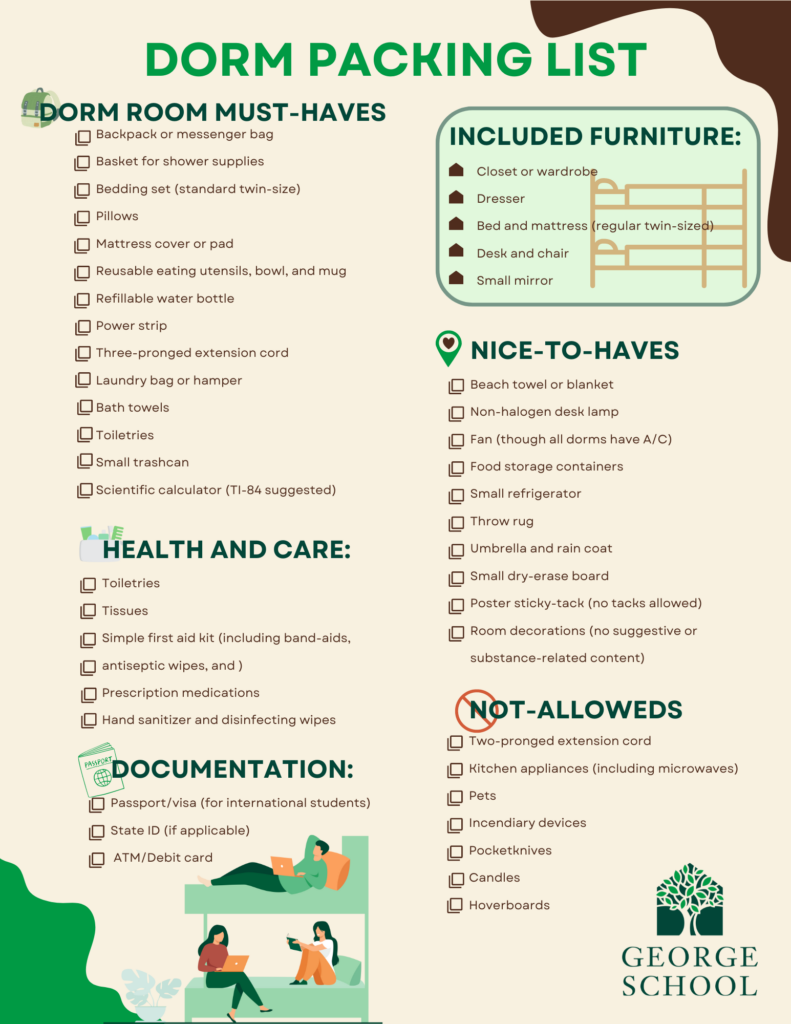
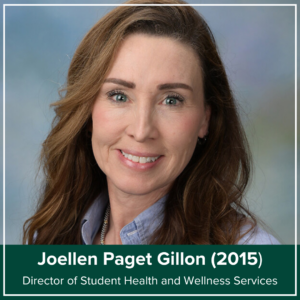 Joellen Paget Gillon (2015)
Joellen Paget Gillon (2015)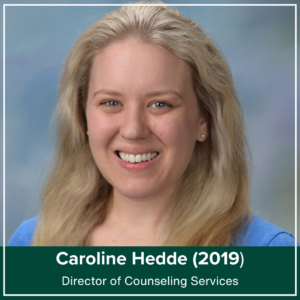 Caroline Hedde (2019)
Caroline Hedde (2019)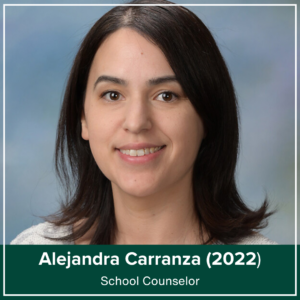 Alejandra Carranza (2022)
Alejandra Carranza (2022)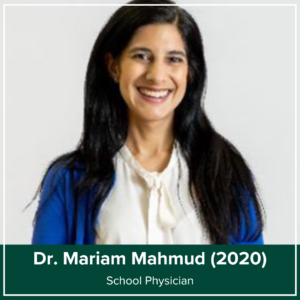 Dr. Mariam Mahmud (2020)
Dr. Mariam Mahmud (2020)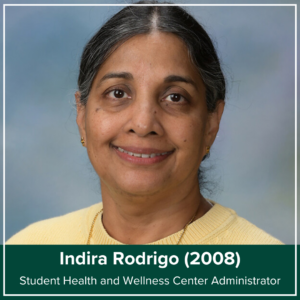 Indira Rodrigo (2008)
Indira Rodrigo (2008)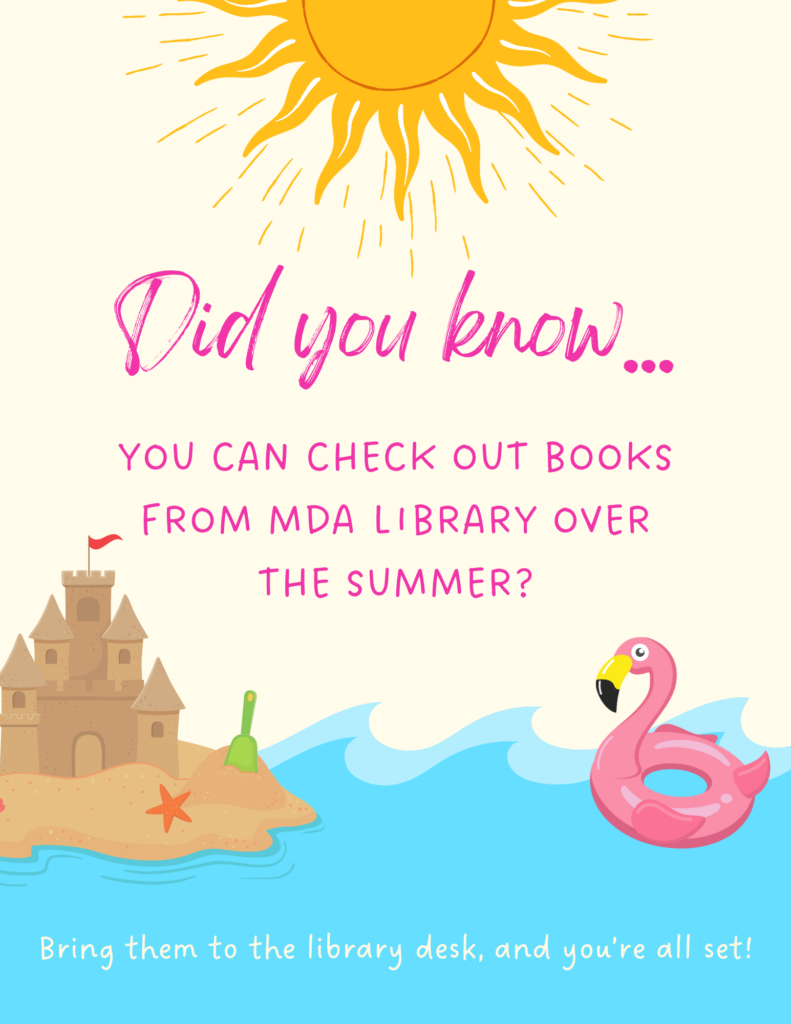
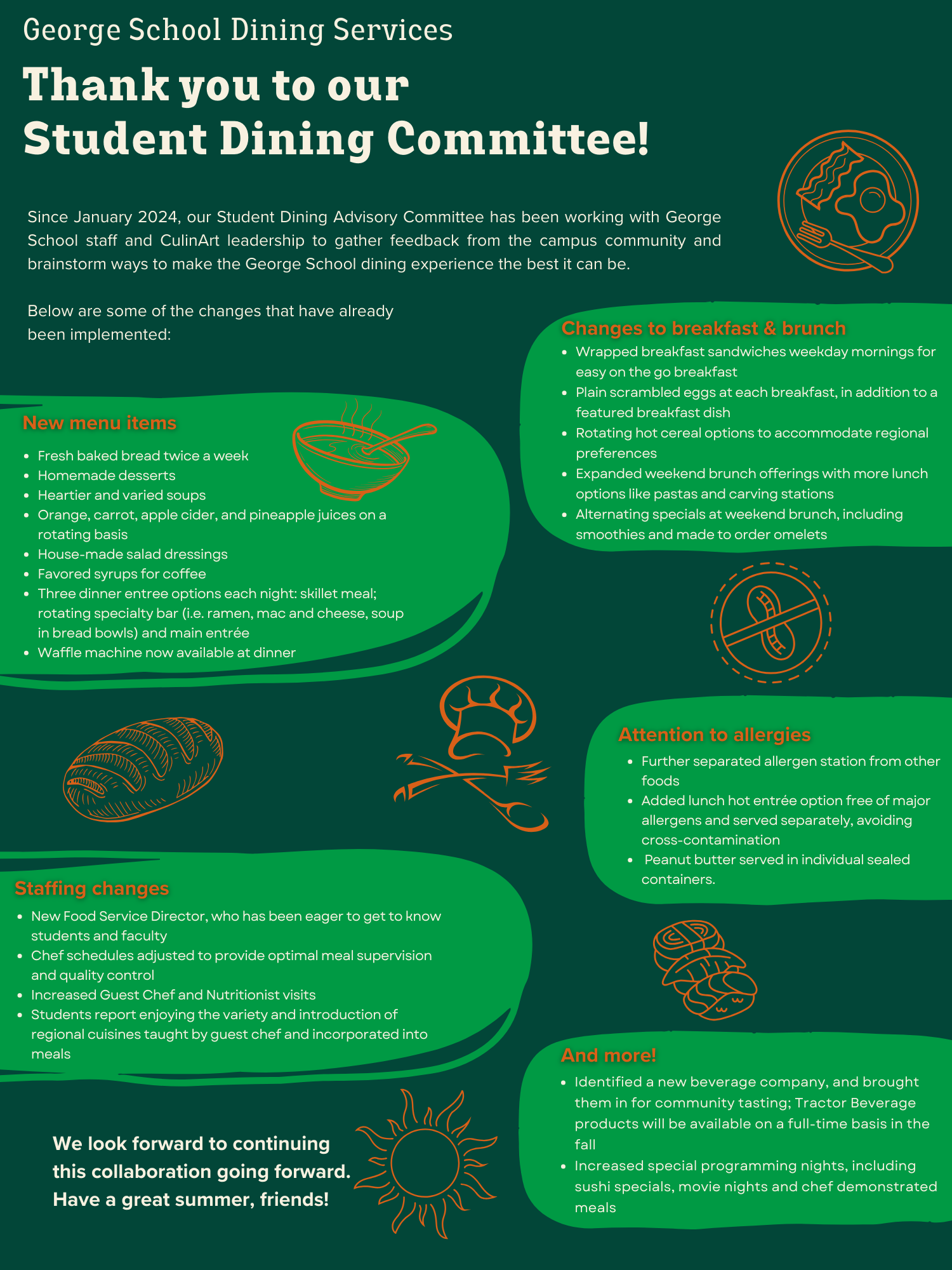
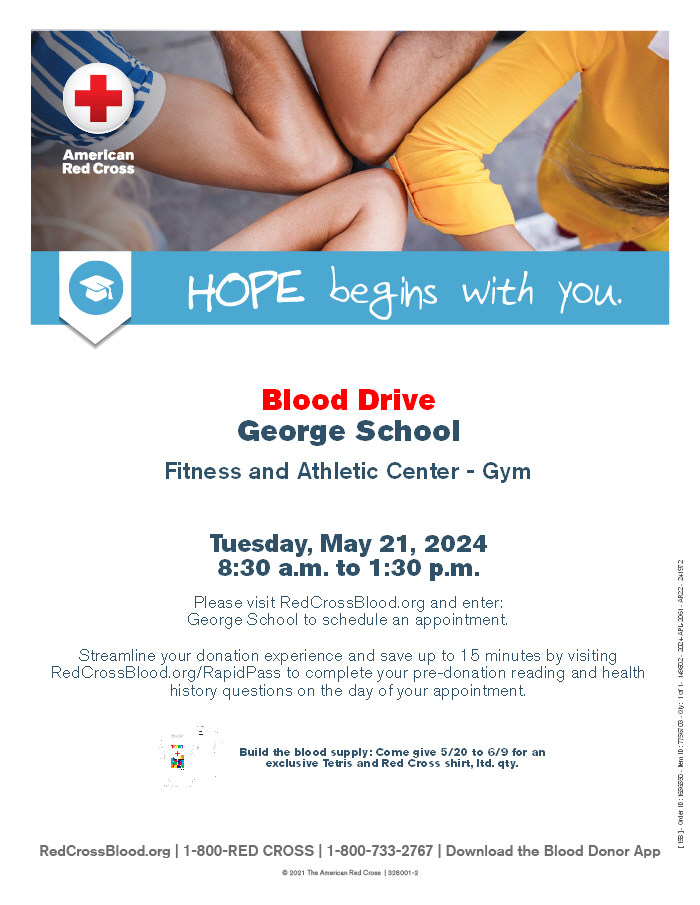
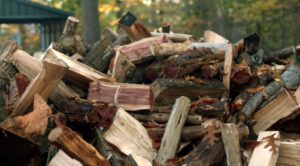
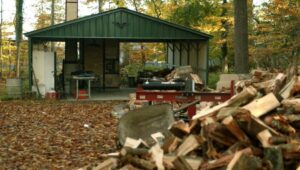
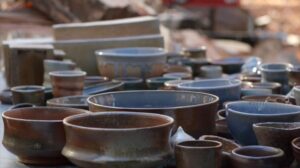
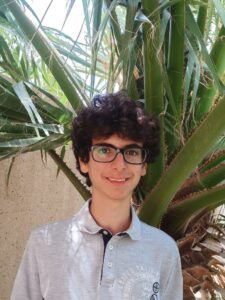 Monastir, Tunisia, and Amman, Jordan
Monastir, Tunisia, and Amman, Jordan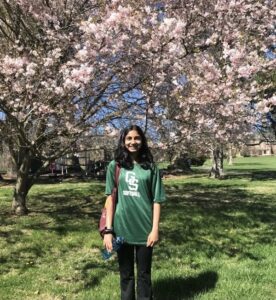 Irvine, CA
Irvine, CA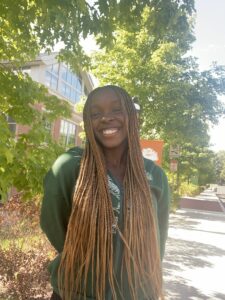 Feasterville-Trevose, PA
Feasterville-Trevose, PA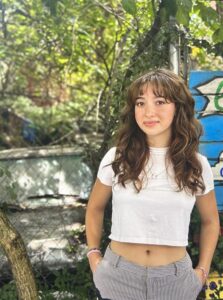 New Hope, PA (Previously NYC)
New Hope, PA (Previously NYC)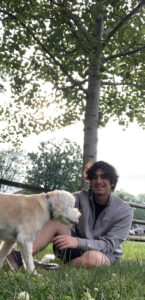 Richboro, PA
Richboro, PA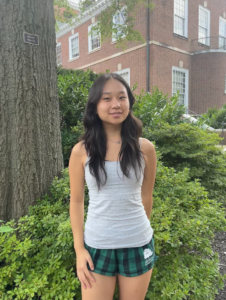 Englewood, NJ
Englewood, NJ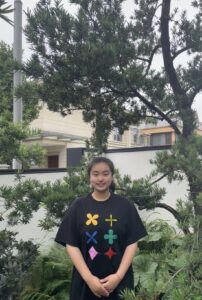 Ningbo, Zhejiang, China
Ningbo, Zhejiang, China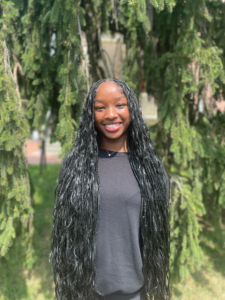 Willingboro, NJ
Willingboro, NJ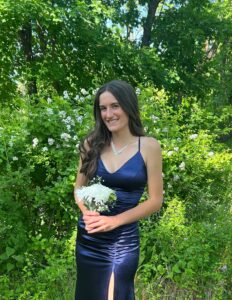 Yardley, PA
Yardley, PA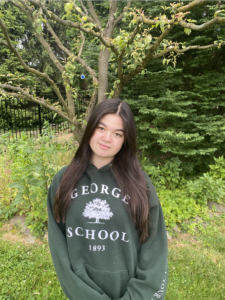 Newtown, PA
Newtown, PA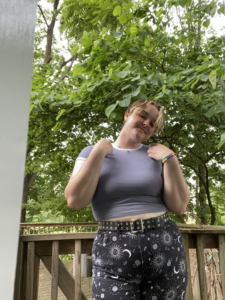 Holicong, PA
Holicong, PA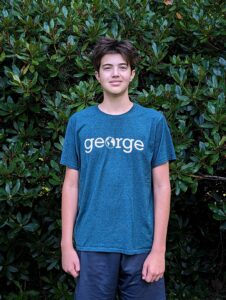 Newtown, PA
Newtown, PA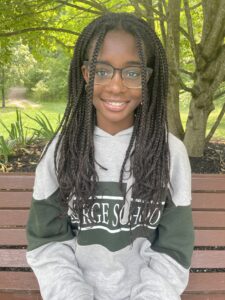 Hamilton, NJ
Hamilton, NJ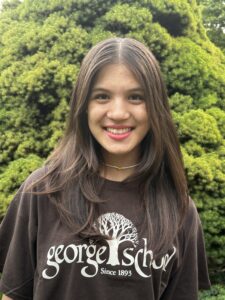 Yardley, PA
Yardley, PA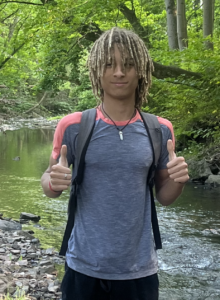 Lambertville, NJ
Lambertville, NJ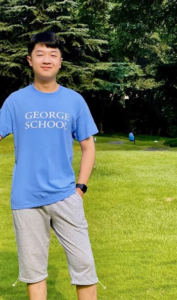 Chongqing, China
Chongqing, China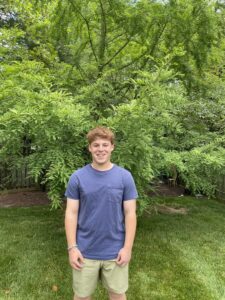 Pennington, NJ
Pennington, NJ Yardley, PA
Yardley, PA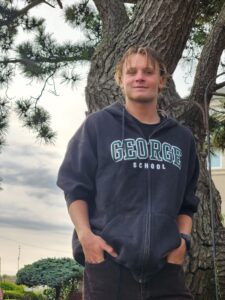 Bensalem, PA
Bensalem, PA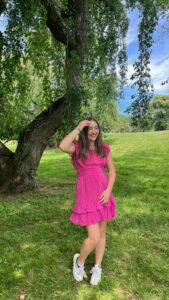 Borgota, Colombia
Borgota, Colombia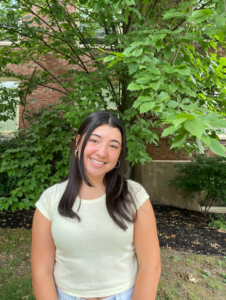 Newtown, PA
Newtown, PA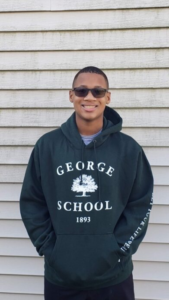 Burlington, NJ
Burlington, NJ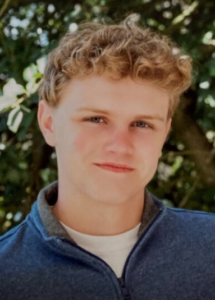 Langhorne, PA
Langhorne, PA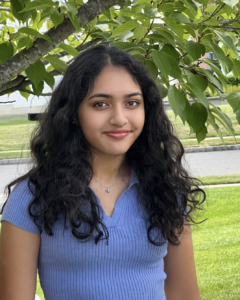 Princeton, NJ
Princeton, NJ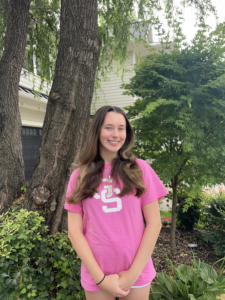 Langhorne, PA
Langhorne, PA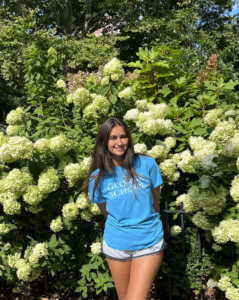 New York City, NY
New York City, NY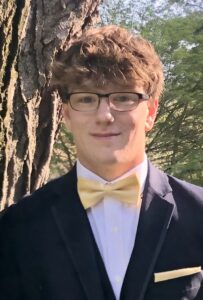 New Hope, PA
New Hope, PA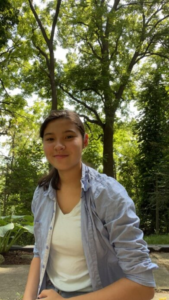 St. Catharines, Ontario, Canada
St. Catharines, Ontario, Canada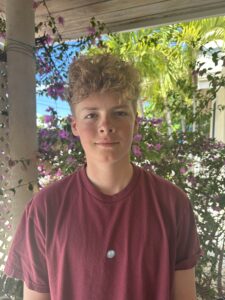 Providenciales, Turks and Caicos Islands
Providenciales, Turks and Caicos Islands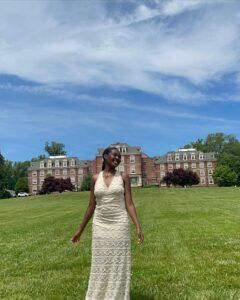 Willingboro, NJ
Willingboro, NJ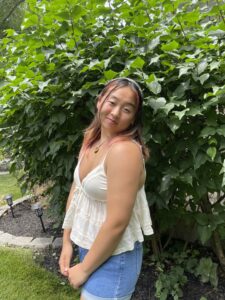 Princeton, NJ
Princeton, NJ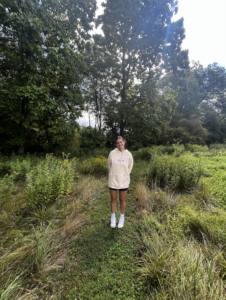
 Newark, NJ
Newark, NJ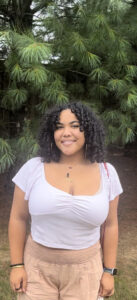 Trenton, NJ
Trenton, NJ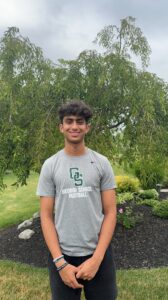 Newtown, PA
Newtown, PA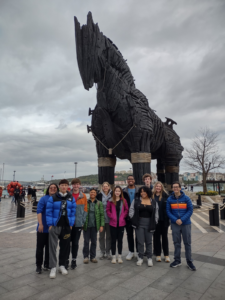
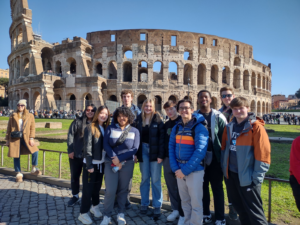
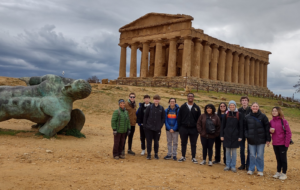
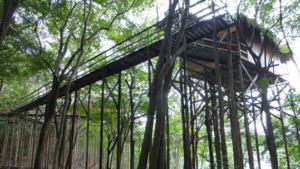
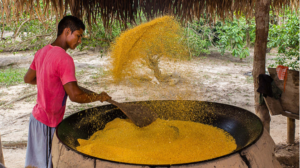
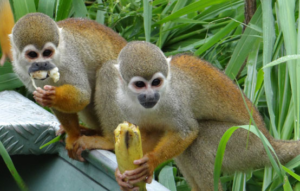
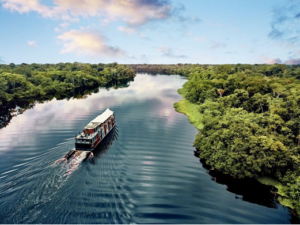
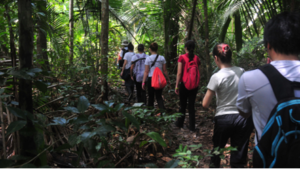
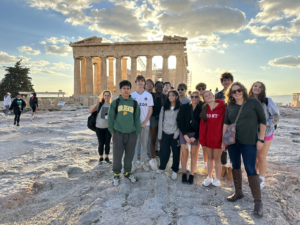
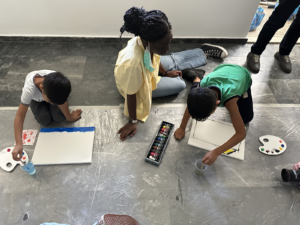
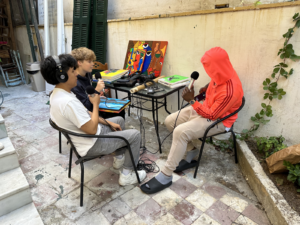
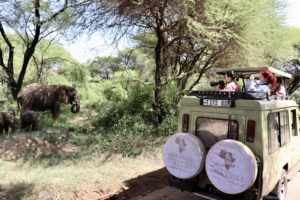
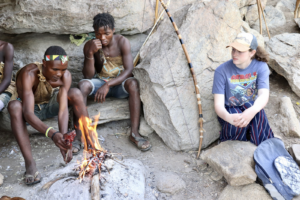
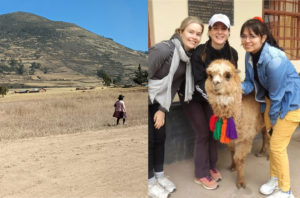
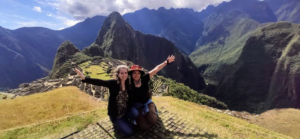
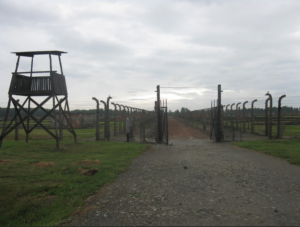
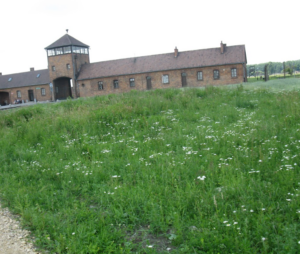
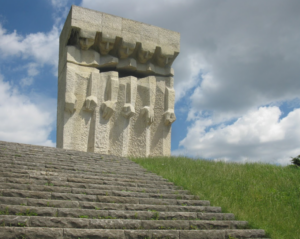
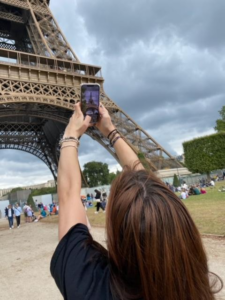
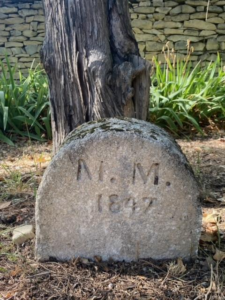
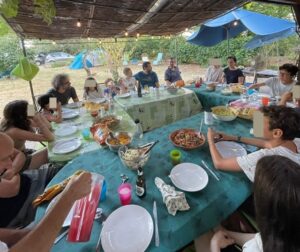
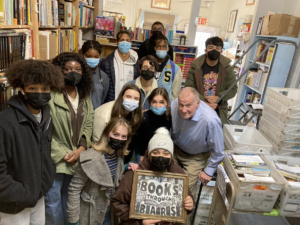
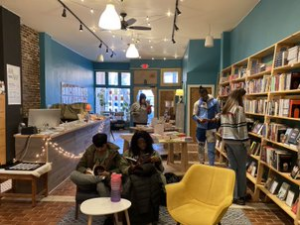
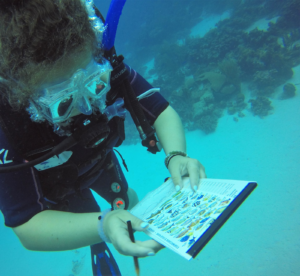
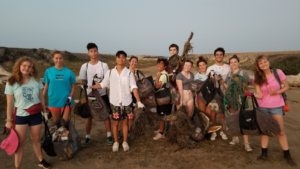
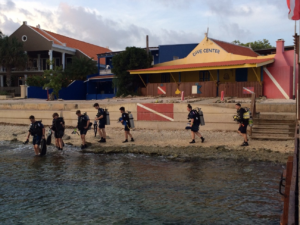
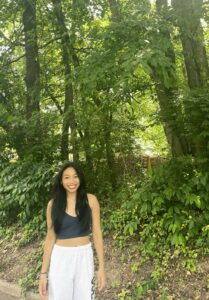 Lawrence, NJ
Lawrence, NJ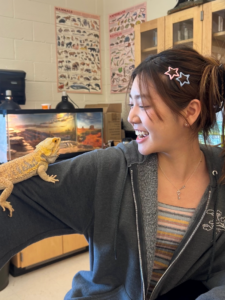 Seoul, South Korea
Seoul, South Korea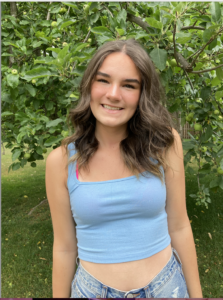
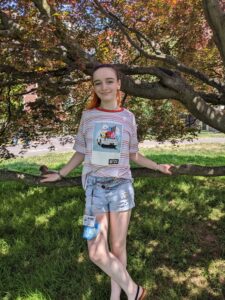 Milwaukee, Wisconsin
Milwaukee, Wisconsin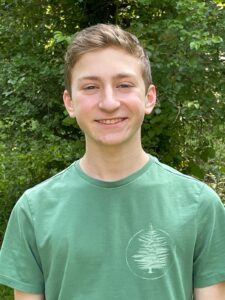 Pennington, NJ
Pennington, NJ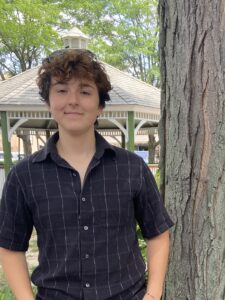 Jenkintown, PA
Jenkintown, PA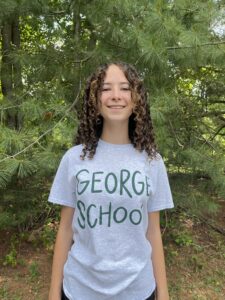 Ottsville, PA
Ottsville, PA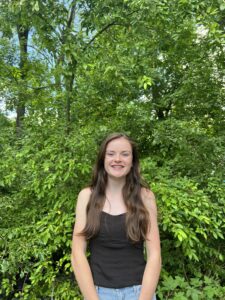 Yardley, PA
Yardley, PA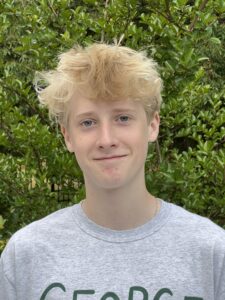 Providenciales, Turks and Caicos Islands
Providenciales, Turks and Caicos Islands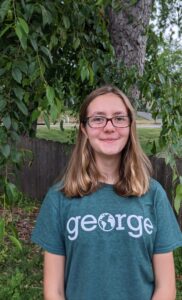 Hopewell, NJ
Hopewell, NJ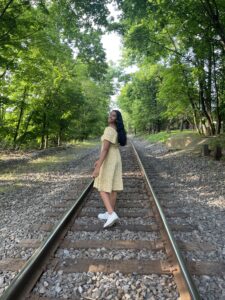
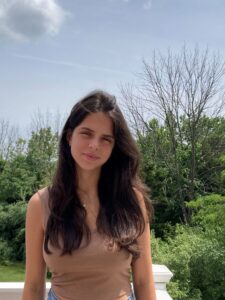 Pottstown, PA
Pottstown, PA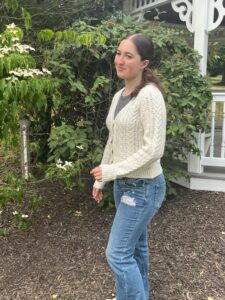 Playa del Carmen, Quintana Roo, México
Playa del Carmen, Quintana Roo, México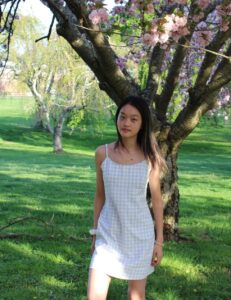 Shanghai, China
Shanghai, China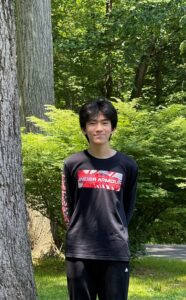 Beijing, China
Beijing, China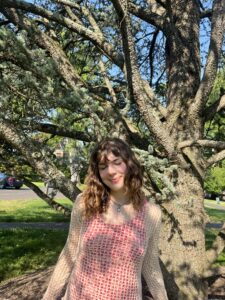 Yardley, PA
Yardley, PA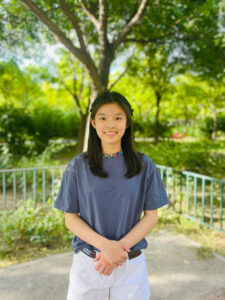 Beijing, China
Beijing, China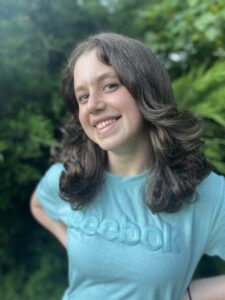 Holland, PA
Holland, PA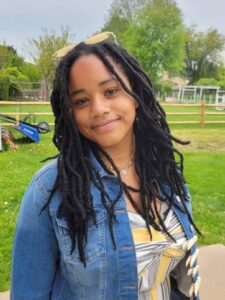 Langhorne, PA
Langhorne, PA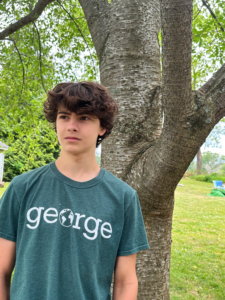 Ringoes, NJ
Ringoes, NJ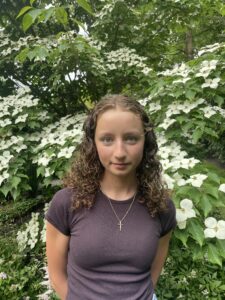 New Hope, PA
New Hope, PA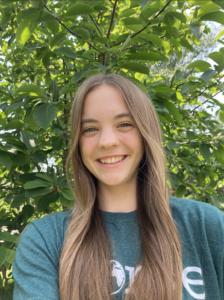 Dreshner, PA
Dreshner, PA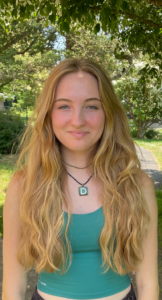 Yardley, PA
Yardley, PA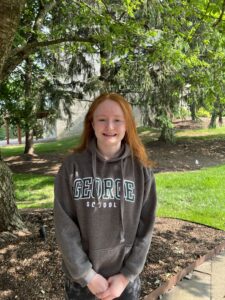 Yardley, PA
Yardley, PA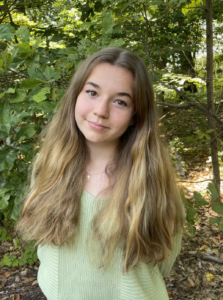 PA
PA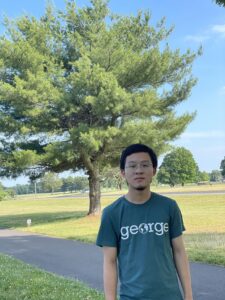

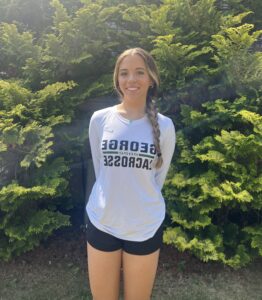
 Xi’an, China
Xi’an, China